Caravana de madres Centroamericanas
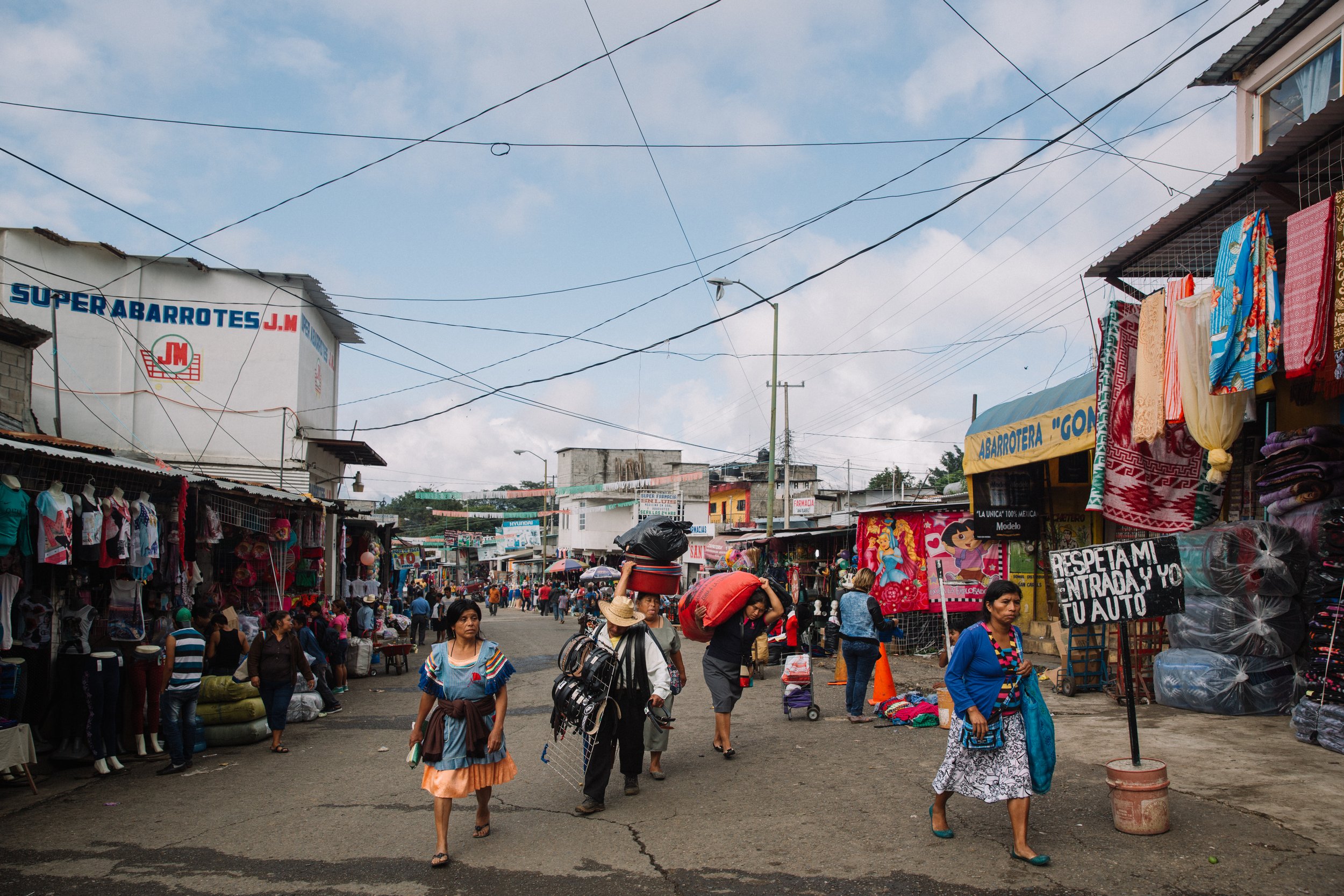
The Caravan of Mothers from Central America begins another year of their tireless search for truth and justice as they cross into Mexico from Guatemala. Year after year, mothers from Honduras, El Salvador, Nicaragua, and Guatemala embark on a challenging journey across borders to demand answers and justice for their missing family members, determined to find closure and bring attention to the plight of those affected by forced disappearances
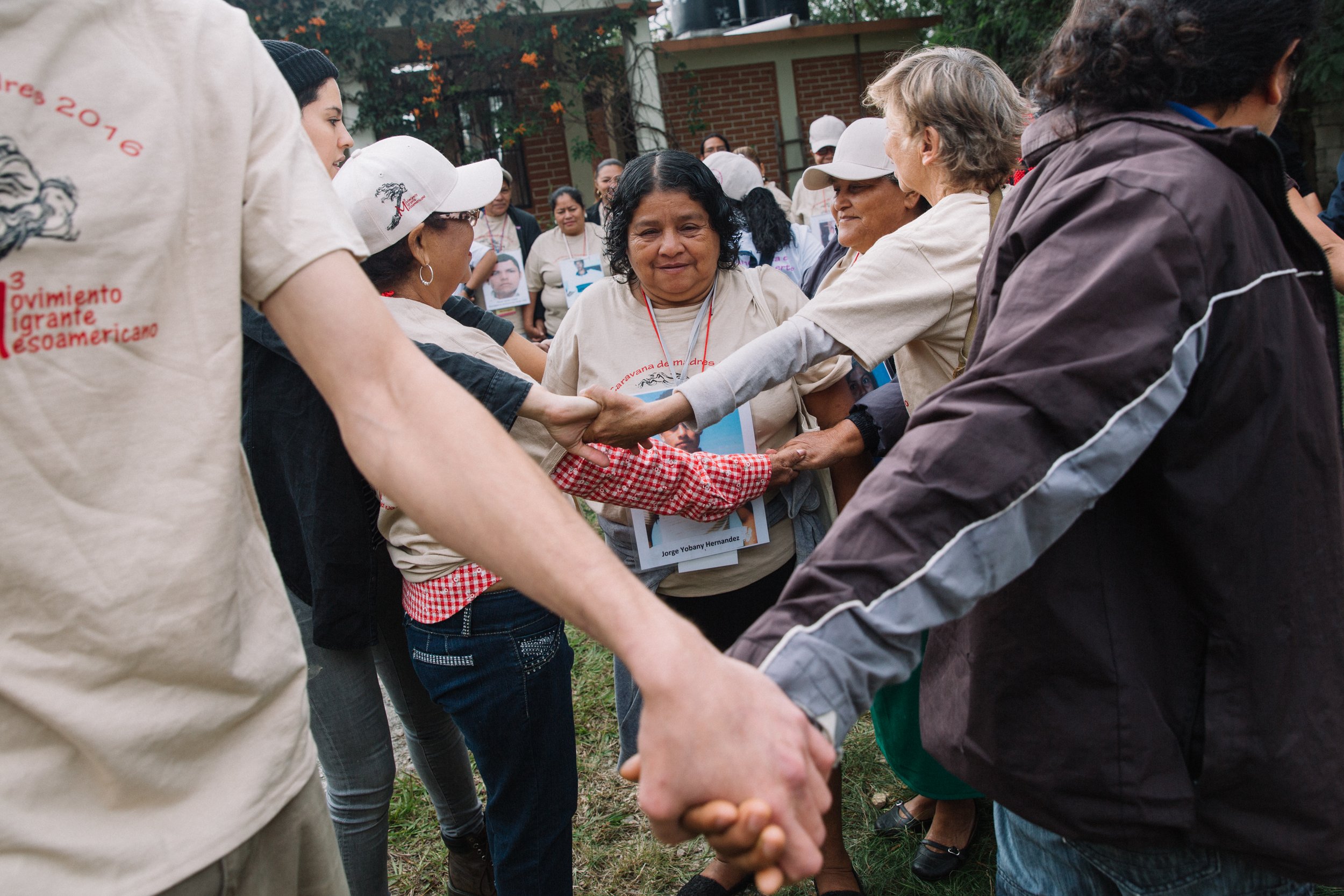
In a beautiful display of unity and positivity, the members of the caravan in Comitan, Chiapas, Mexico, linked arms and performed a final farewell exercise. The exercise aimed to release tension and negativity while inviting positive energy and laughter for the next leg of their journey.
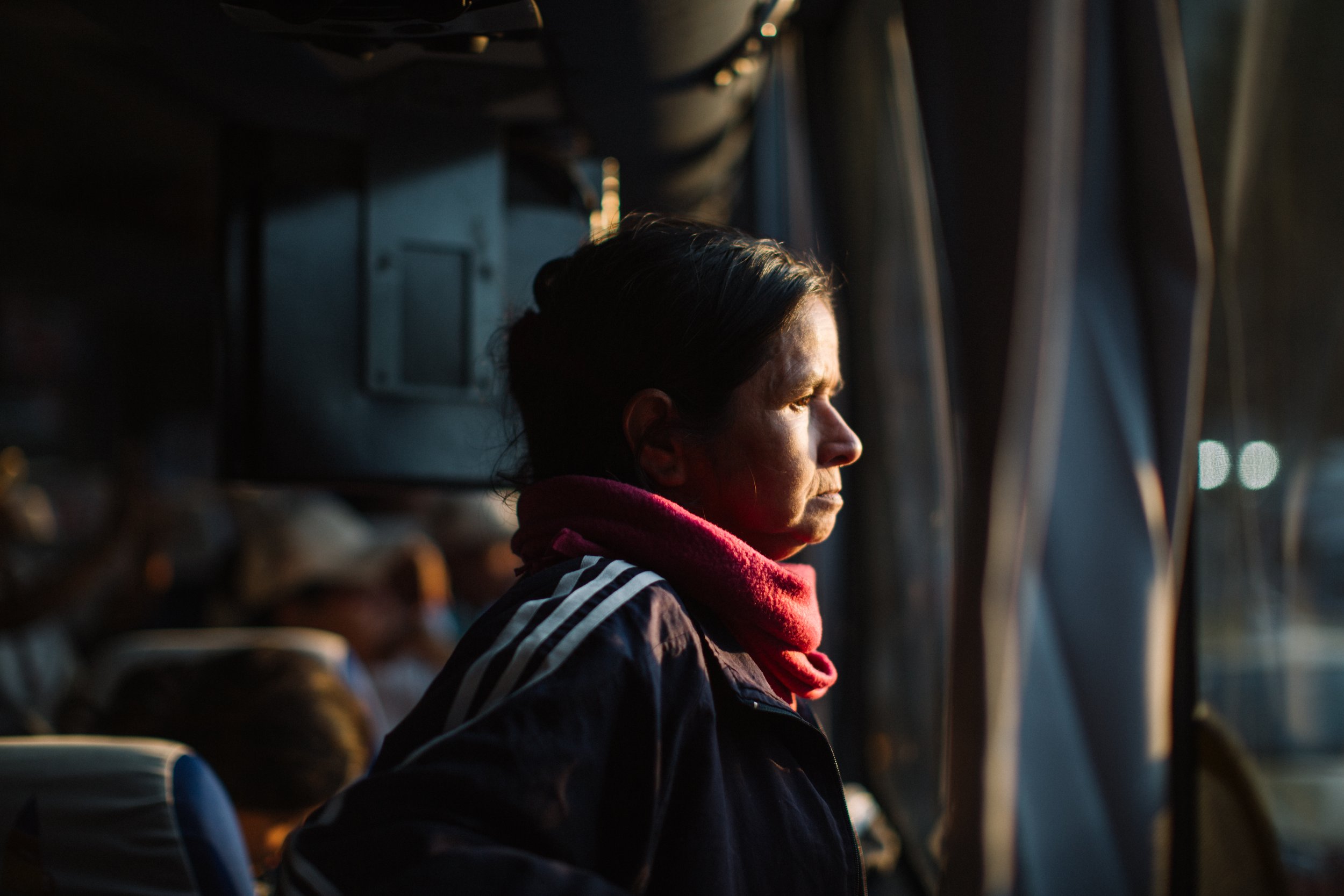
Reina Portillo gazes out the bus window as the caravan continues their journey through Mexico City. Her son, Marvin Leonel Alvarez Portillo, has been missing for six years.
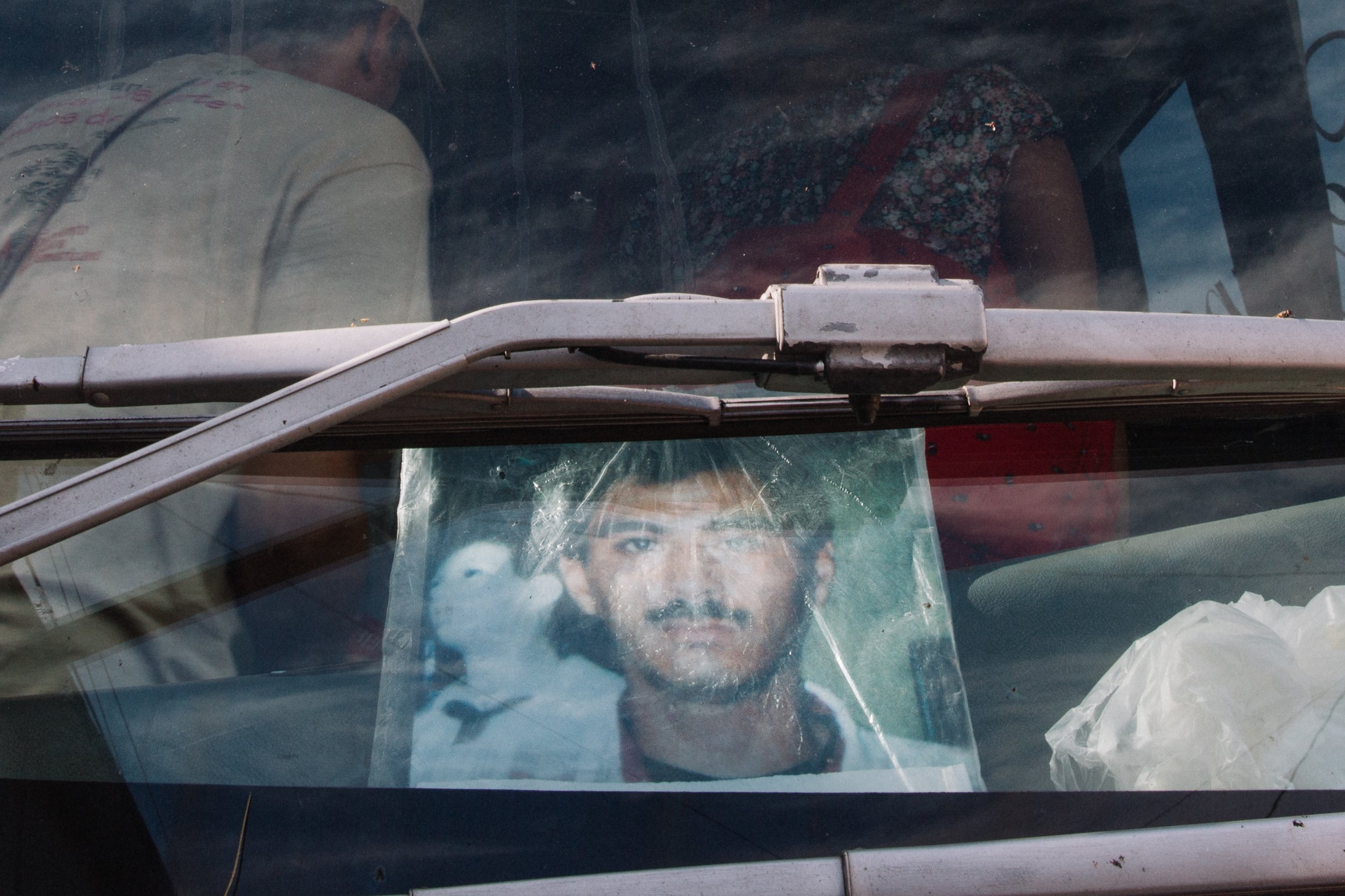
A portrait of a missing family member is displayed in front of the bus in Arriaga, Chiapas, Mexico. For the mothers on the caravan, the search for their missing loved ones is an ongoing journey filled with hope, pain, and resilience.
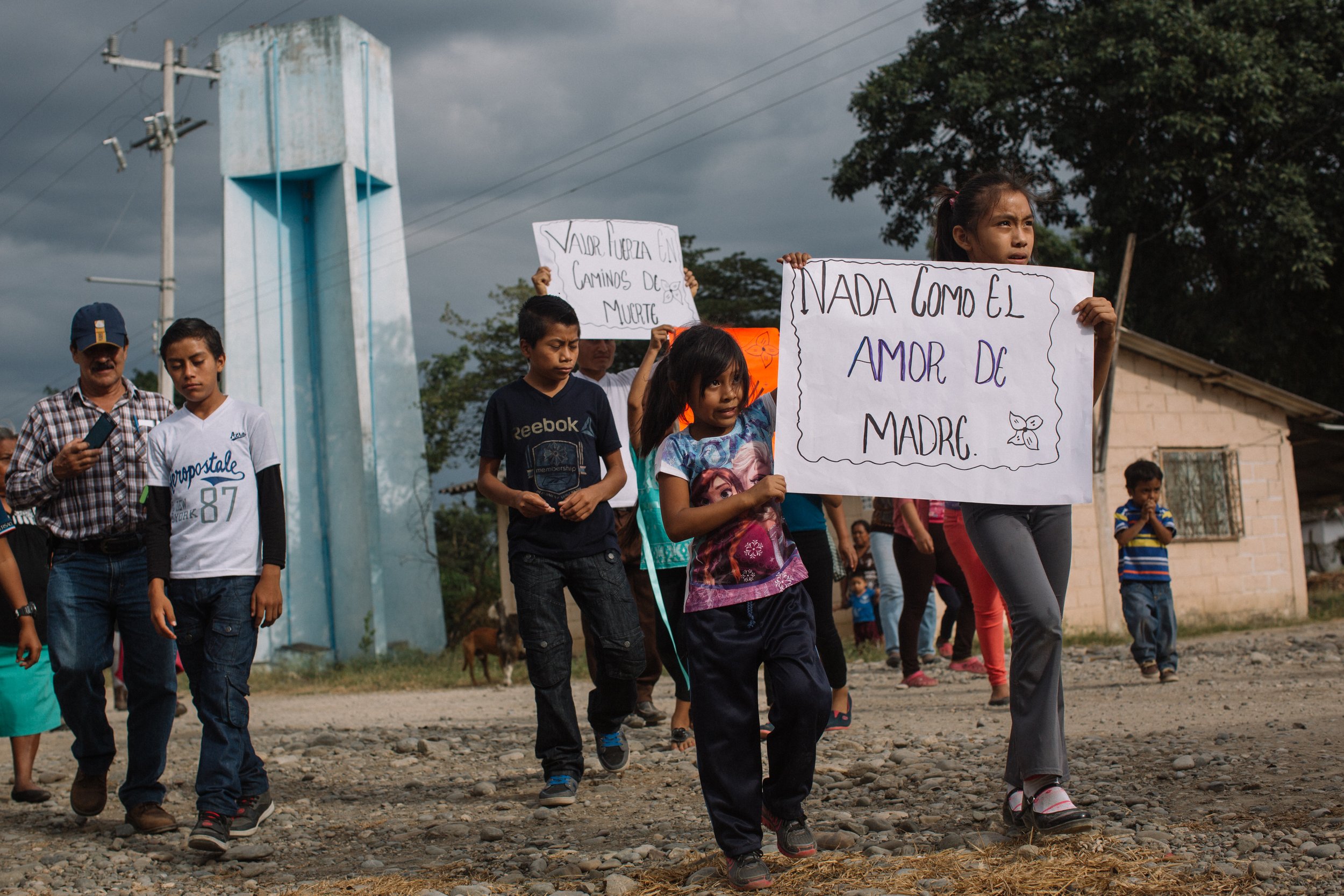
In a heartwarming scene, children from the community of Nueva Linda in Chiapas, Mexico, run out to greet the caravan of mothers with signs of encouragement. Nueva Linda is a common stop for migrants on their way north, and the community often hires migrants to work in the fields.
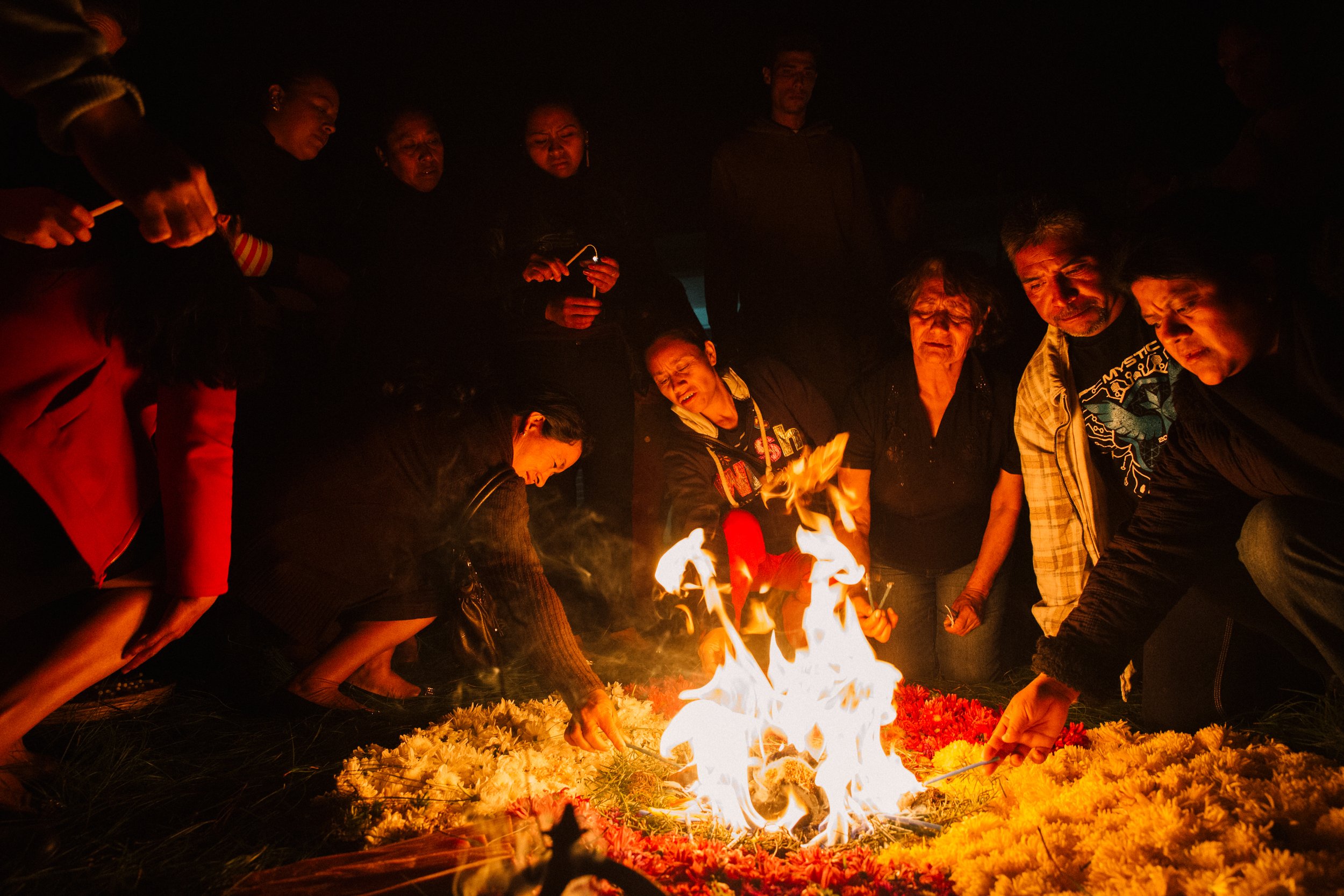
During an ancient Mayan Fire Ceremony held at a migrant shelter in Comitan, Chiapas, Mexico, community members and mothers of the caravan placed offerings in the flame to honor the four grandfathers, Kan, Tzi', Ajmaq, and Ajpu'. The mothers call upon them for guidance, justice, and peace.
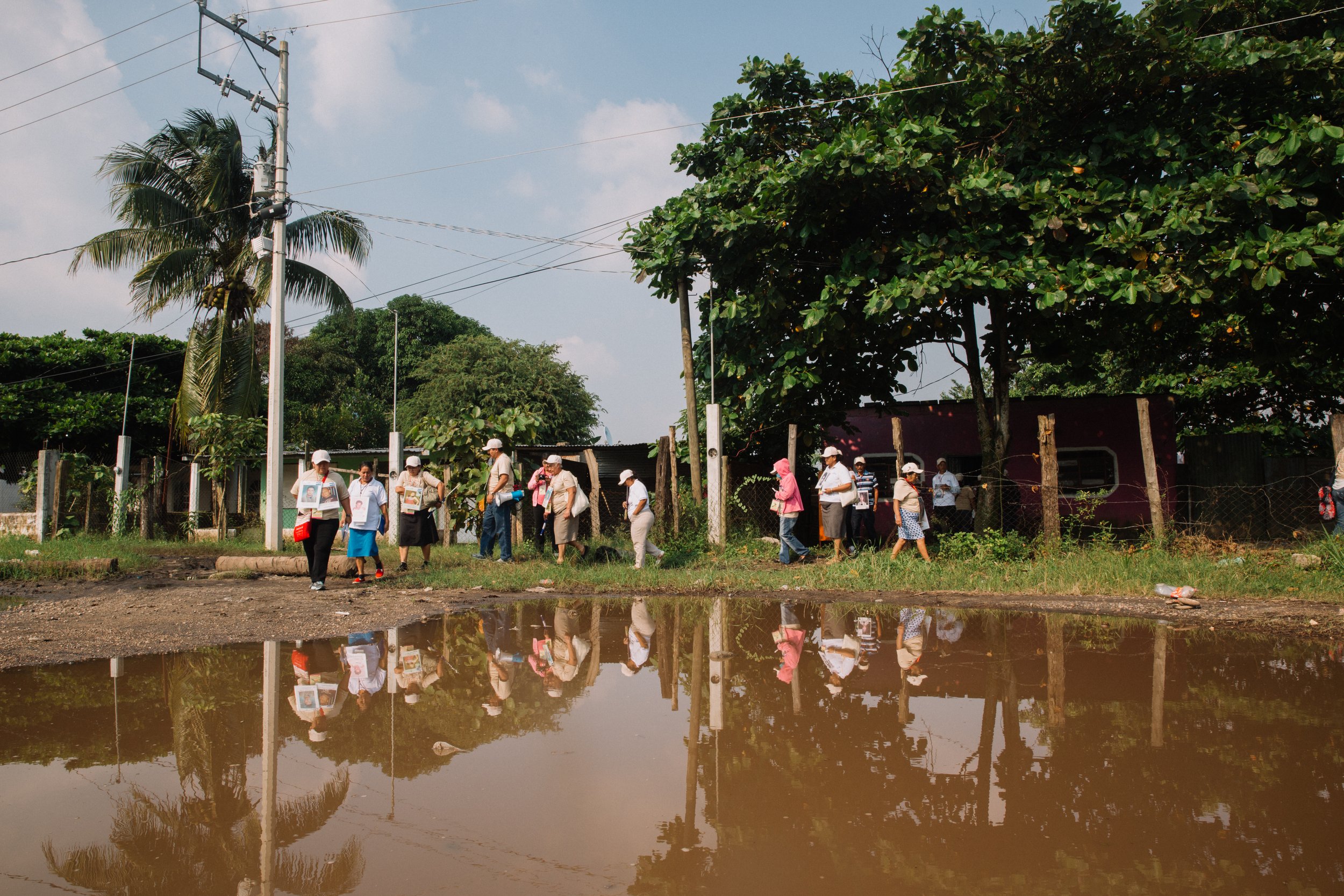
The caravan disembarks from their vehicles and spends most days searching on foot along train tracks for any clues of their missing loved ones.
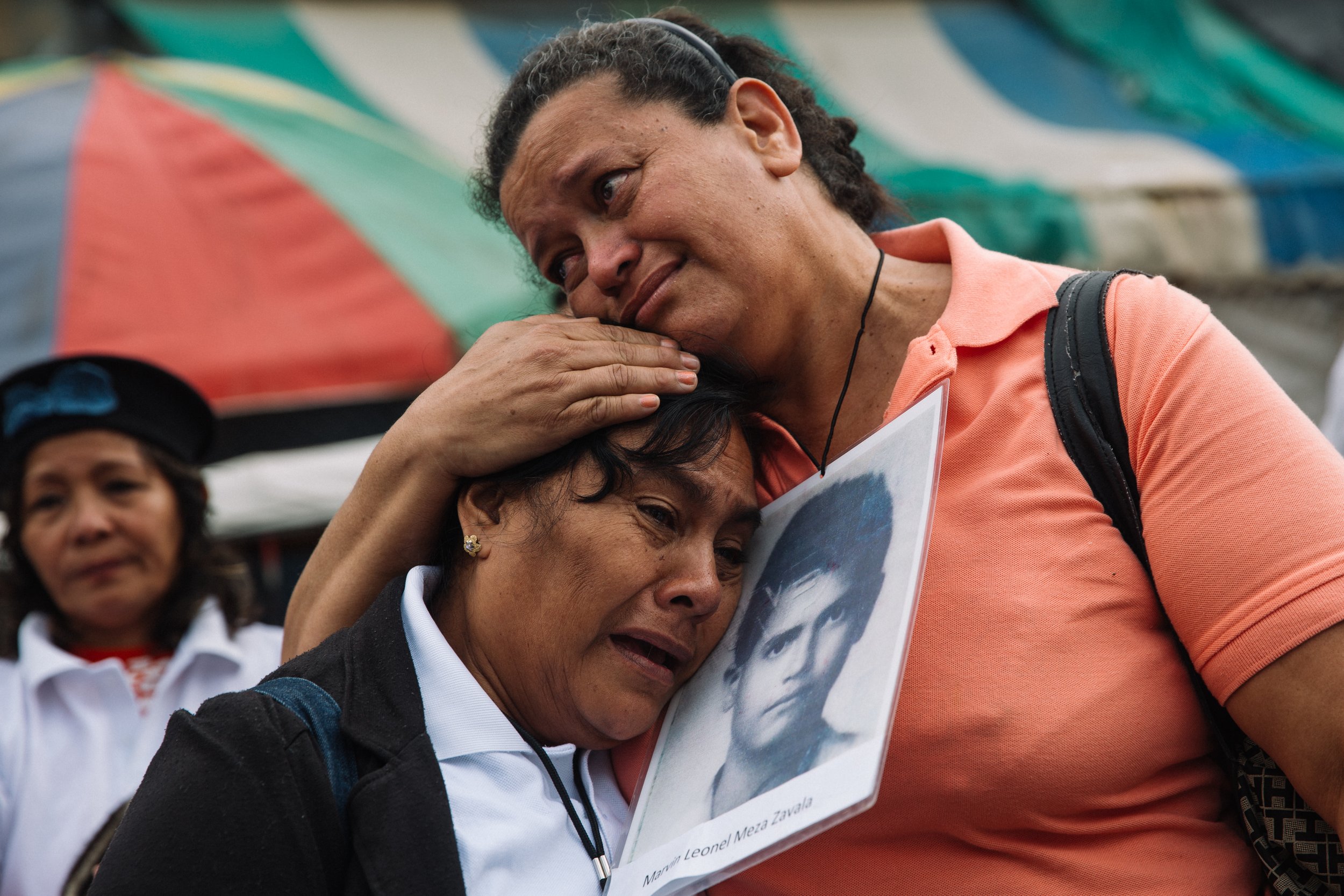
Crossing Borders and Embracing Unity: Irma Yolanda Peres from Guatemala and Doris Yamit Meza Zavala from Honduras share a heartfelt embrace as they embark on their journey with the caravan at the border of Ciudad Cuahhutemoc and Frontera Comalapa, symbolizing hope and solidarity in the face of adversity.
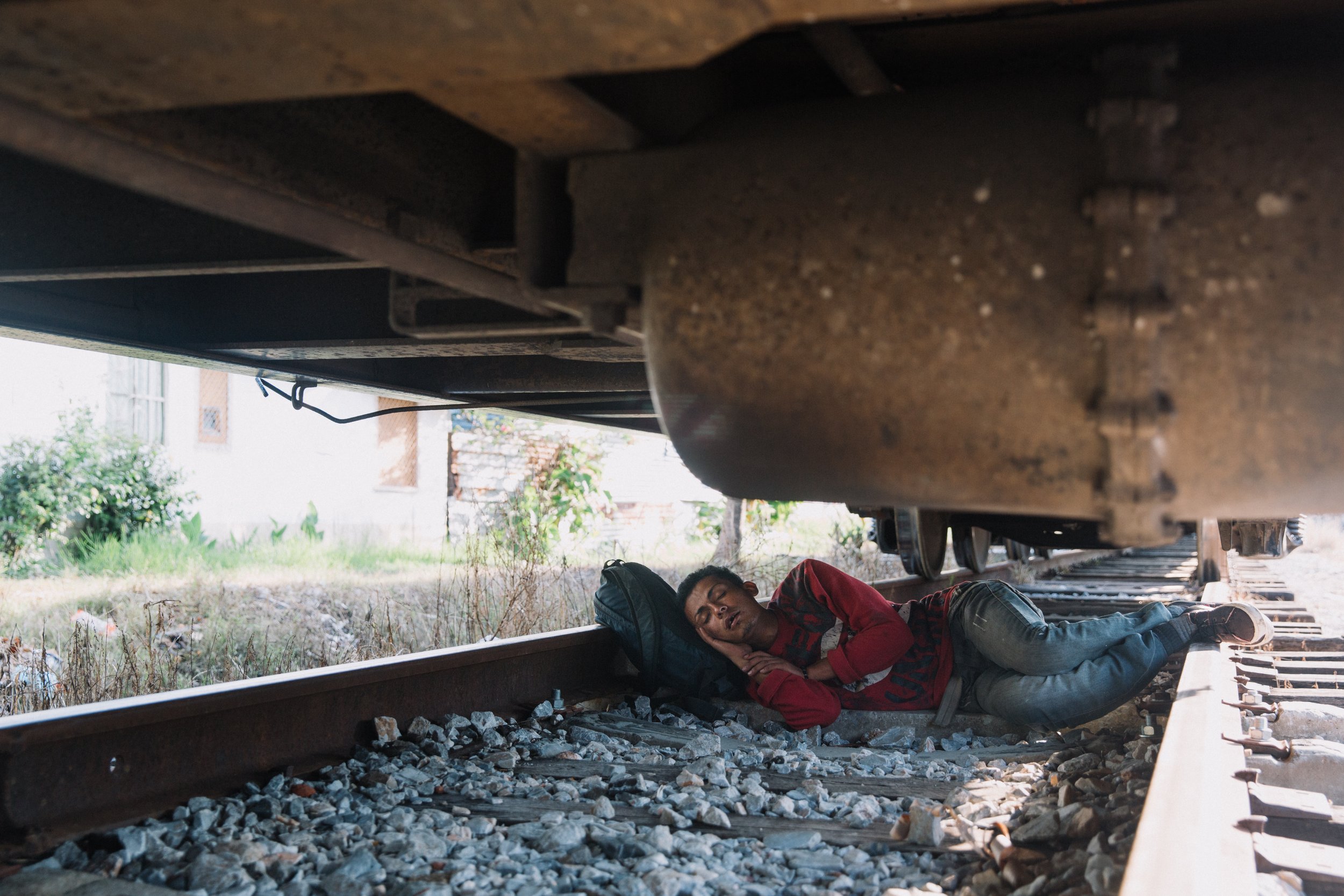
As a freight train rumbles through a neighborhood of Coatzacoalcos, Veracruz, a migrant takes advantage of a moment of stillness to catch some sleep. For many migrants, the journey through Mexico involves hopping on and off moving trains, often in dangerous conditions.
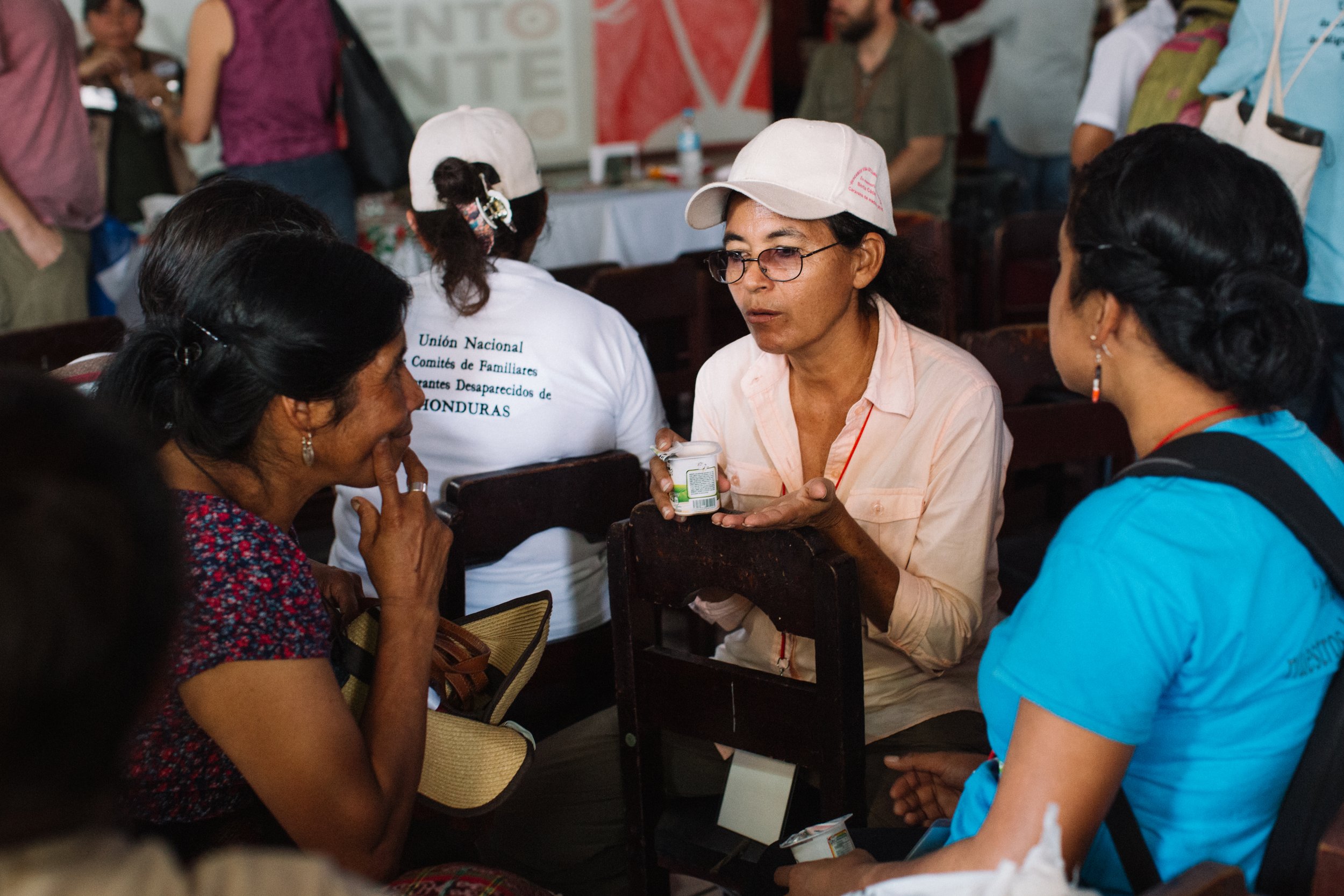
A group of mothers huddle together, exchanging information they have gathered during their search for their missing loved ones. Despite the challenges they face on this arduous journey, they find solace in one another's company and the shared goal they all strive towards.
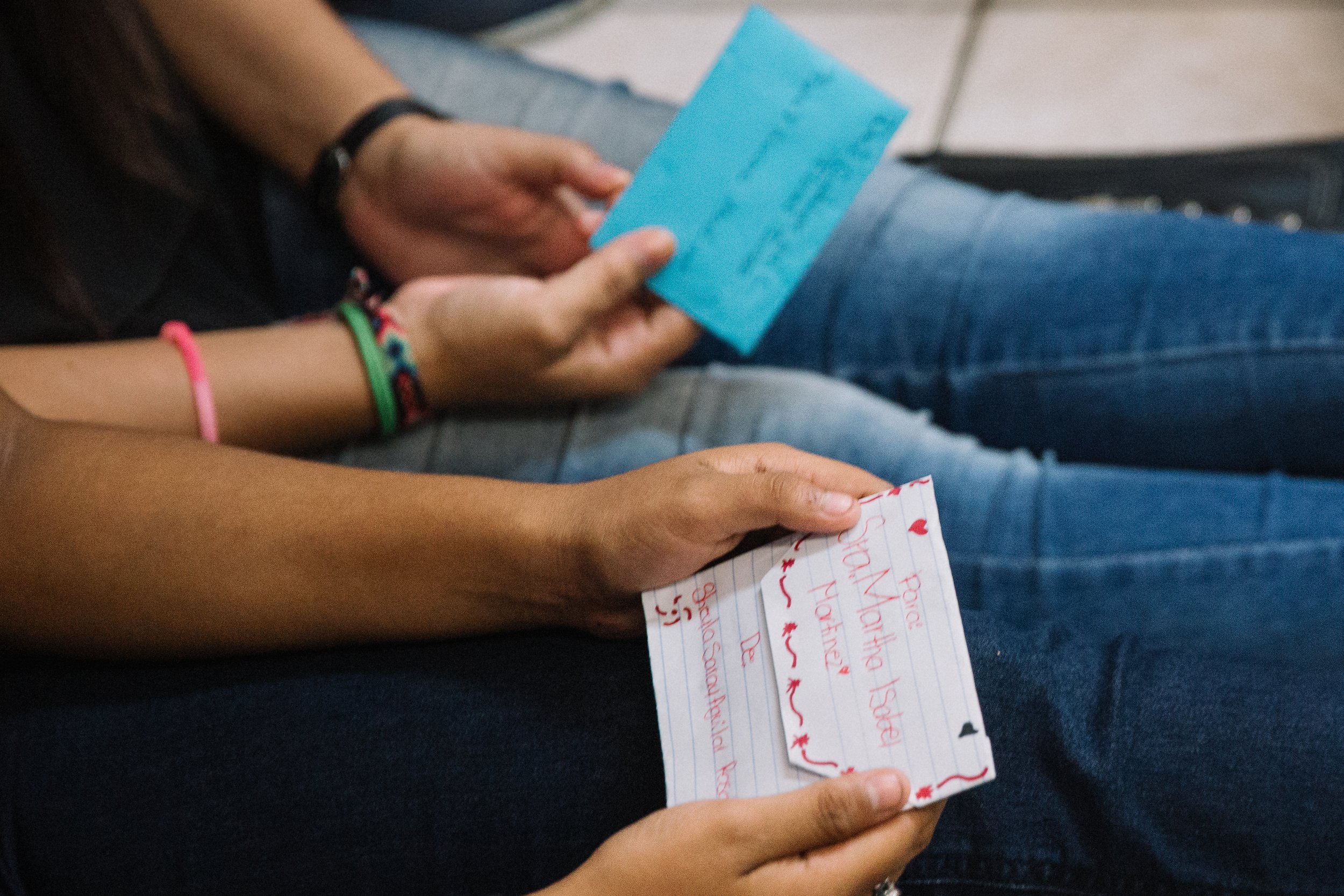
Students from the Universidad Juárez Autónoma de Tabasco show their support and solidarity with the caravan by writing heartfelt, personalized notes to each mother in Villahermosa, Tabasco, Mexico.
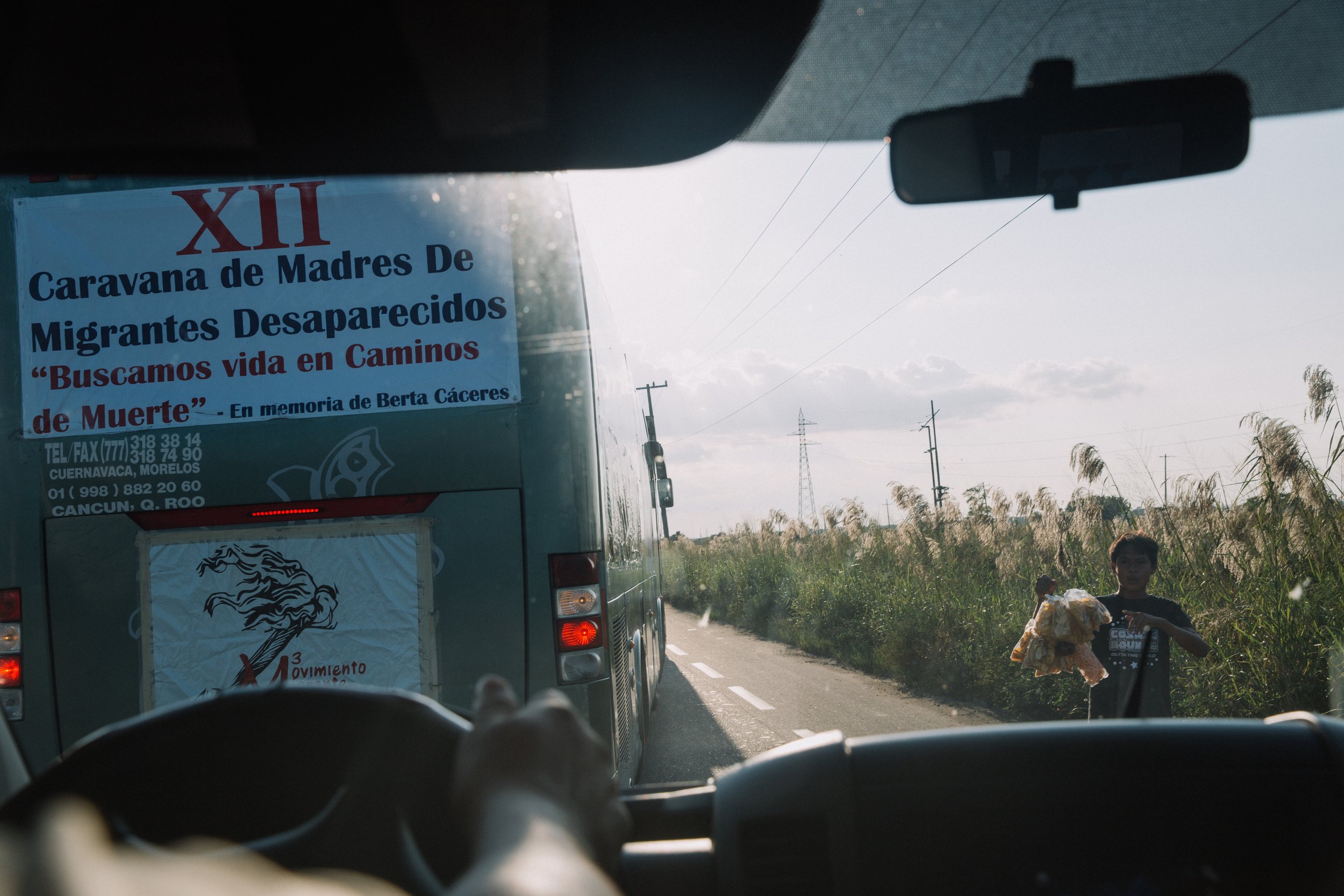
A street vendor holds out food during a standstill on the caravan's journey. The mother's presence is greatly respected, and their mission to find their missing loved ones often brings communities together, even leading to local protests being put on hold to allow them to pass through.
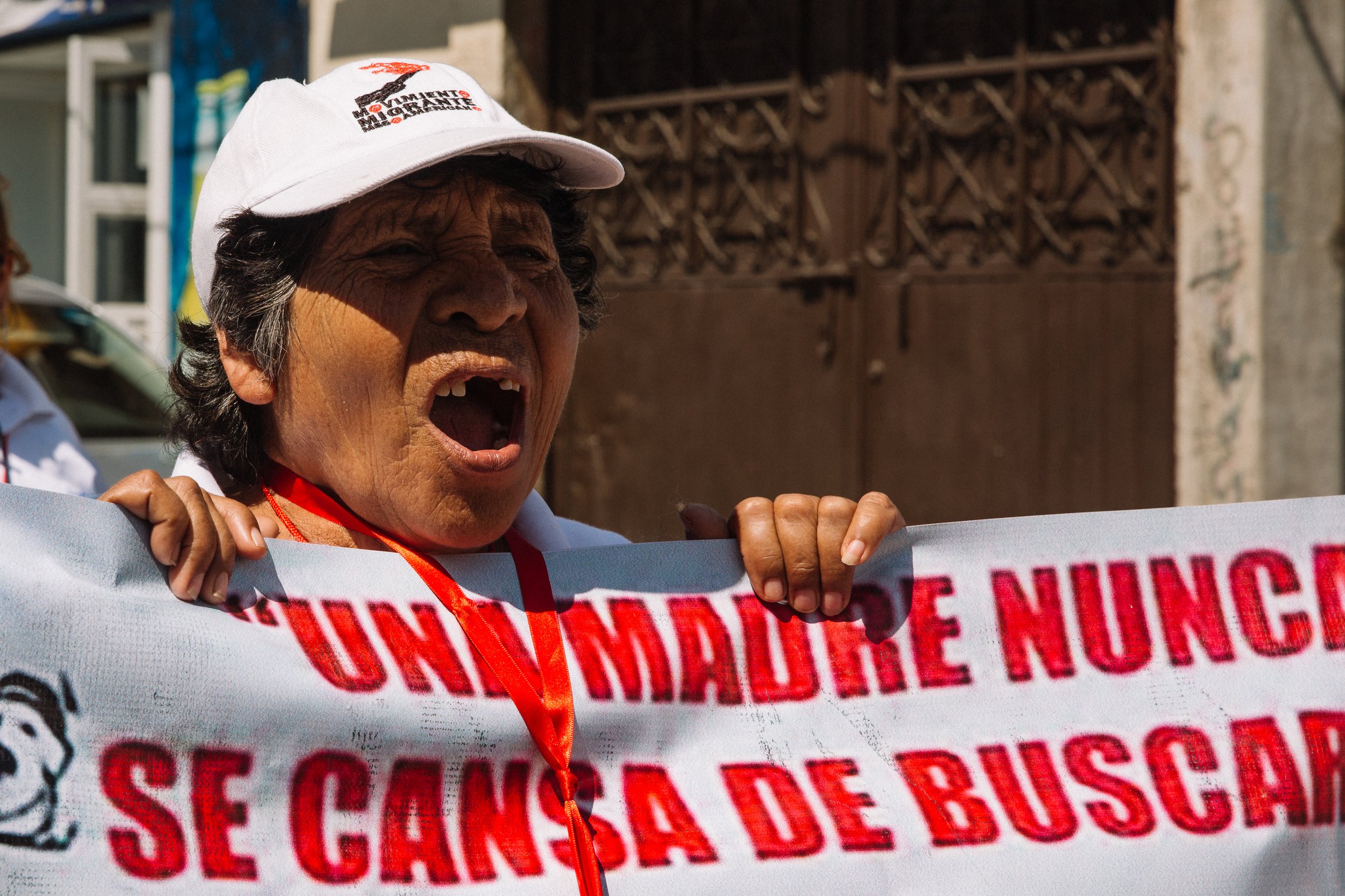
Manuela de Jesus Franco de Rodriguez, a mother from Honduras, raises her voice in a public protest in San Cristobal de las Casas, Chiapas, demanding justice for her missing son. This marks the third year that Manuela has traveled with the caravan in search of Juan Neftali Rodriguez Franco, who disappeared in 2010 in Pierdras Negras. Manuel's harrowing journey across the border took a tragic turn when immigration authorities caught their group in transit. His sister, Amaris, was detained, while he kept running across the Texas border, shouting words of encouragement to her until she could no longer hear him. Years have passed, and Manuel's fate remains unknown, leaving his family in a constant state of anguish and uncertainty.
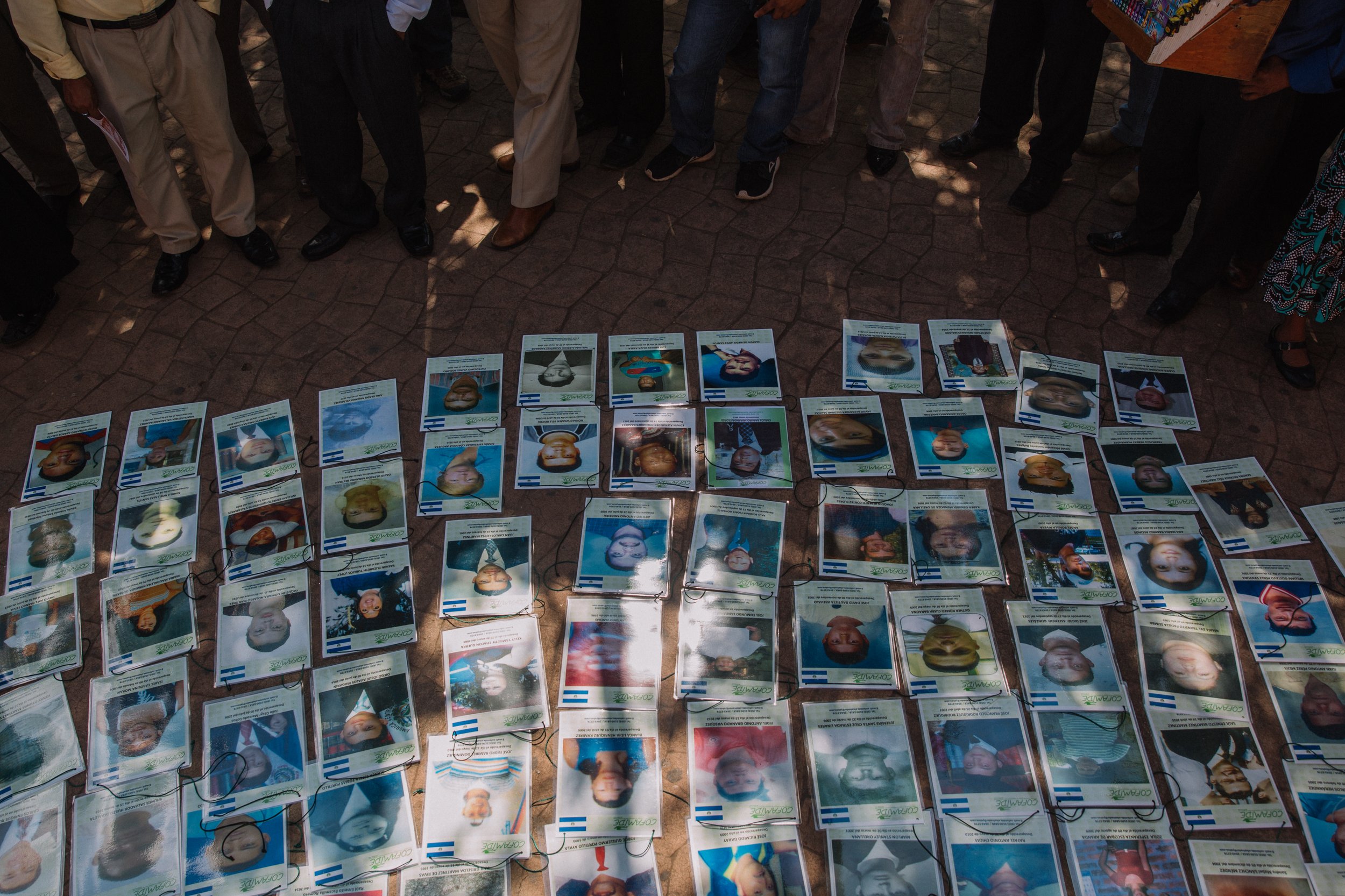
A crowd gathers in the town plaza of Chiapas, Mexico, to gaze upon the photos of missing migrants. For the Movimiento Migrante Mesoamericano, public exposure of these photos is crucial in the search for answers and justice. Press conferences and marches may raise awareness, but it is the collective effort of communities that can bring an end to the pain and uncertainty of those left behind.
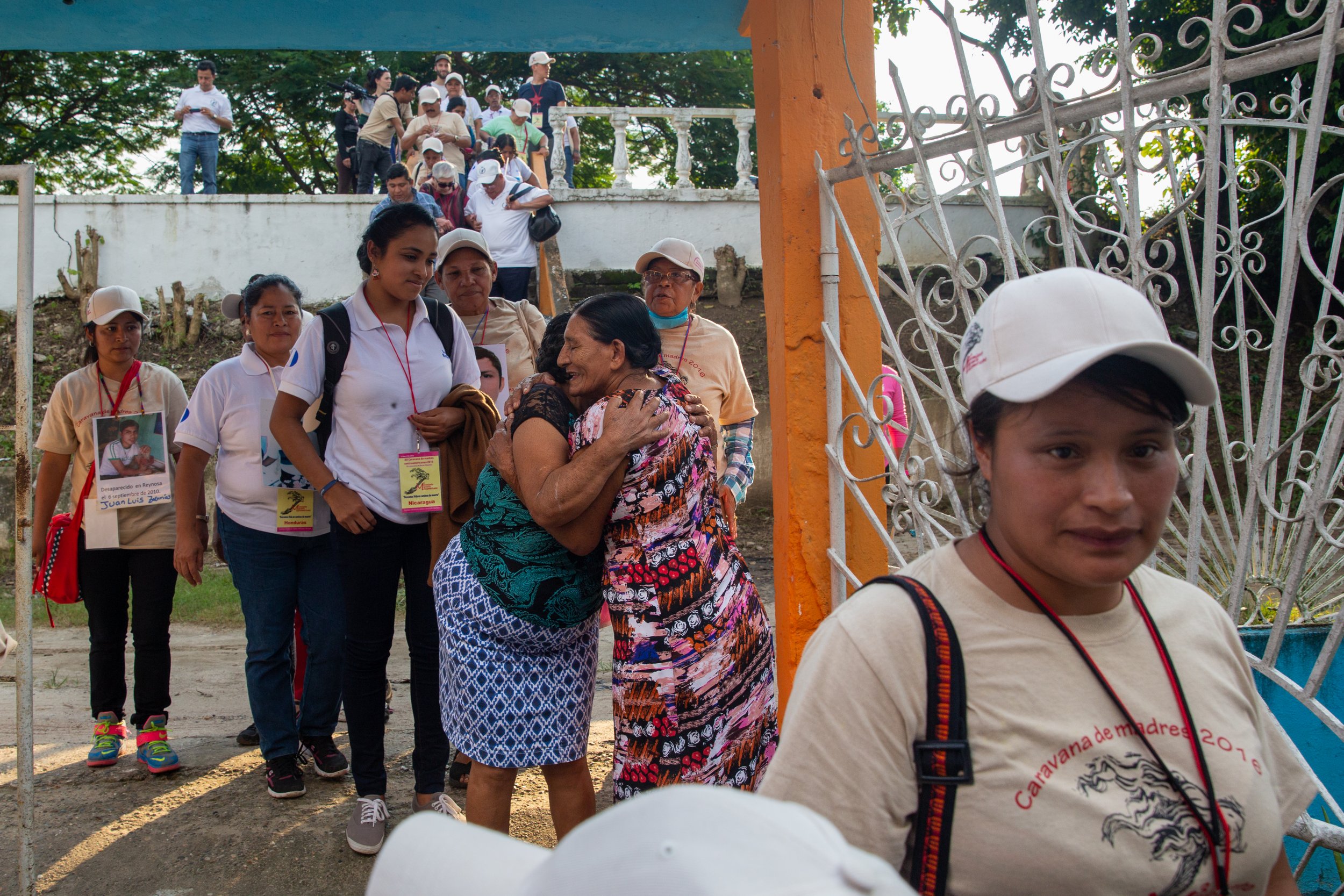
Emilia Figueroa, the mother of Ruben Figueroa, an organizer and investigator for Movimiento Migrante Mesoamericano, warmly greets the caravan as they arrive in Villahermosa, Tabasco, Mexico. She opens her home to feed the group, showing her support for their cause and helping to sustain their journey.
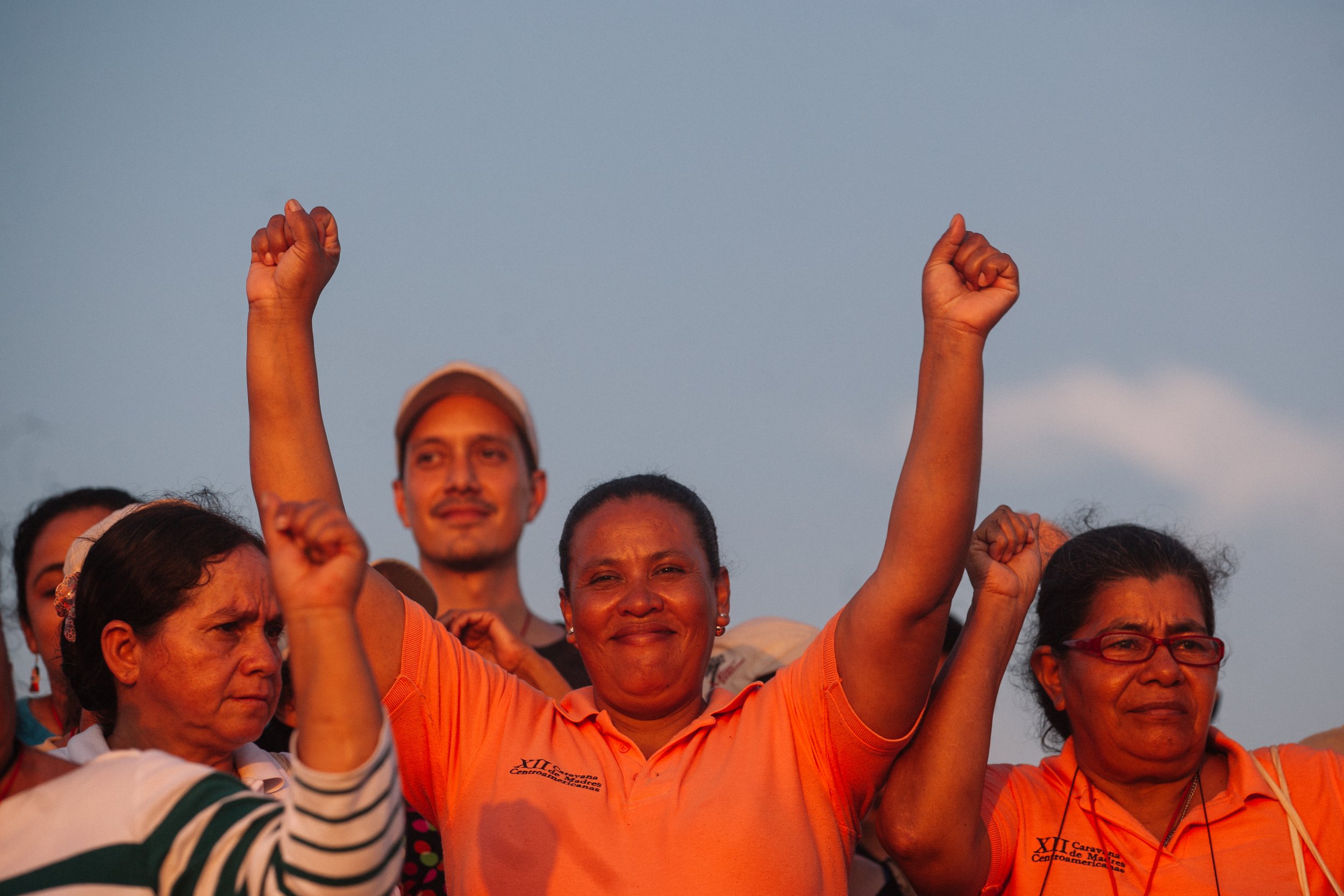
After a long and exhausting day of travel, the mothers from the Caravana de Madres de Migrantes Desaparecidos take a moment to stop and watch the sunset together in Chiapas, Mexico. They have been traveling for days, searching for their missing loved ones.
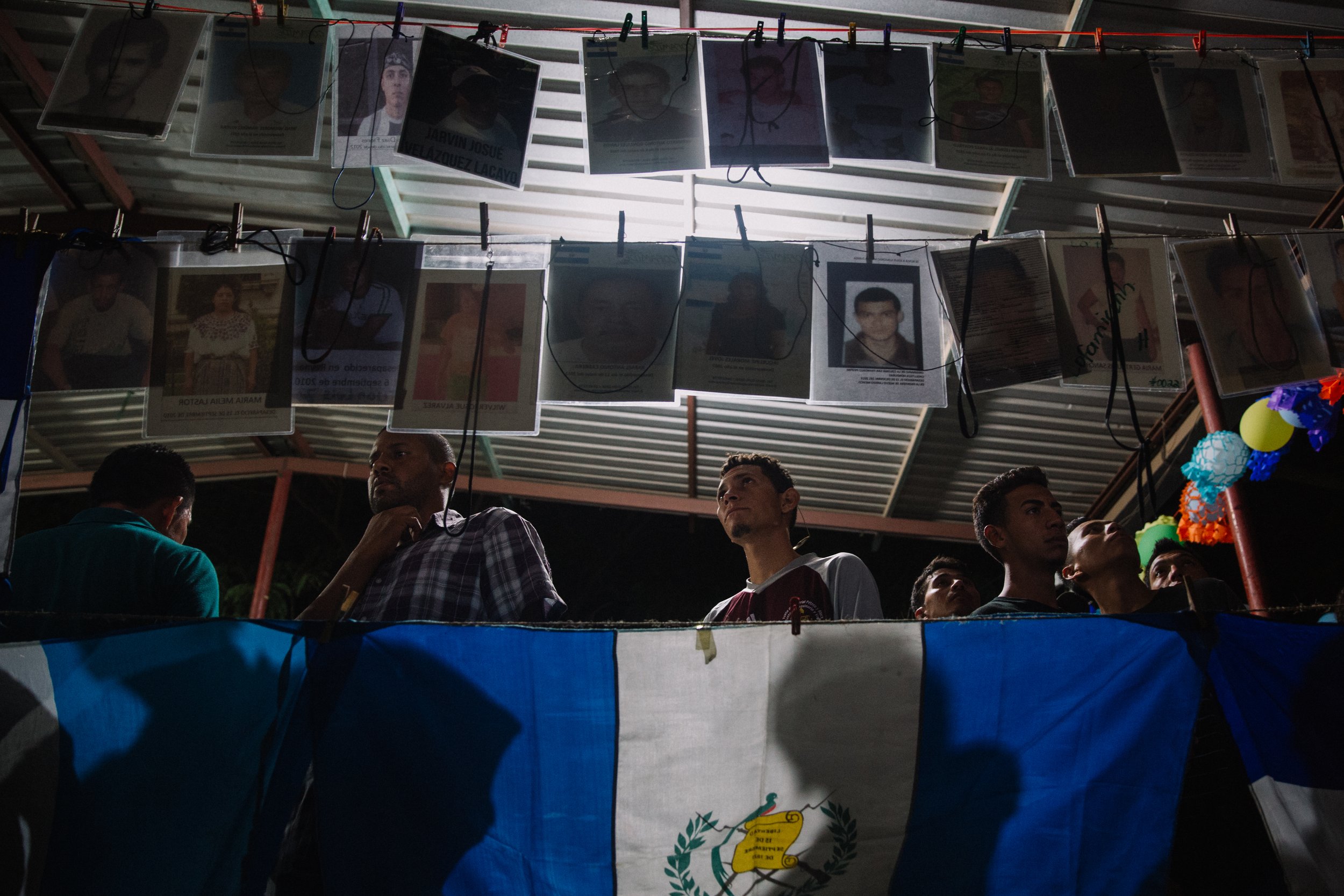
Migrants residing at the Hermanos en el Camino migrant shelter in Ixtepec, Oaxaca, Mexico, take turns carefully examining the mothers' photographs of their disappeared family members. The images serve as a stark reminder of the harsh reality of migration and the toll it takes on families.
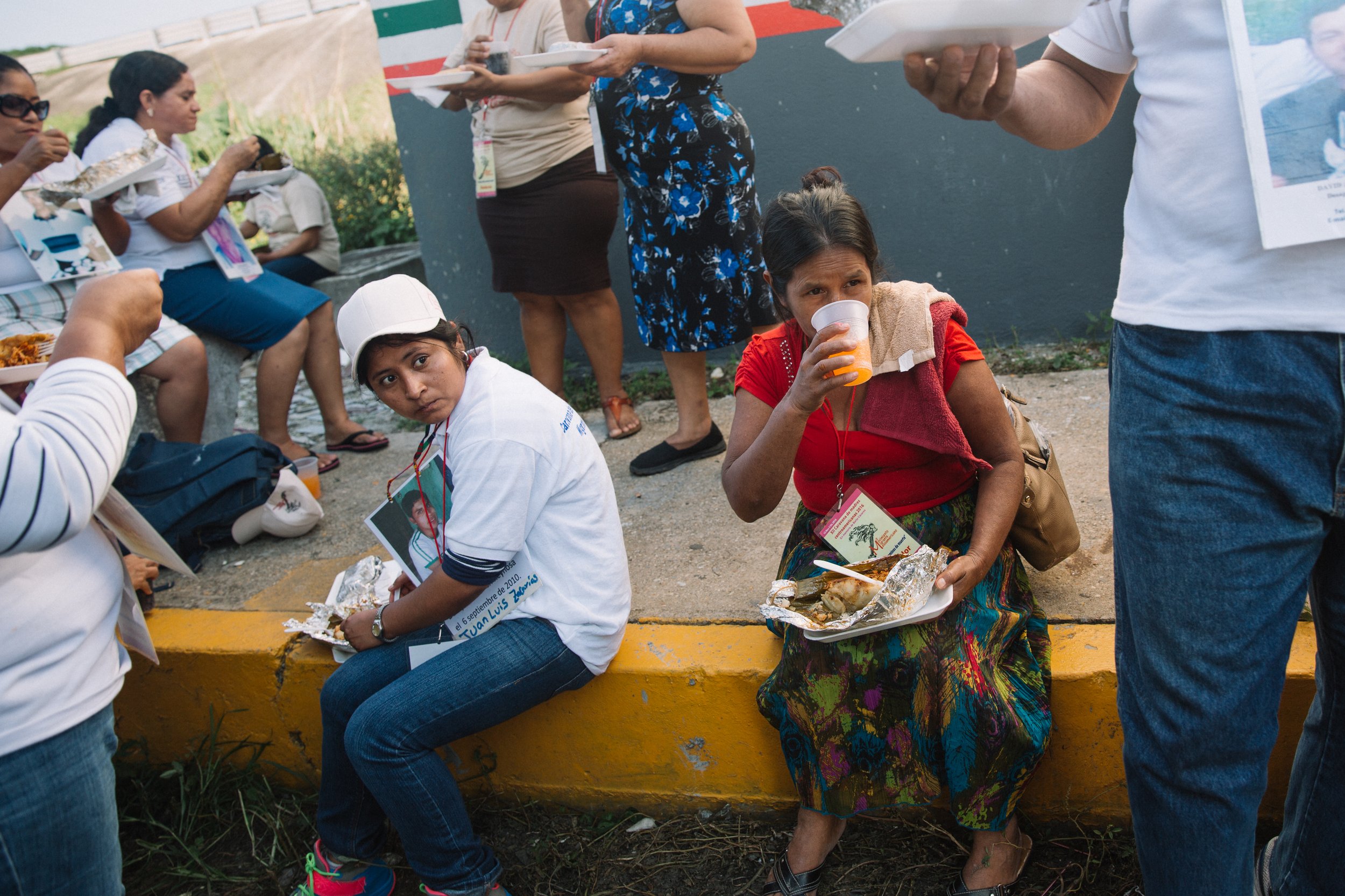
Mothers of the migrant caravan gather to share a meal during a quick pitstop on their journey to Coatzacoalcos, Veracruz, Mexico.
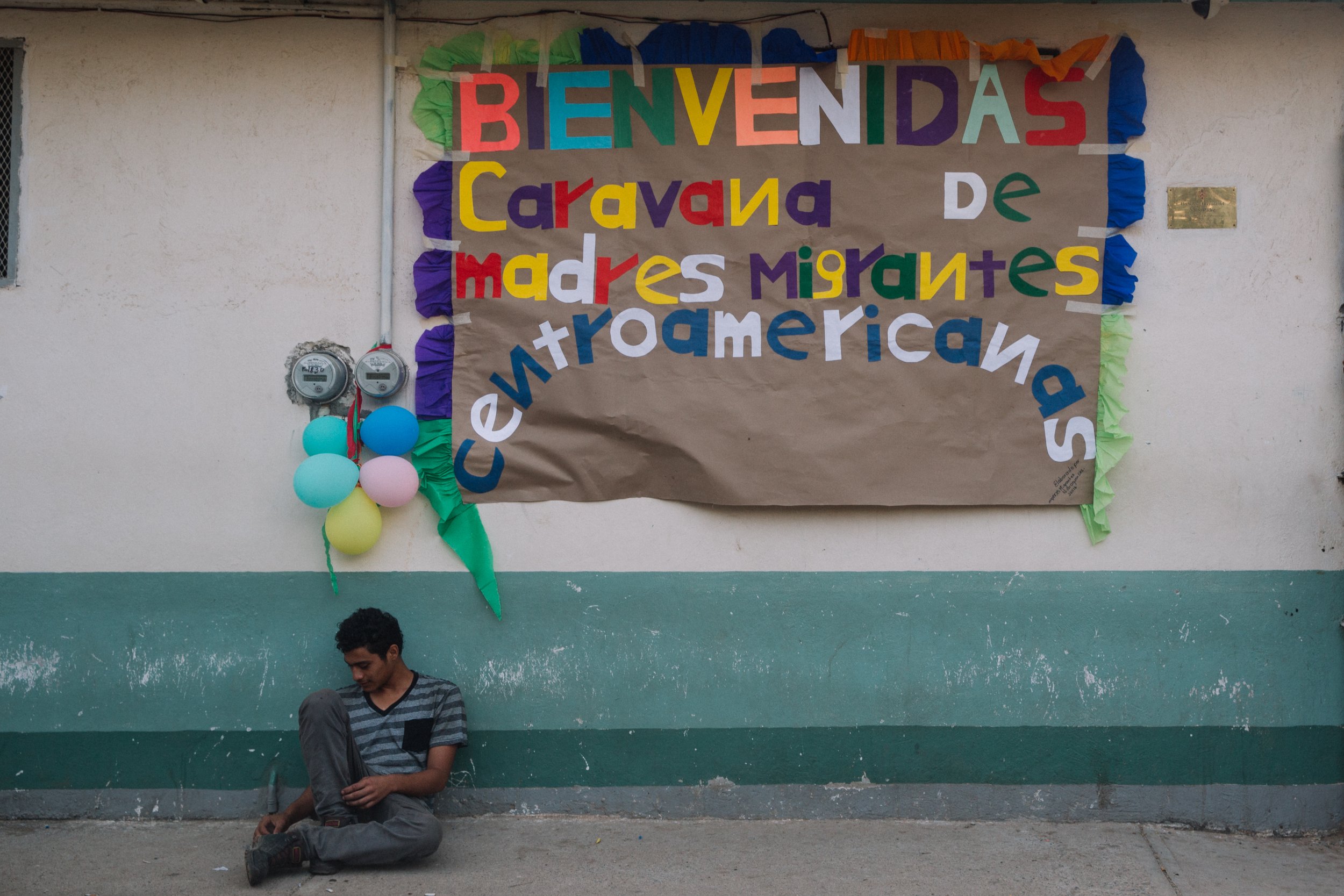
A welcome sign hangs outside of the "Hermanos en el Camino" migrant shelter, where the caravan of mothers will stop and stay the night in Ixtepec, Oaxaca, Mexico.
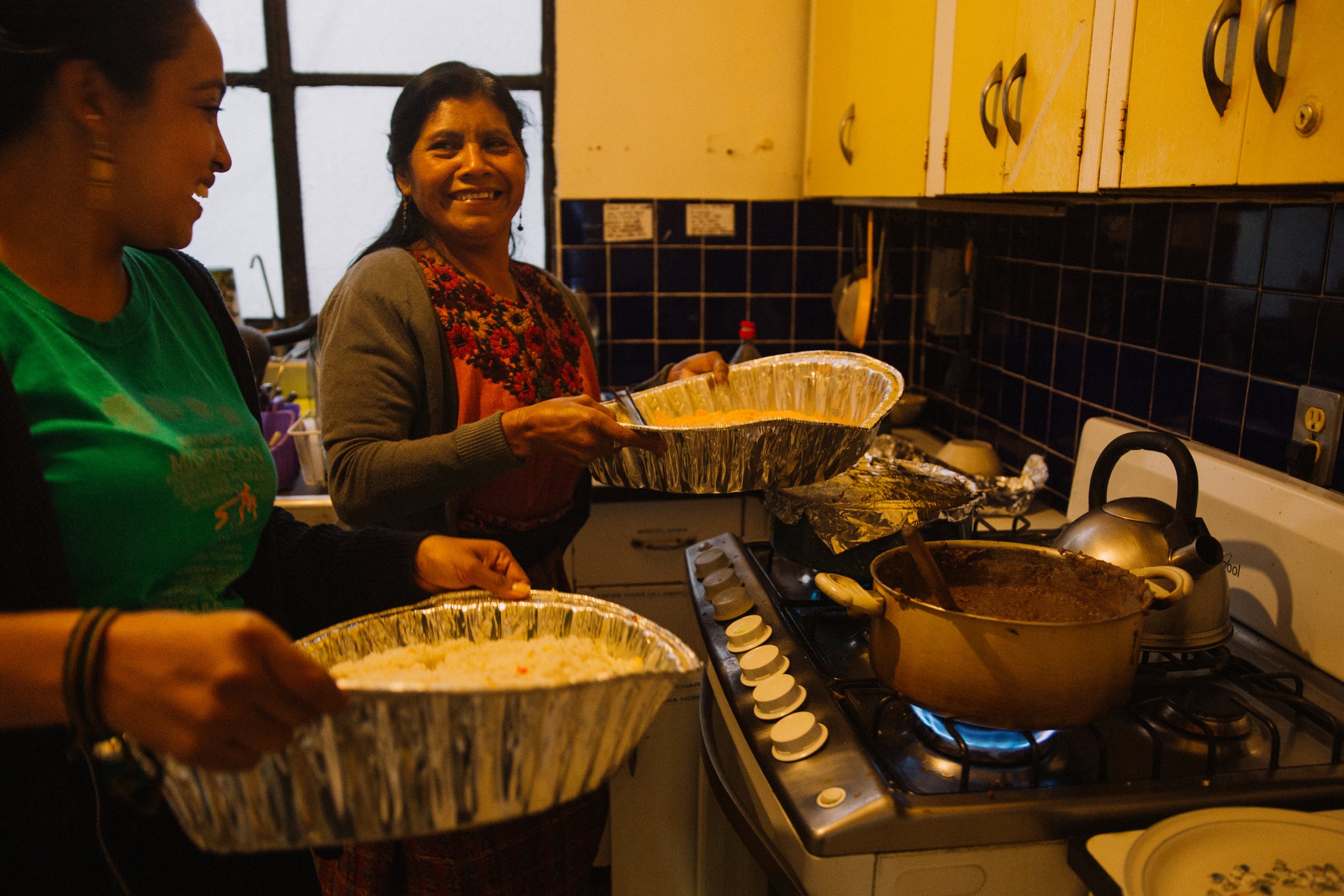
Kata Lopez Lopez grabs trays of food to warm up for the caravan's breakfast Nov. 27, 2016 in Mexico City, Mexico.
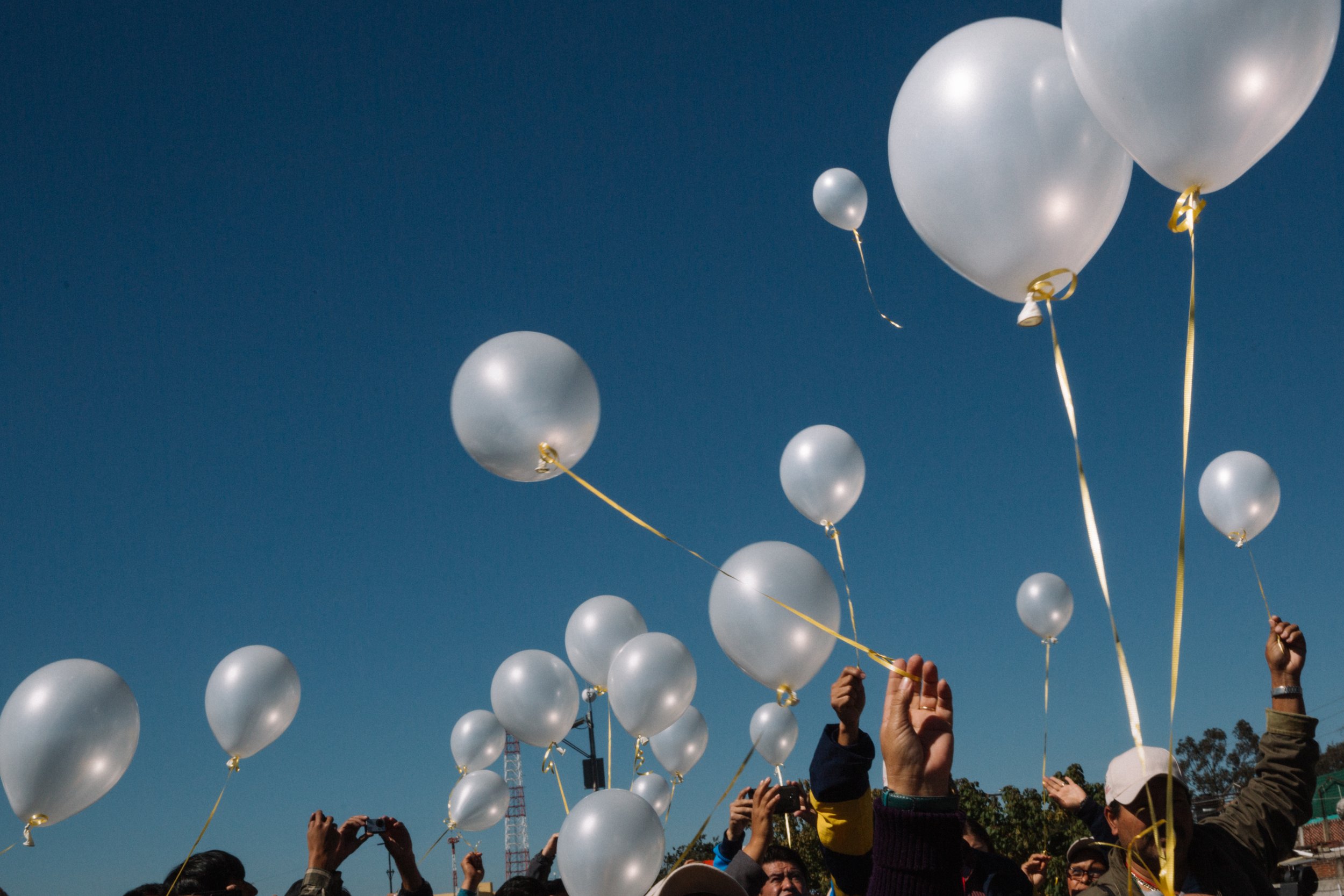
During a symbolic ceremony honoring their missing family members, the mothers of the Caravana de Madres de Migrantes Desaparecidos gather at a migrant shelter in Apizaco, Tlaxcala, Mexico. The ceremony serves as a poignant reminder of the loved ones who are no longer with them and the ongoing search for answers.
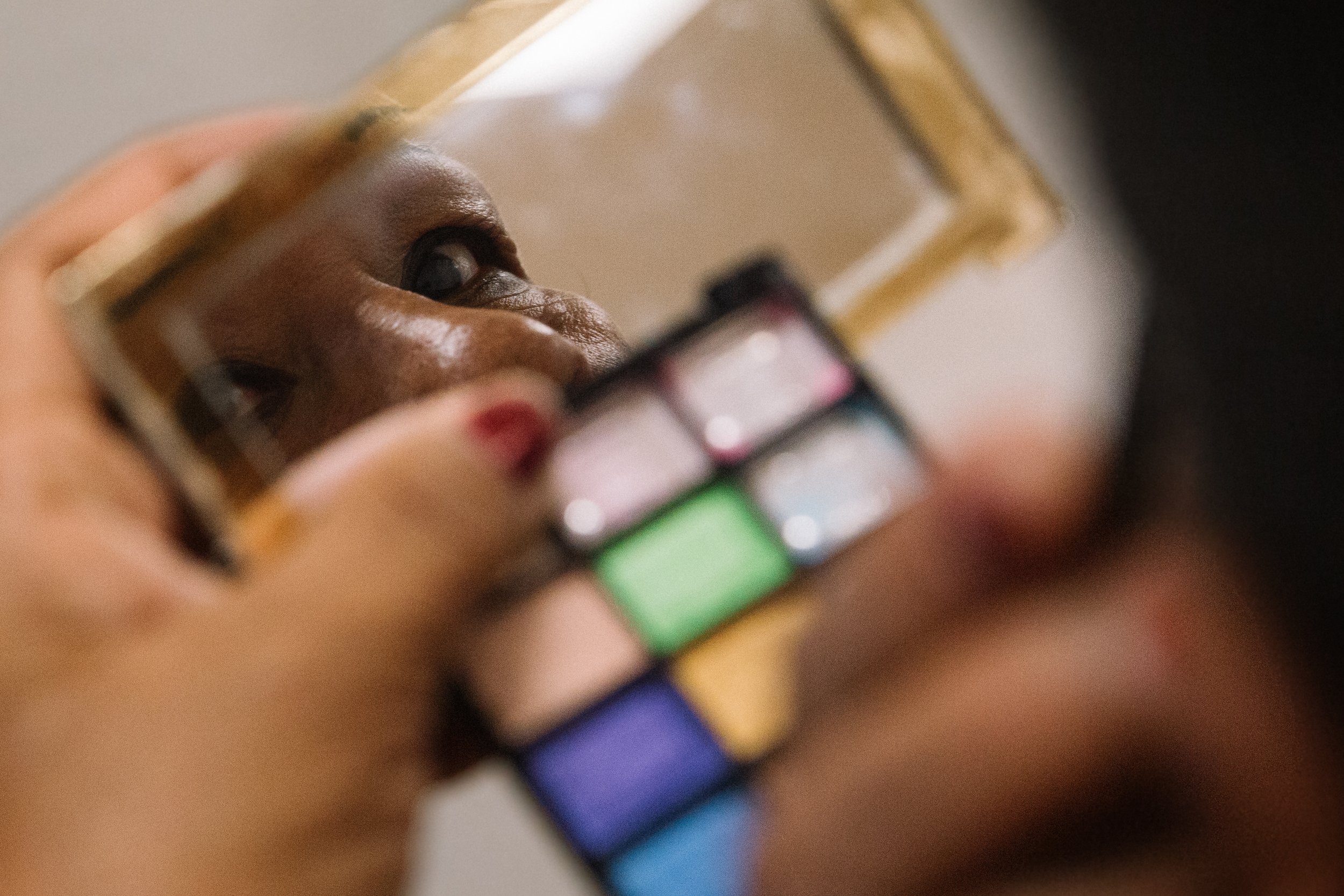
Martha Isabel Martinez from Honduras applies her makeup with a sense of purpose and determination, preparing to join the rest of the Caravana de Madres de Migrantes Desaparecidos for breakfast in Mexico City. Despite the passing of three long years, Martha continues to search for her son Orvil Danilo Valencia Martinez, refusing to give up hope that one day they will be reunited.
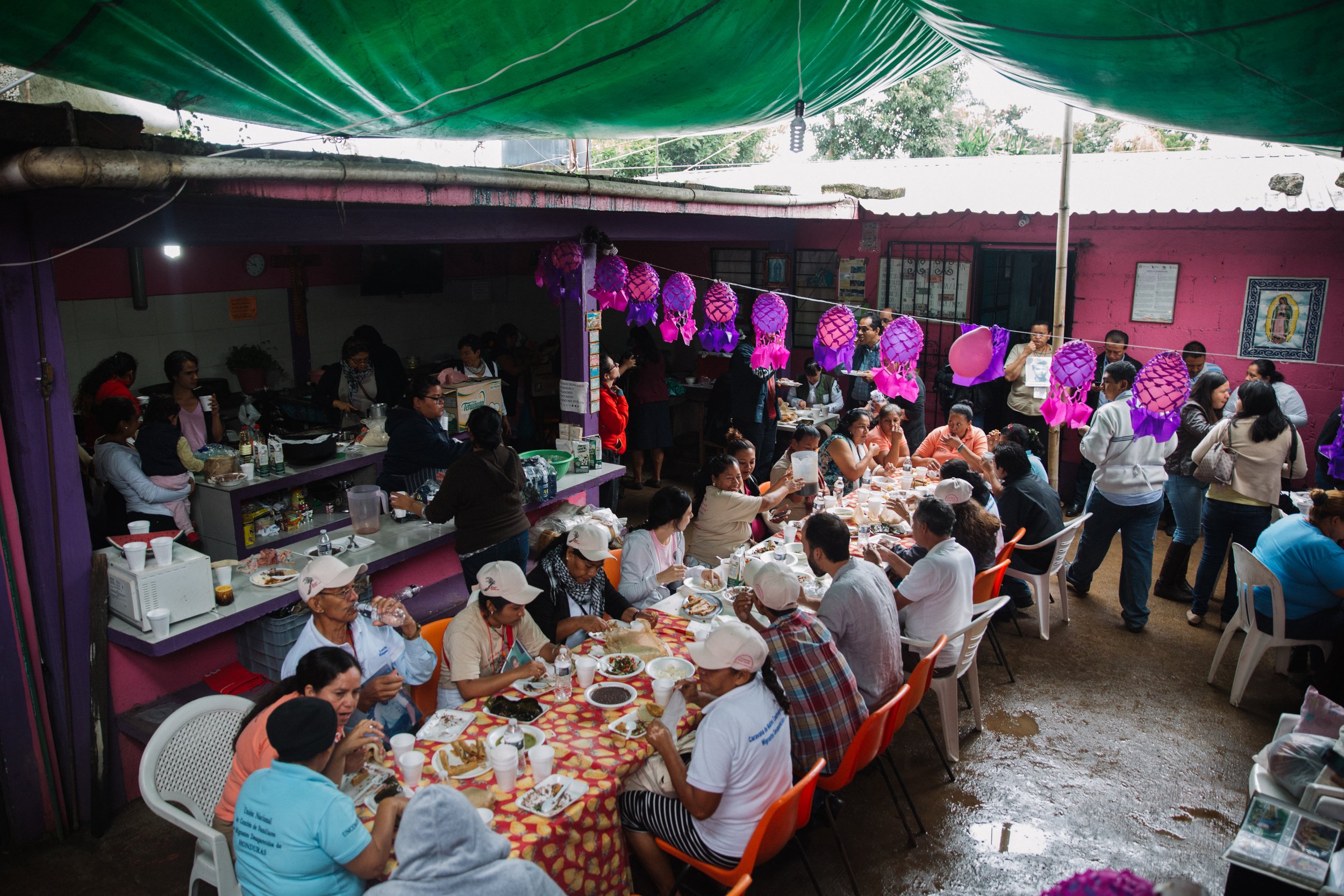
The caravan eats every single meal together, and as the journey continues they collectively grow a deeper bond with one another. This bond will carry them through the remainder of this journey and beyond after they have all returned home.
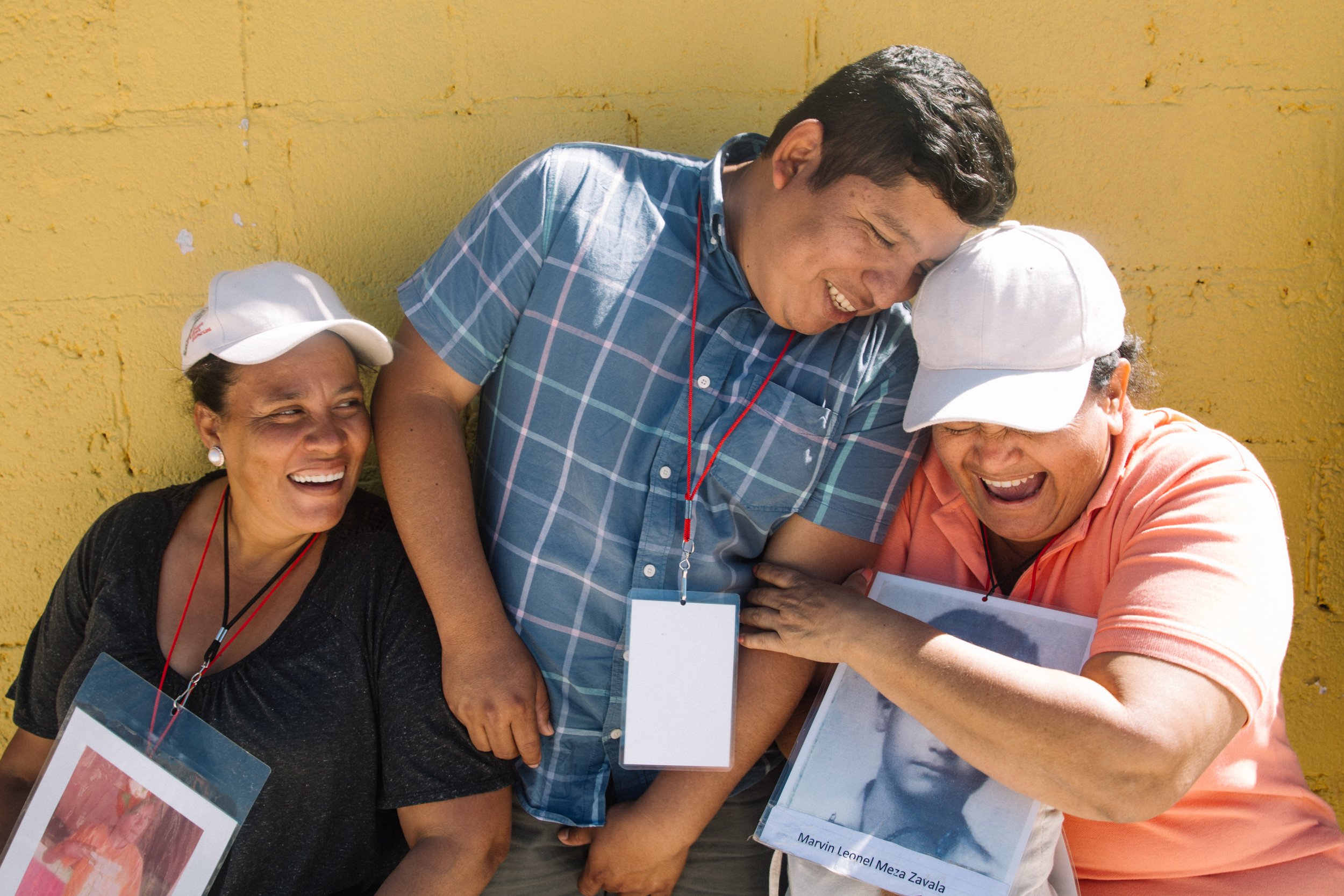
Organizer Ruben Figueroa shares a light moment with two mothers from the caravan, Noemi Yamilet Alvarez (left) and Doris Yamilet Meza Zavala, at Albergue La Sagrada Familia migrant shelter in Apizaco, Tlaxcala, Mexico
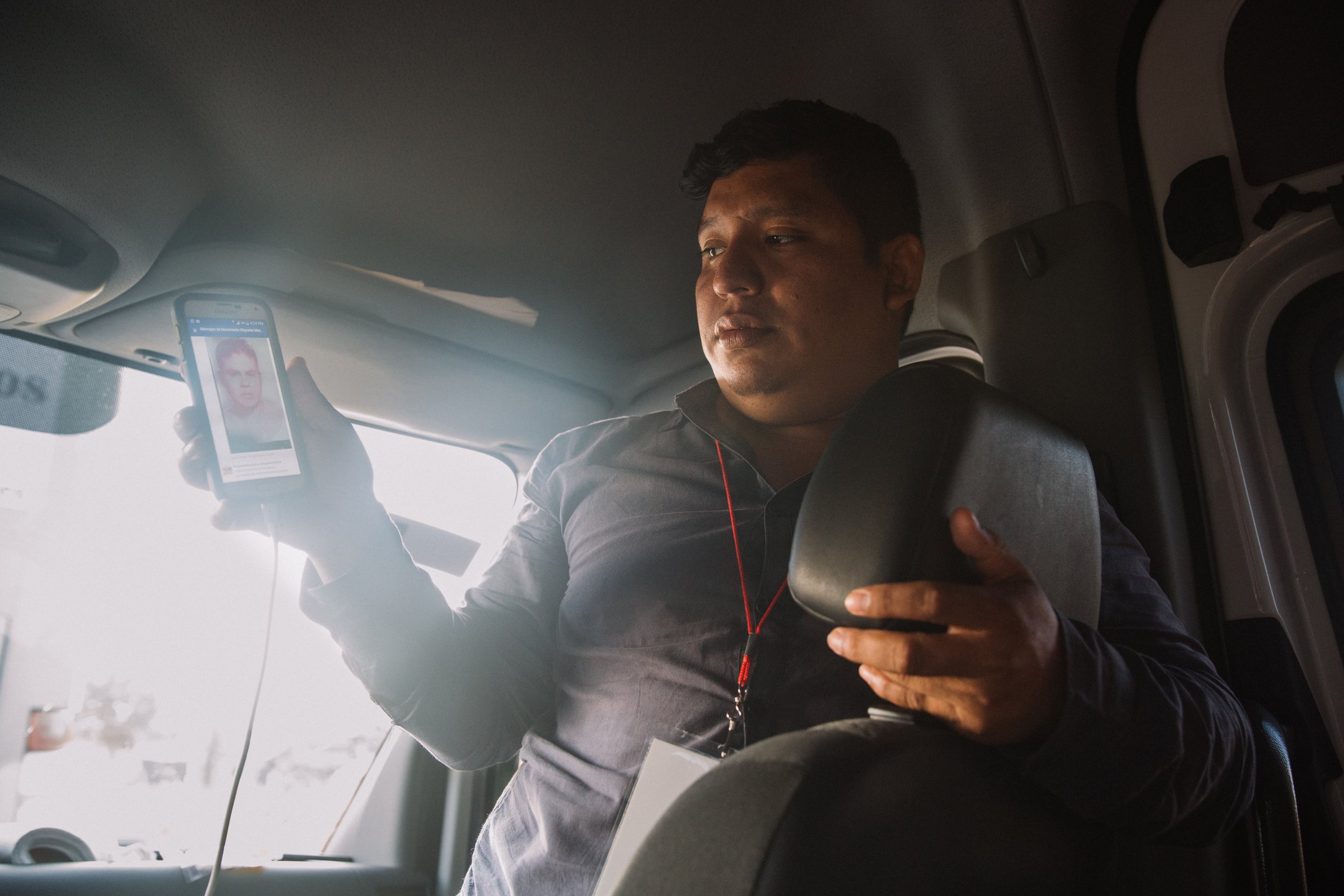
Organizer Ruben Figueroa holds up a photo that was sent to the group's Facebook account, highlighting the use of technology in the group's efforts to gather clues about missing migrants.
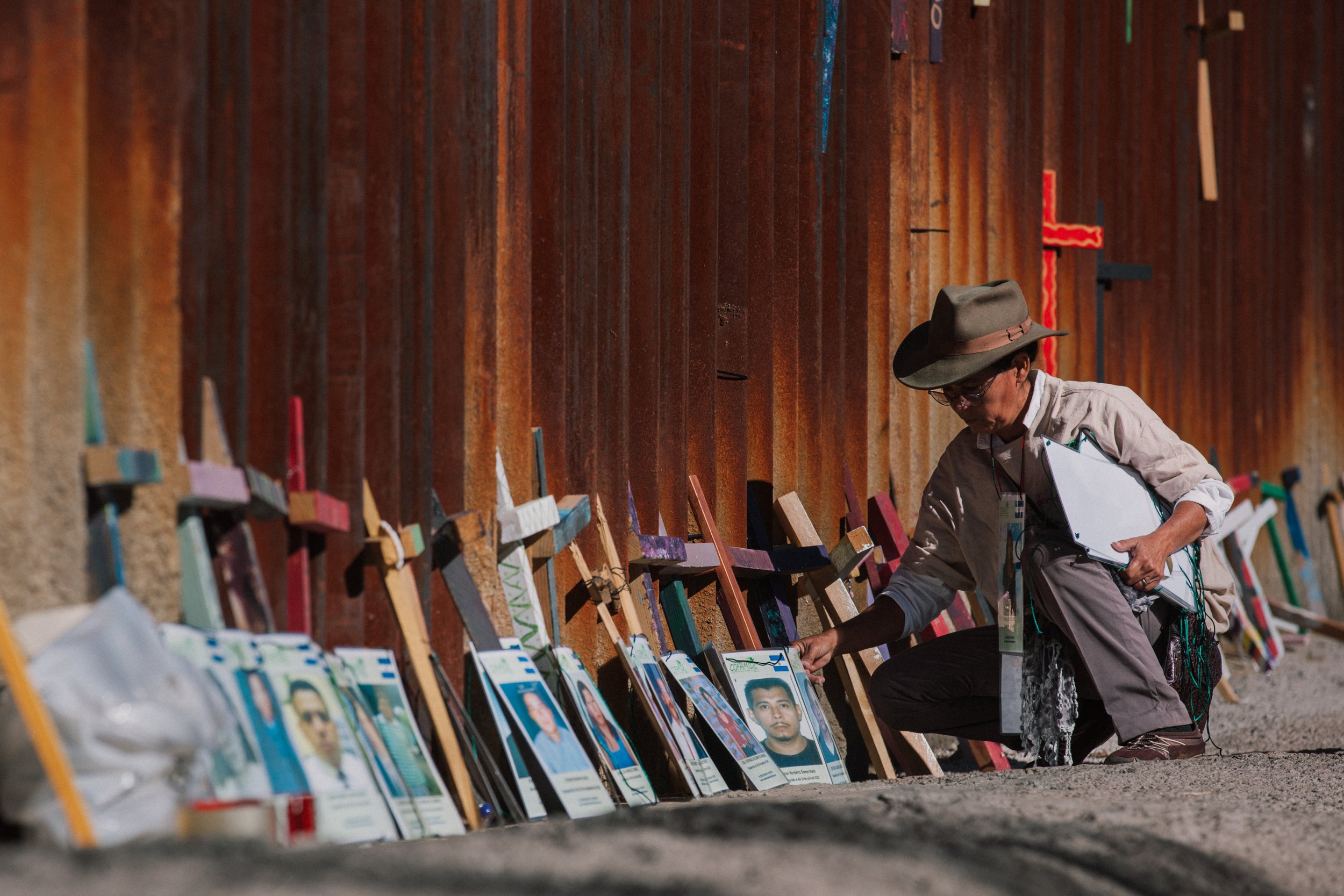
Liliam Morales spreads out the photos of missing family members against the border wall separating Mexico and Arizona in Nogales, Sonora, Mexico. Like many other migrants, Liliam's family has been torn apart by the harsh realities of crossing the border. The photos serve as a powerful reminder of the sacrifices and struggles faced by those who leave their homes in search of a better life.
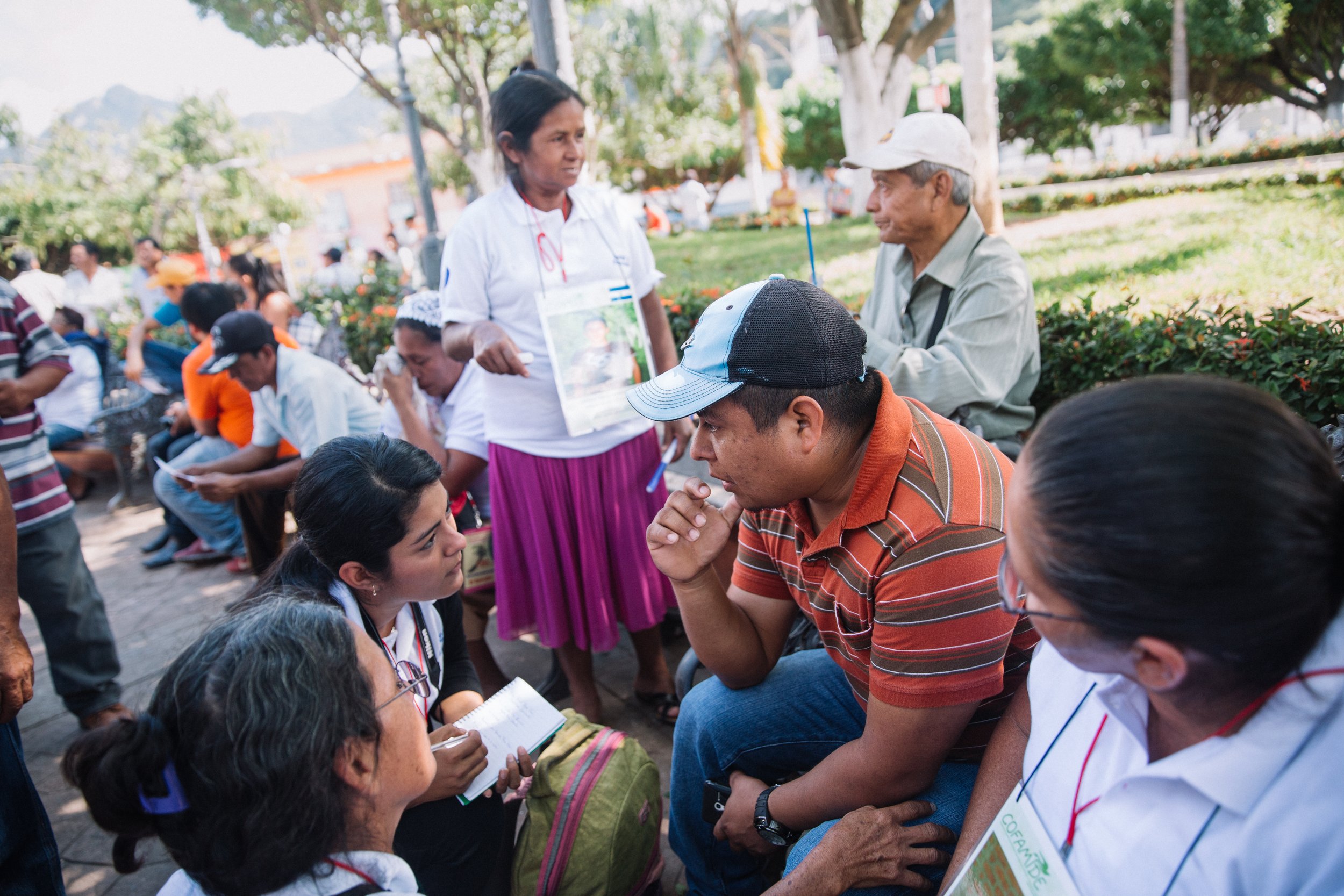
A group of mothers huddle together, listening intently as a man shares the heartbreaking details of his missing relative, lost on the treacherous migration journey. These mothers, bound by grief and the determination to find their loved ones, play an important role as keepers of information. Strangers approach them with additional names and details, adding to the ever-growing list of the missing. With each shared story, the mothers' resolve deepens, knowing that the only way to bring closure to their pain is to keep searching and keep fighting for justice.
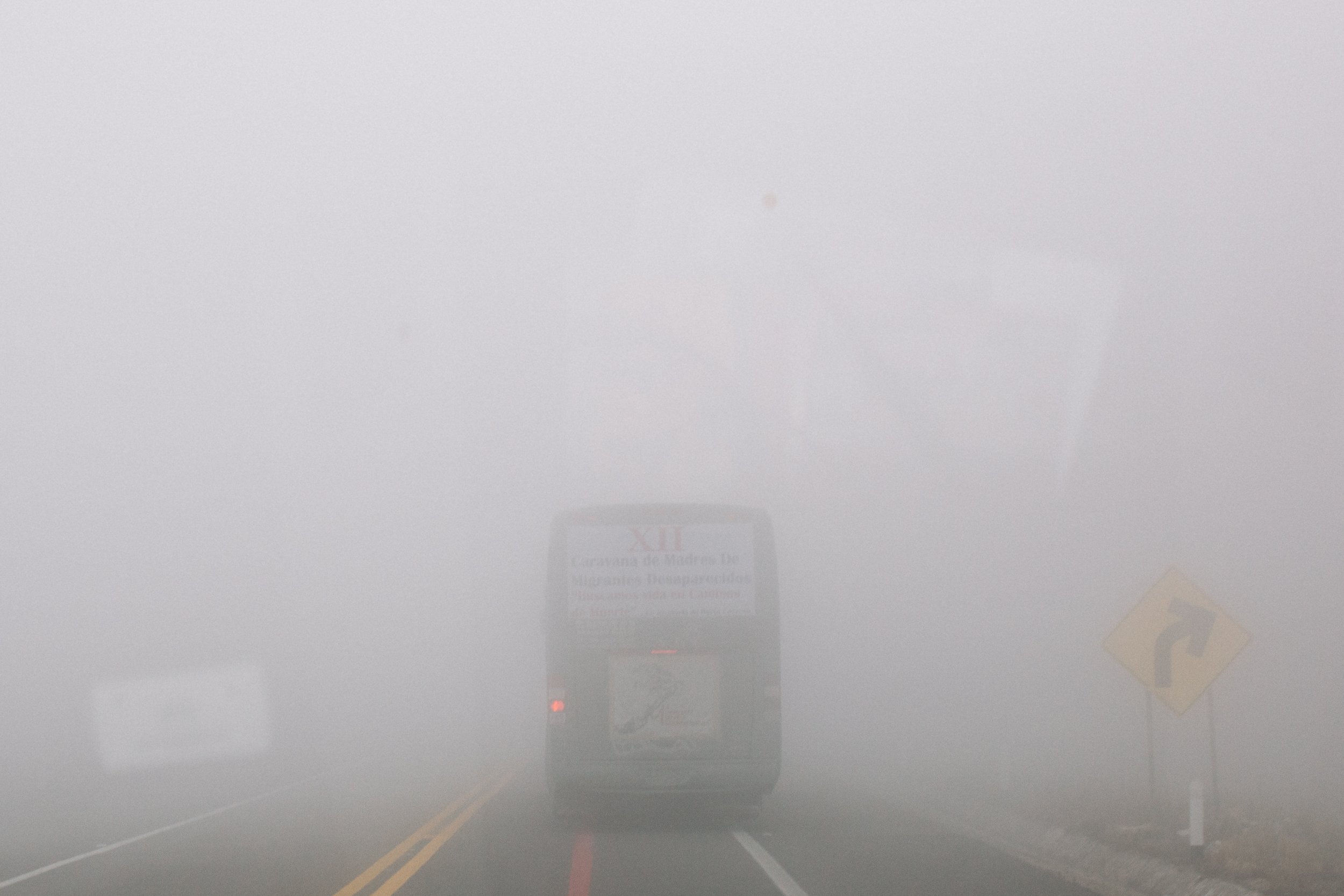
The Caravana de Madres de Migrantes Desaparecidos disappears into the thick fog as they continue their journey through Huimanguillo, Tabasco, Mexico.
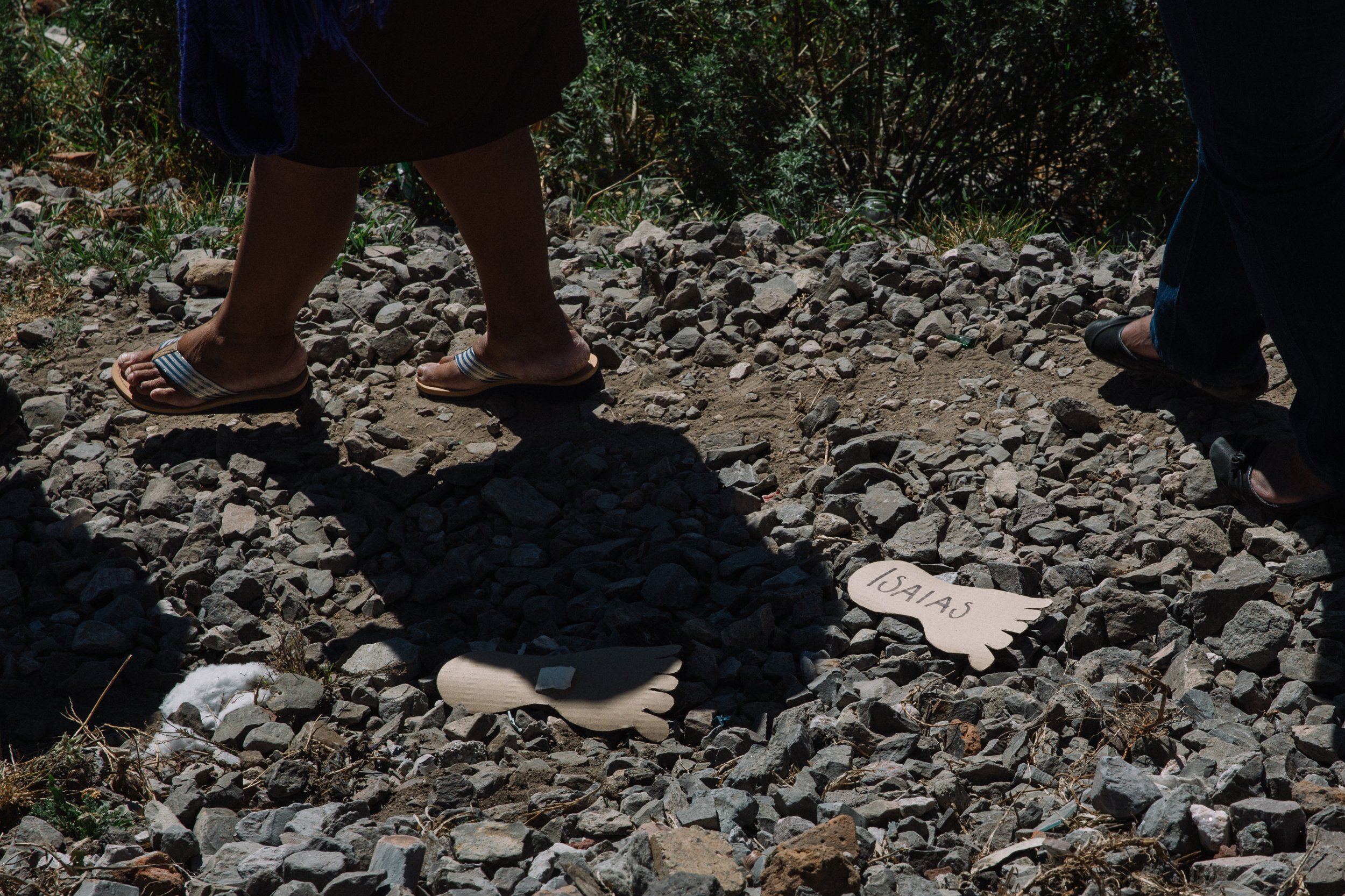
Organizers at a migrant shelter in Apizaco, Tlaxcala, Mexico pay tribute to the missing migrants by writing every single name on a paper cutout of a foot, symbolizing the difficult and perilous journey that the migrants face.
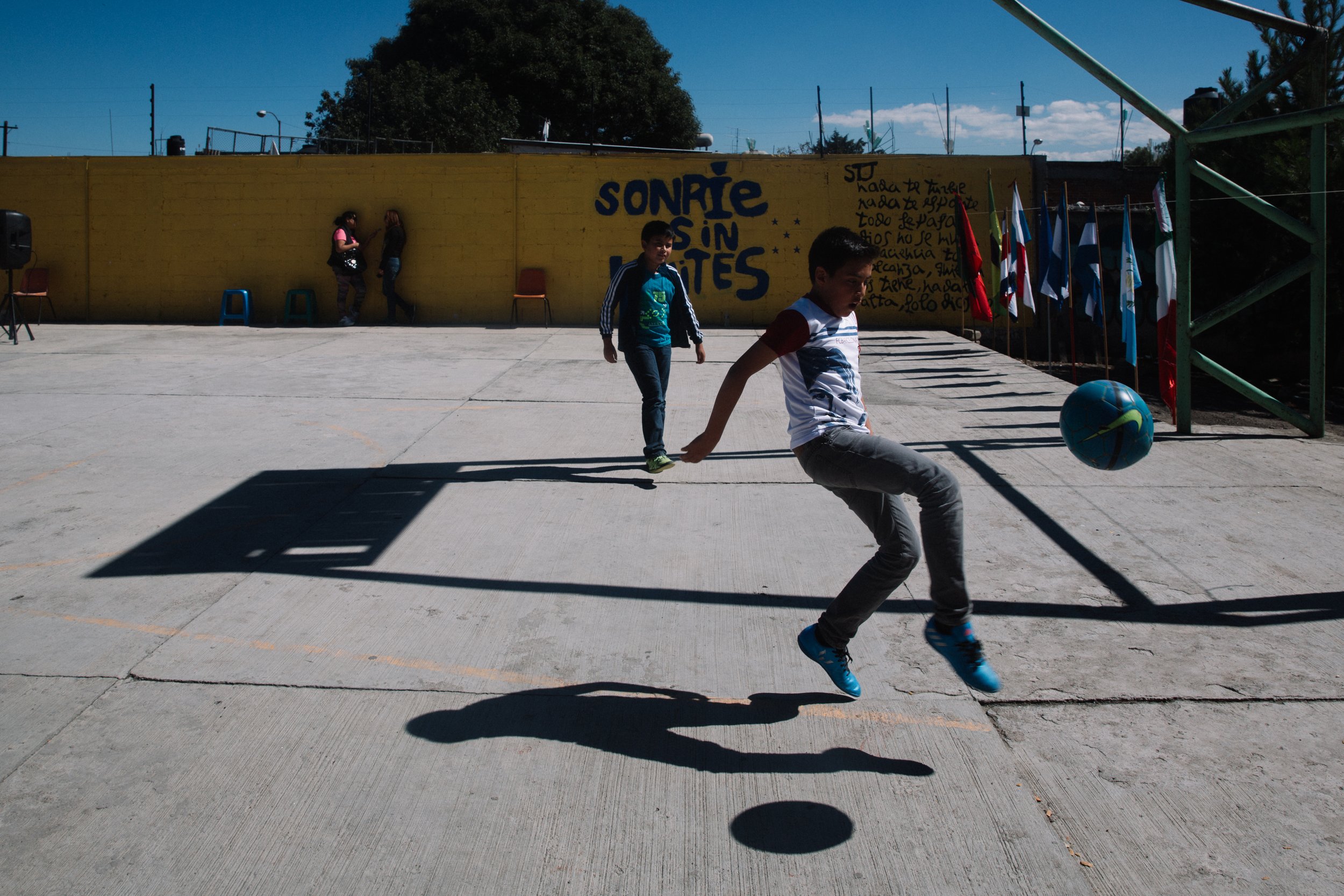
In the midst of the challenging and uncertain life of migration, children find solace and joy by playing soccer in the courtyard of the Albergue La Sagrada Familia migrant shelter in Apizaco, Tlaxcala, Mexico.
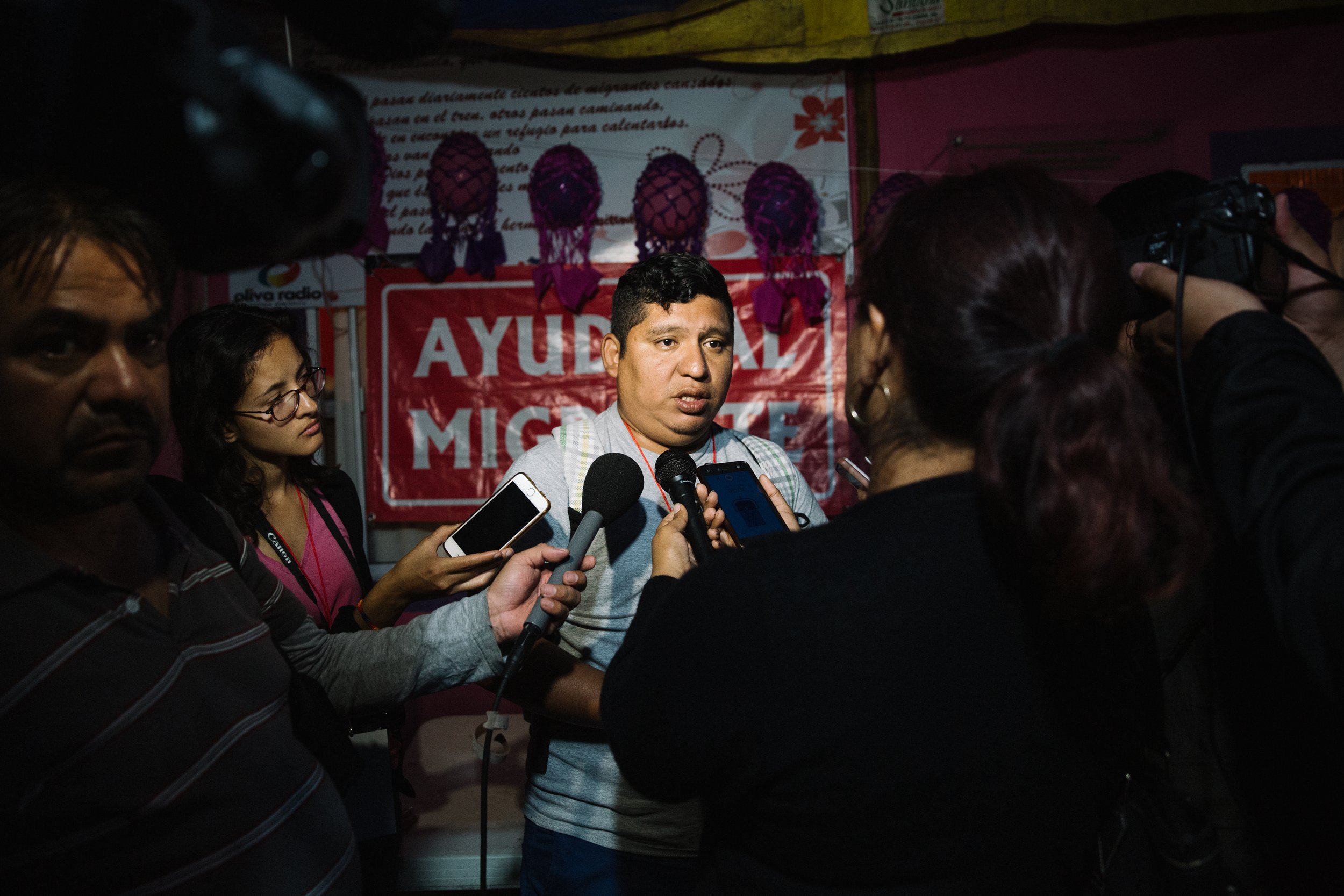
Organizer Ruben Figueroa speaks to reporters after the successful reunion of two sisters in Las Patronas, Veracruz, Mexico. The sisters had been separated for over 37 years, and their emotional reunion was a testament to the importance of the work being done by the Caravana de Madres Centroamericanas.
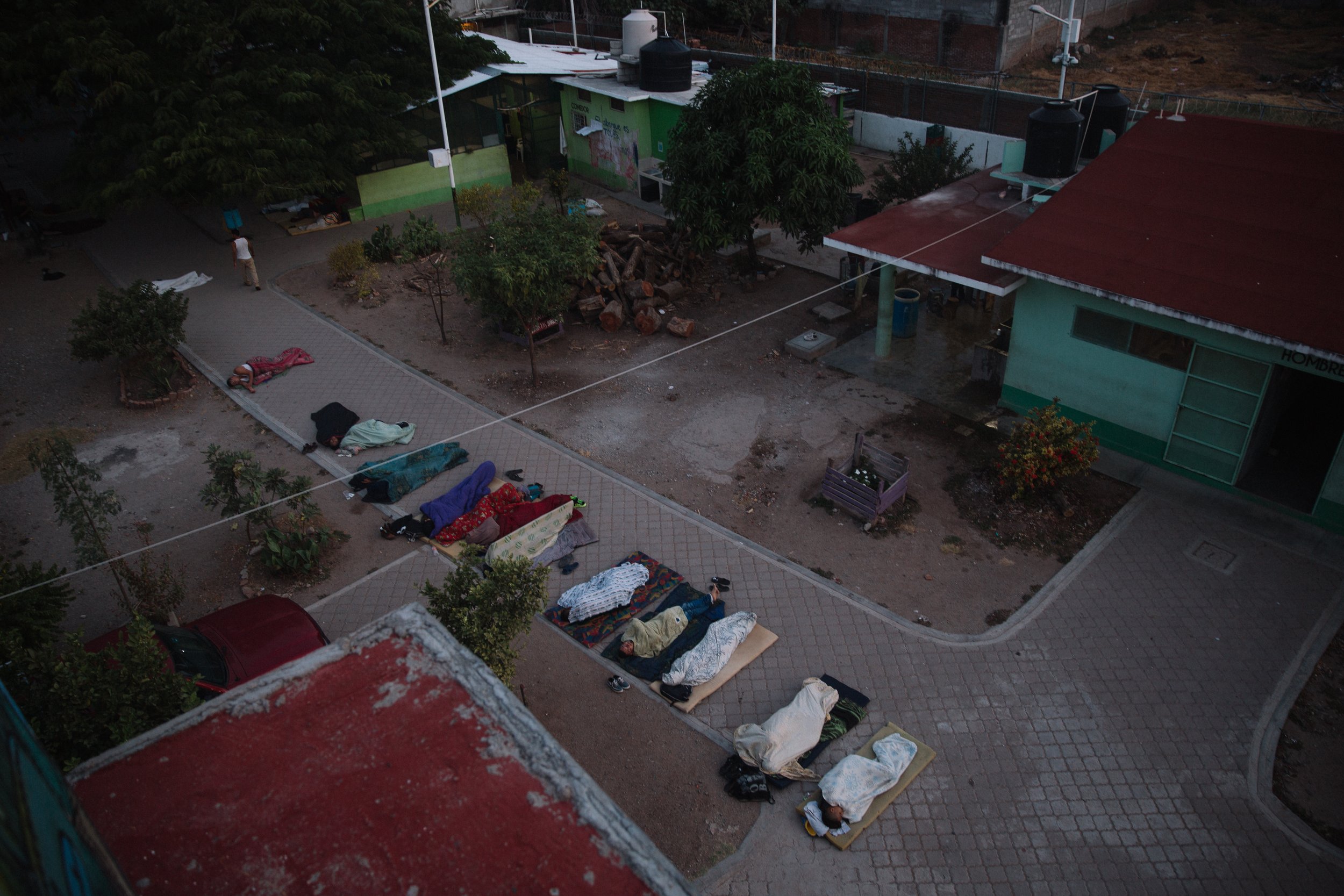
Due to the large number of migrants seeking refuge and support at the Migrant shelter "Hermanos en el Camino" in Ixtepec, Oaxaca, Mexico, there were not enough beds or space to accommodate everyone. As a result, several migrants were forced to sleep outside, highlighting the challenging conditions and lack of resources available to those on the migrant journey.
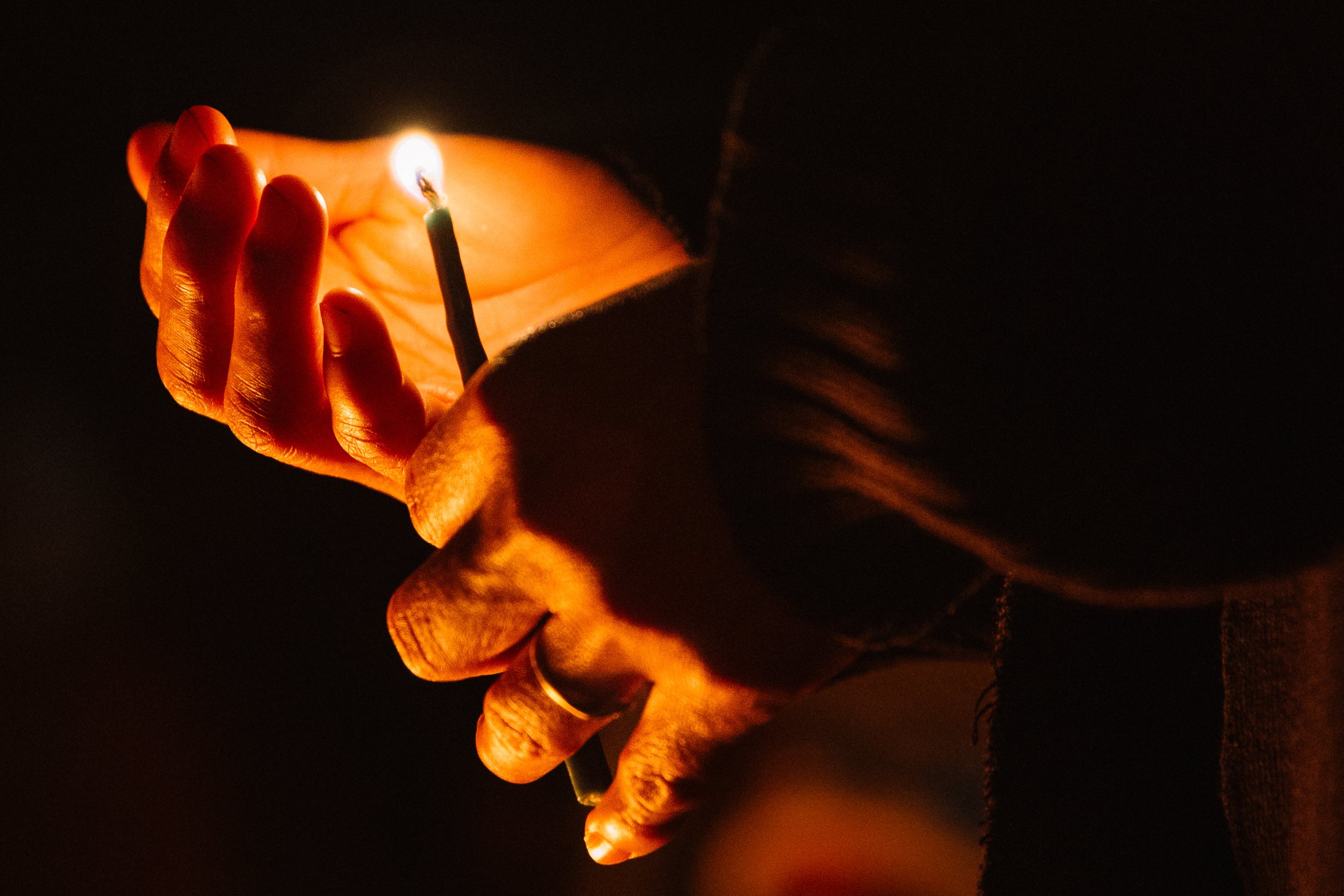
A mother holds a lit candle during a vigil for the missing loved ones at a migrant shelter in Comitan, Chiapas, Mexico.
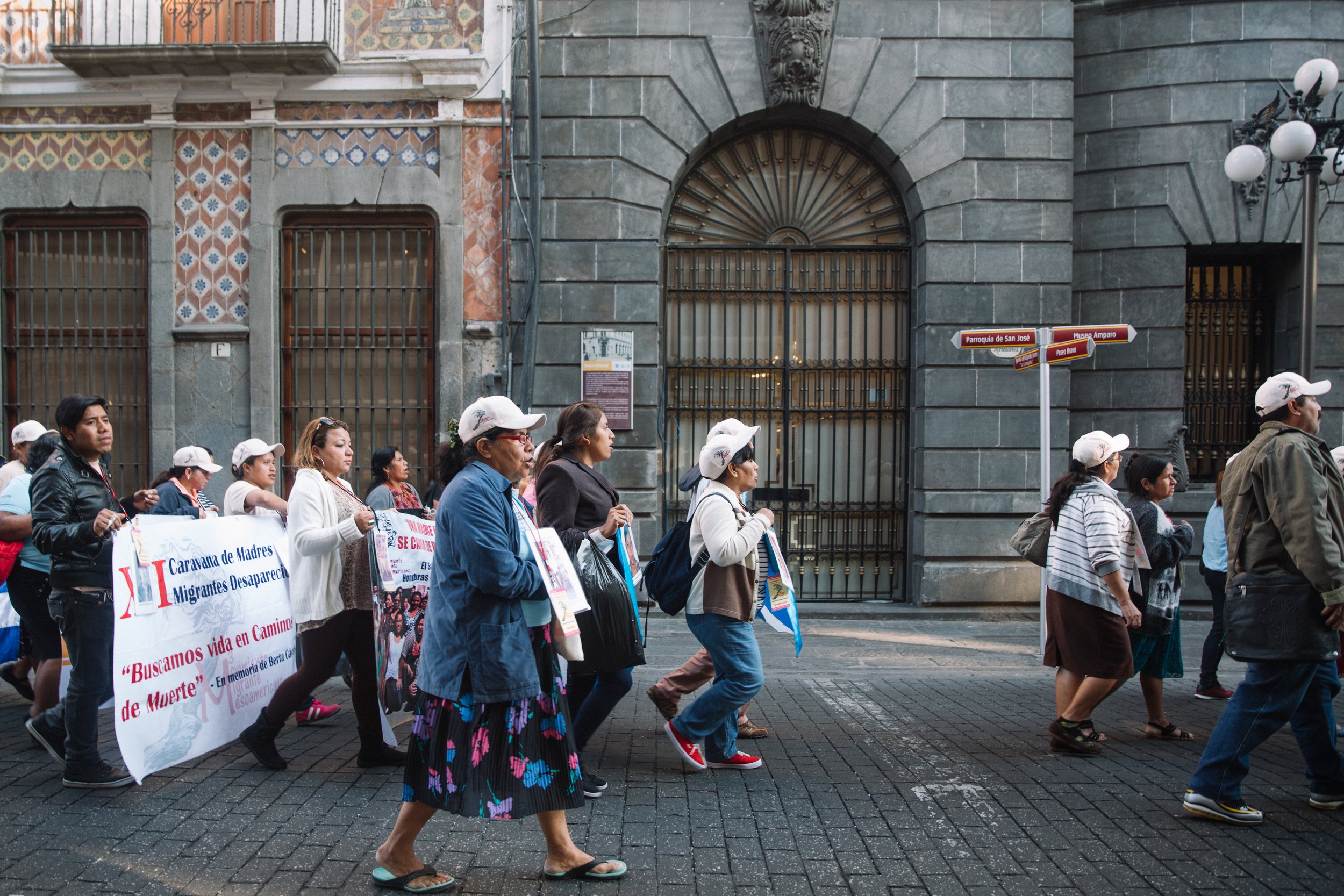
At every stop along their journey, the caravan of mothers holds a public protest, using their collective voices to bring awareness to the issue of missing migrants and demanding justice from the Mexican government.
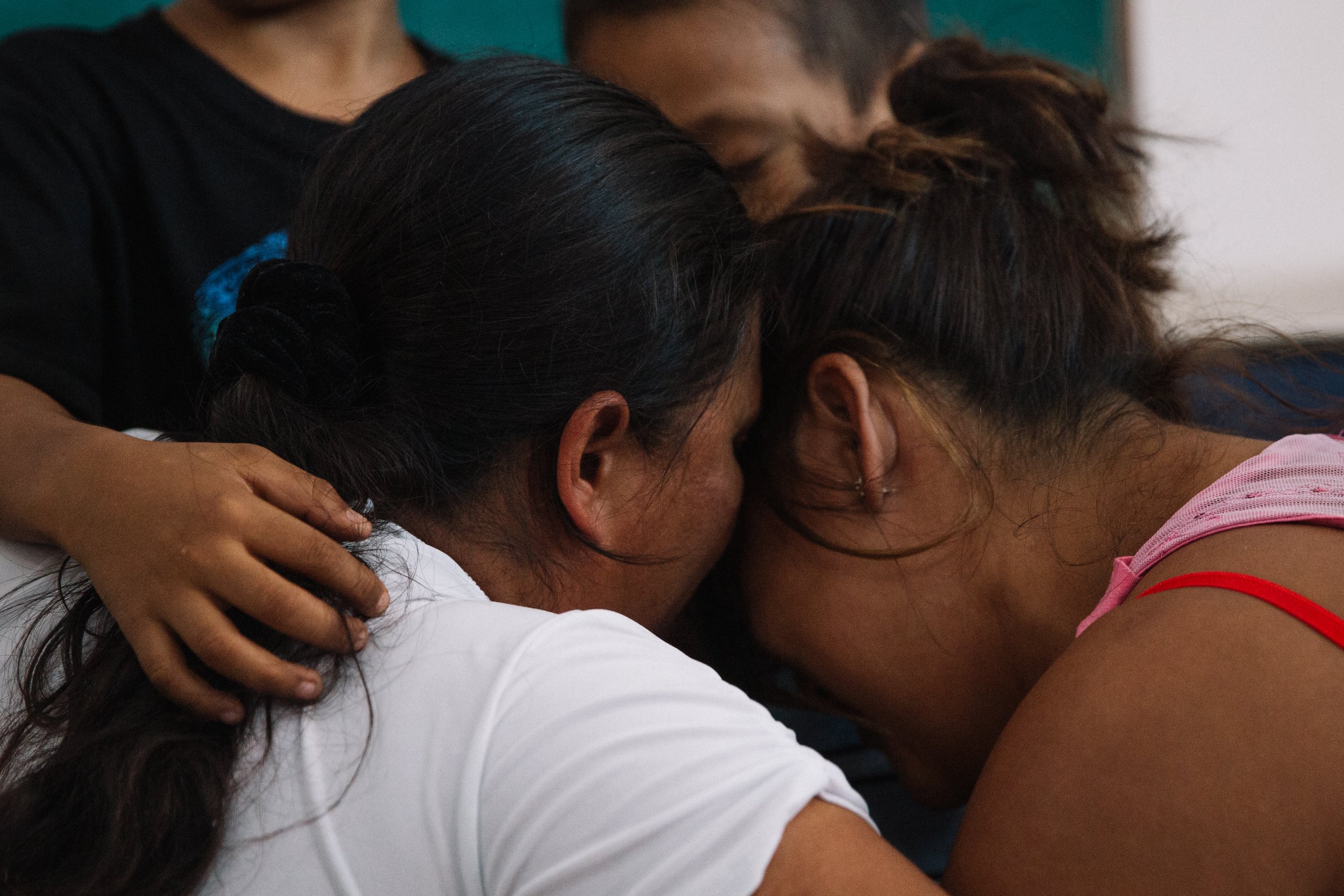
A Mother's Love Reunited: Reyna Edubinia Amaya embraces her daughter Juana and two grandchildren inside a church in Huixtla, Chiapas, Mexico, after eight long years of separation. The emotional reunion is a testament to the power of love and the unbreakable bond between a mother and her child, even in the face of incredible adversity.
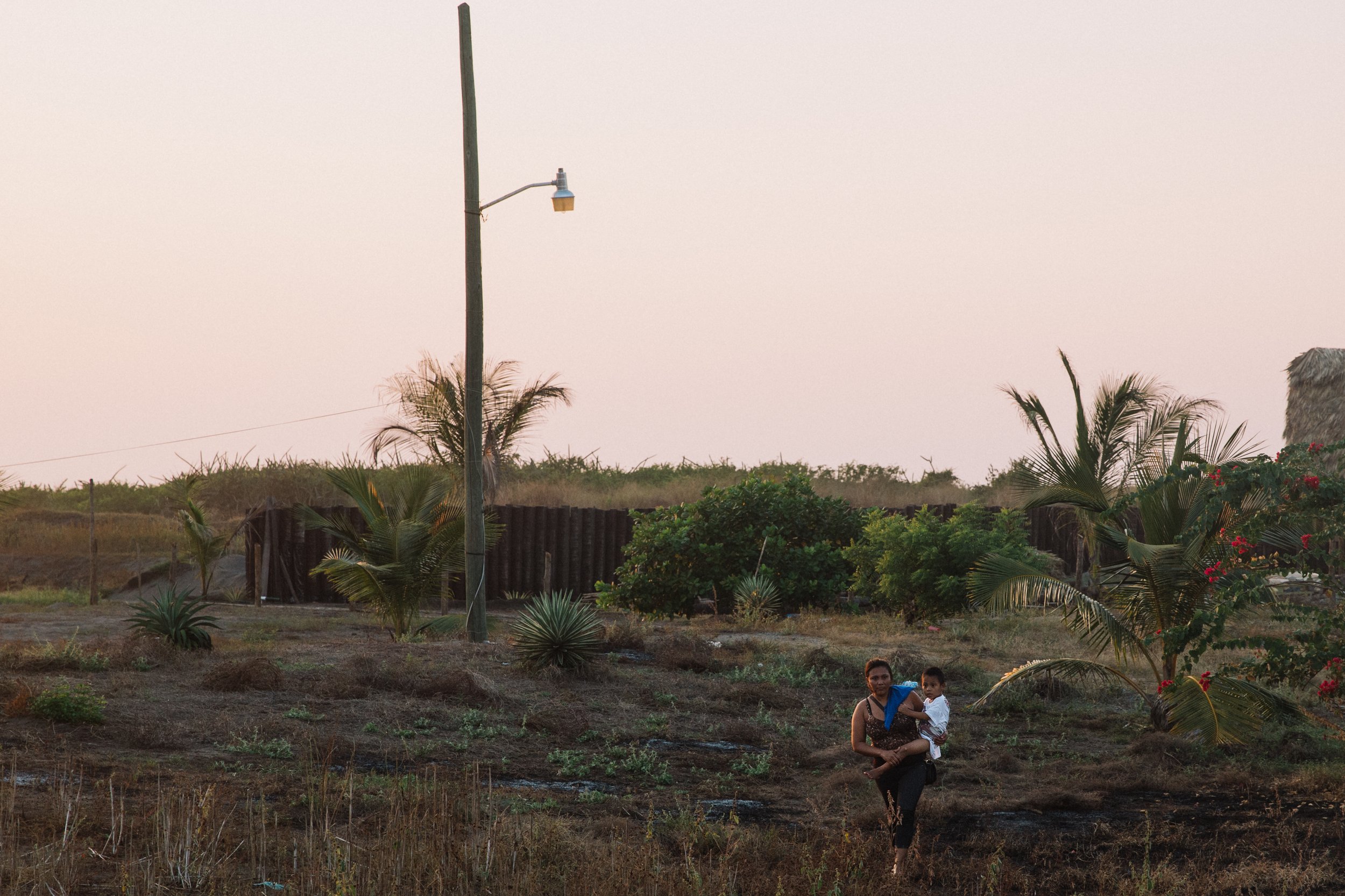
A mother carrying her son pauses to watch the Caravana de Madres de Migrantes Desaparecidos drive by during their annual journey to search for their missing loved ones.
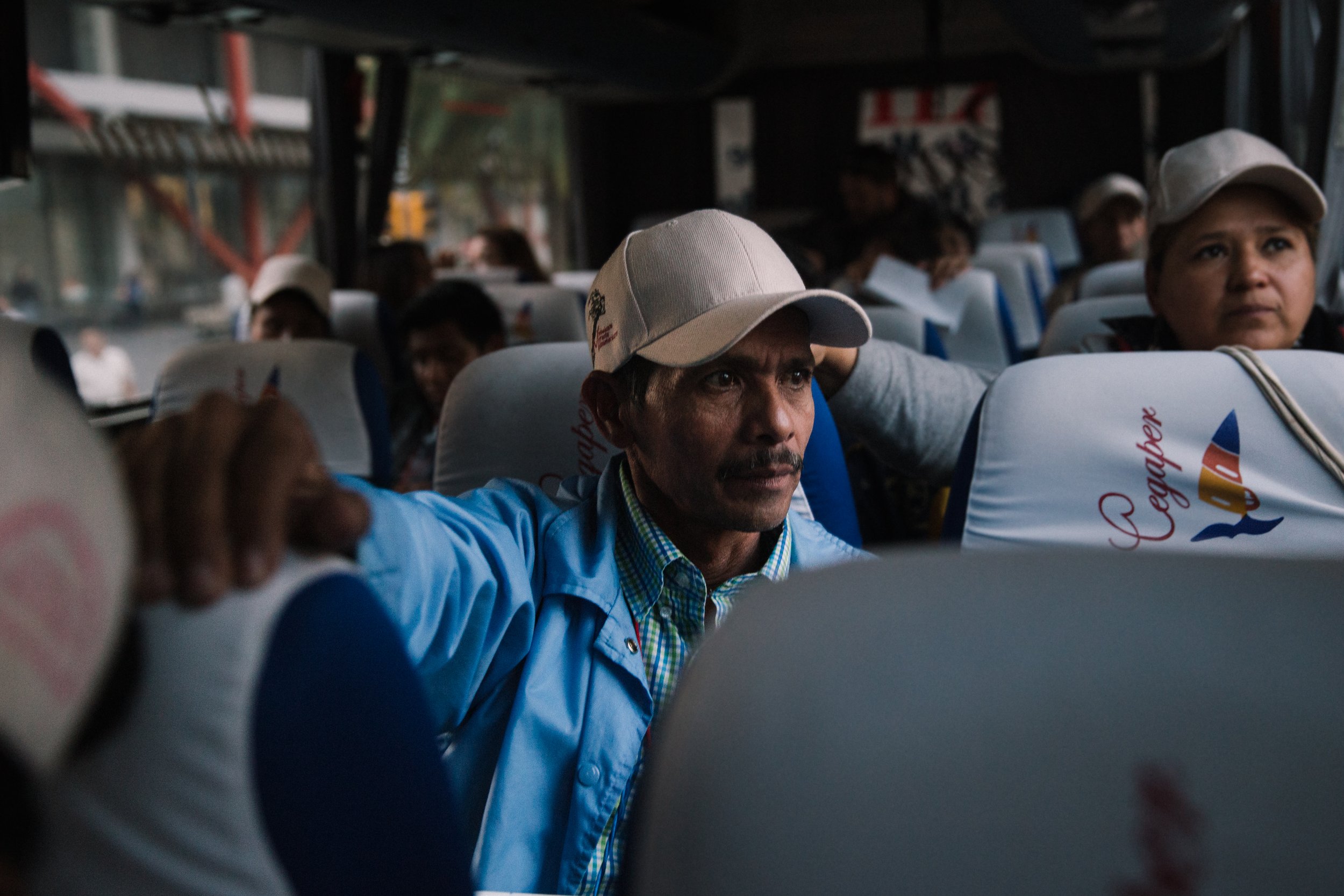
In a somber moment in Mexico City, Felix Pedro Diaz prepares to take legal action against the Mexican government for the disappearance of his son, Humberto Diaz. Despite the passage of five years, Diaz remains determined to seek justice and uncover the truth.
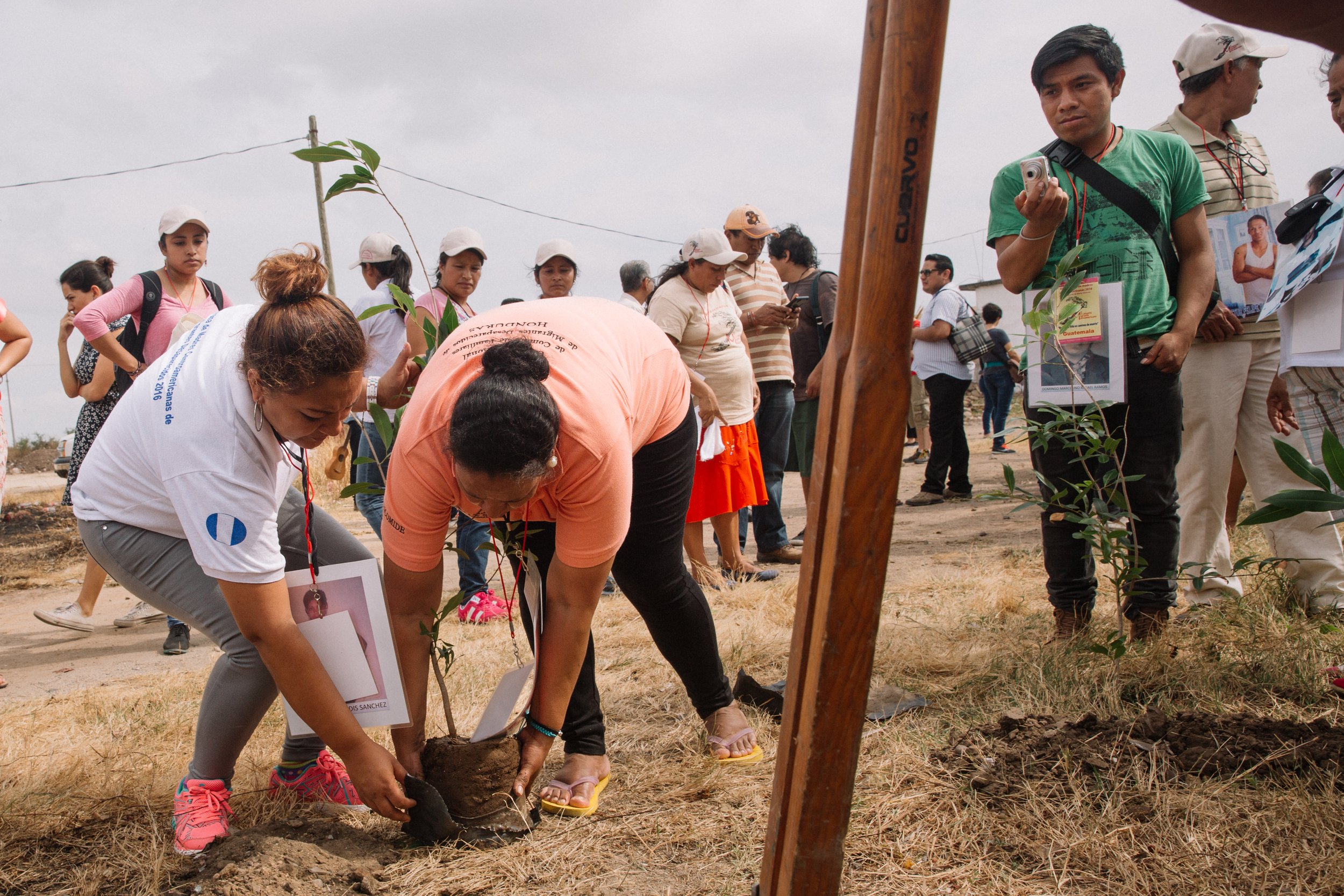
Two grieving mothers find solace in a symbolic act of remembrance, as they plant a tree in the section of the cemetery where a mass grave of unidentified migrant bodies is buried. Their hearts heavy with sorrow, the women honor the memory of those who have lost their lives in the search for a better future. The tree serves as a living memorial to the missing and the fallen, a reminder that their sacrifice will not be forgotten.
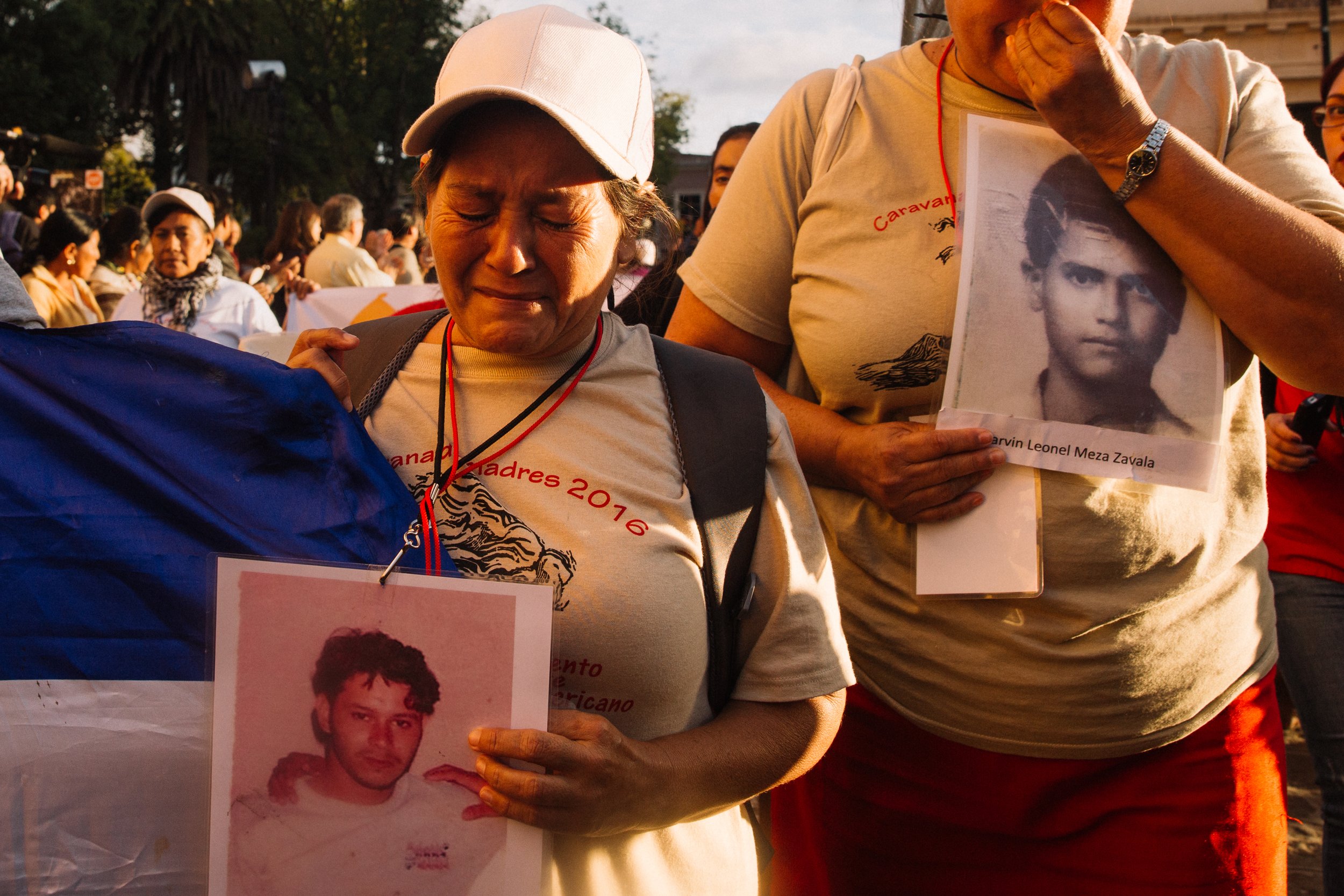
Guadalupe Mendoza, a mother from Honduras, is overcome with emotion during a march in the main plaza of San Cristobal de las Casas, Chiapas, Mexico.
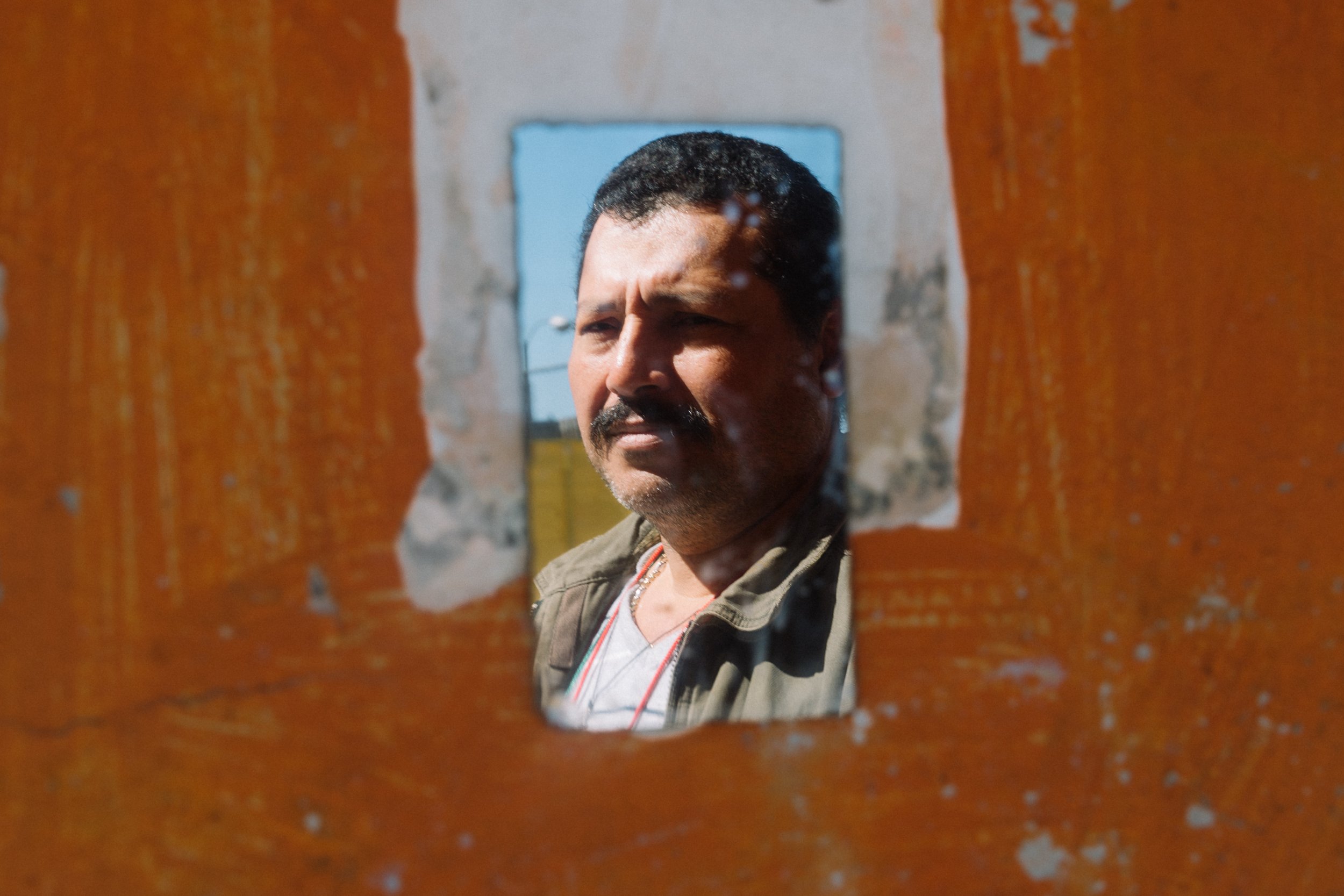
Omar Jarquin from El Salvador is pictured in Tapachula, Chiapas, Mexico, searching for his son David Alexander Jarquin Pineda, who disappeared two years ago in Reynosa before attempting to cross into Texas. Omar remembers David's last words to him: "I'll call you in five days when I cross over." Sadly, those five days turned into two years of silence and uncertainty for the grieving father, who continues to search for his missing son with the support of the caravan of mothers.
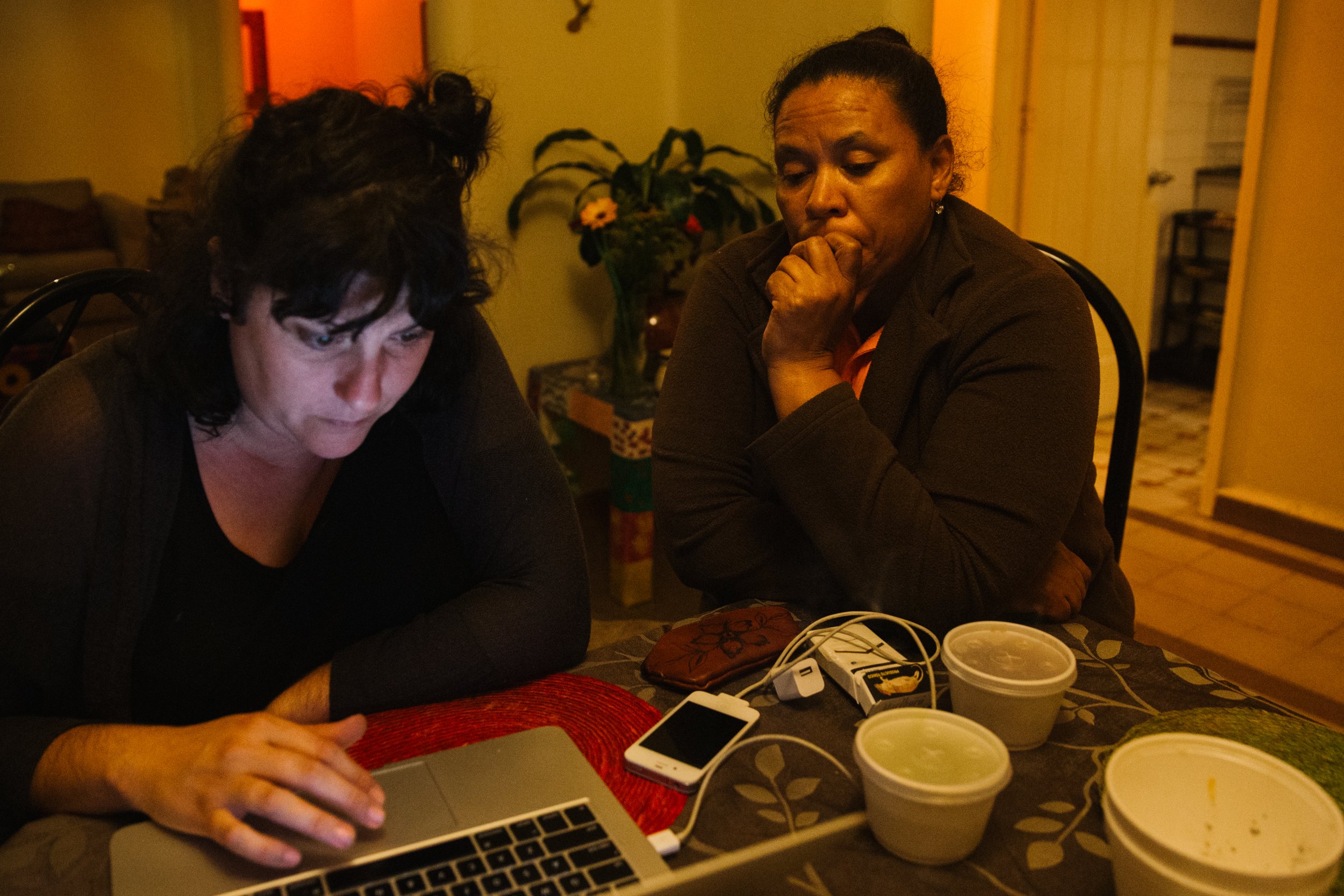
(Right) Nohemy Yamileth Alvarez reflects on her impending journey to Nogales, Sonora, Mexico, as she and other mothers break away from the caravan on the first northern expedition made by Movimiento Migrante Mesoamericano. With a heavy heart, Noemi had just concluded her search for her missing son, Gilber Josue Alvarez, on Facebook, leaving her feeling anxious and uncertain about what lies ahead.
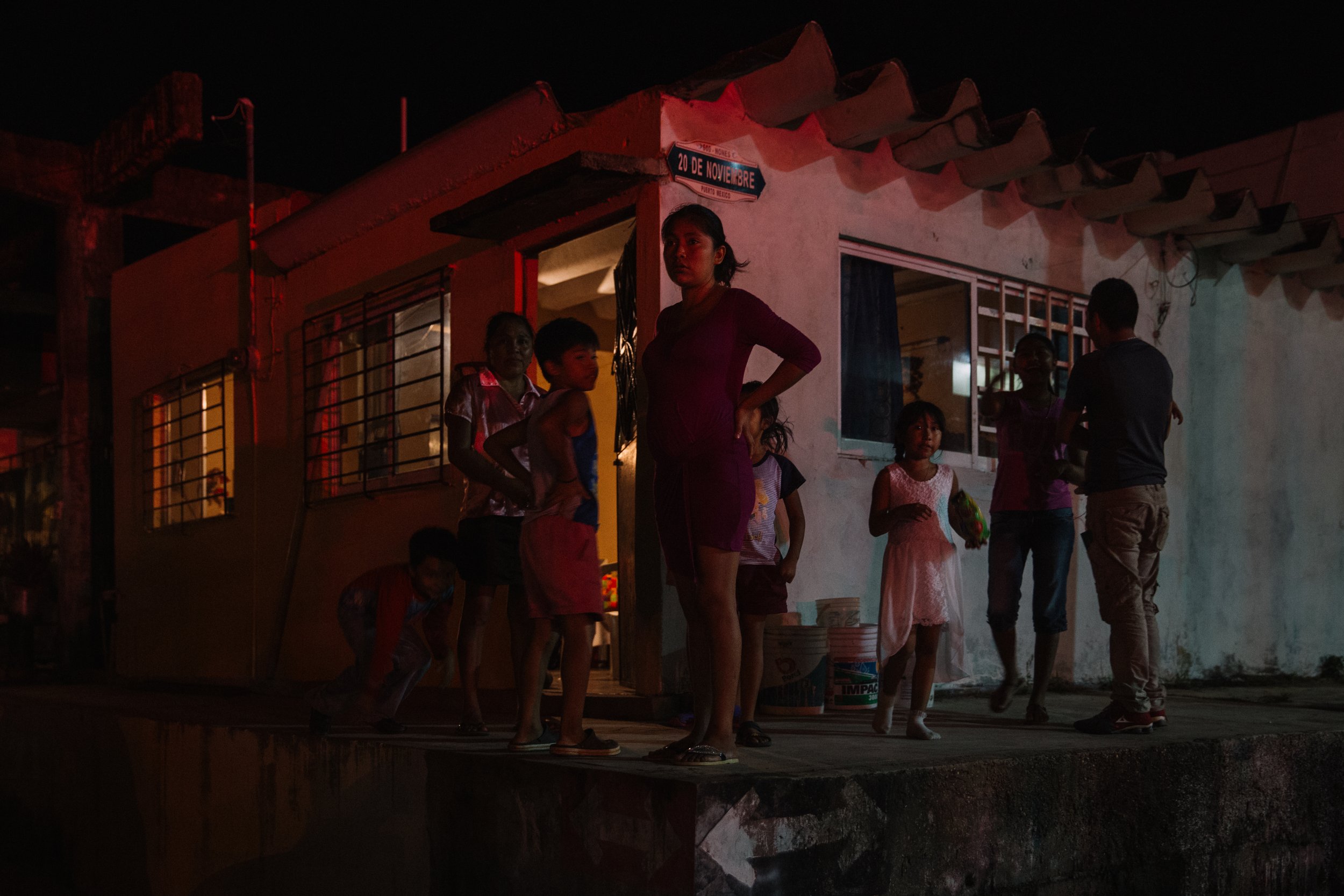
As night falls in Coatzacoalcos, Veracruz on November 18, 2016, a group of mothers take to the streets to call attention to the epidemic of disappearances in Mexico. Neighbors gather to watch and show support for the women, who have been searching for their loved ones for months or even years.
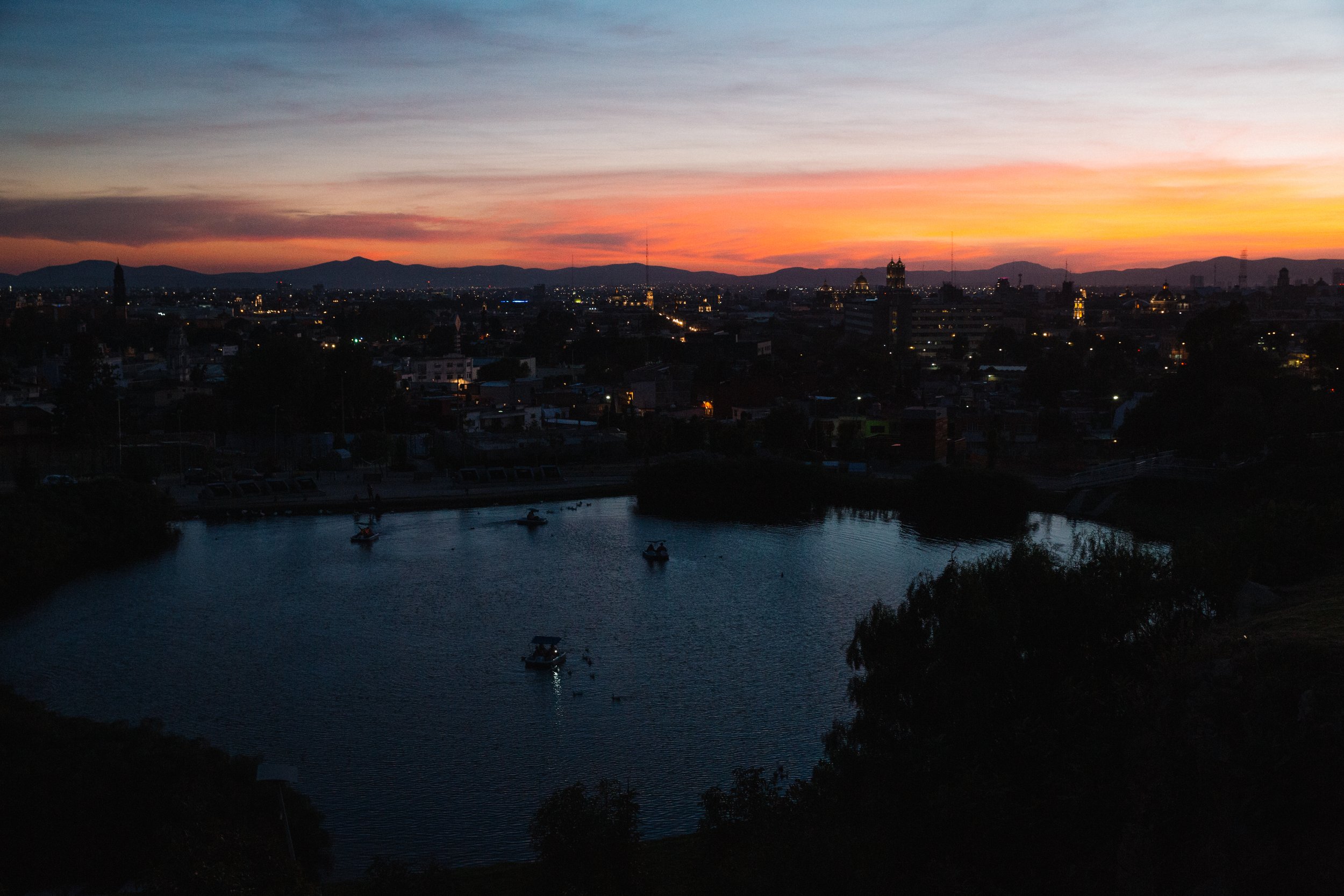
The sun sets on the horizon as the caravan passes through Puebla, Mexico, casting a warm glow on the surrounding landscape and marking the end of another long day on their journey.

Hope and Relief in the Midst of Desperation: Reyna Edubinia Amaya sheds tears of joy as she awaits to reunite with her missing daughter during the Caravana de Madres de Migrantes Desaparecidos journey in Mexico.
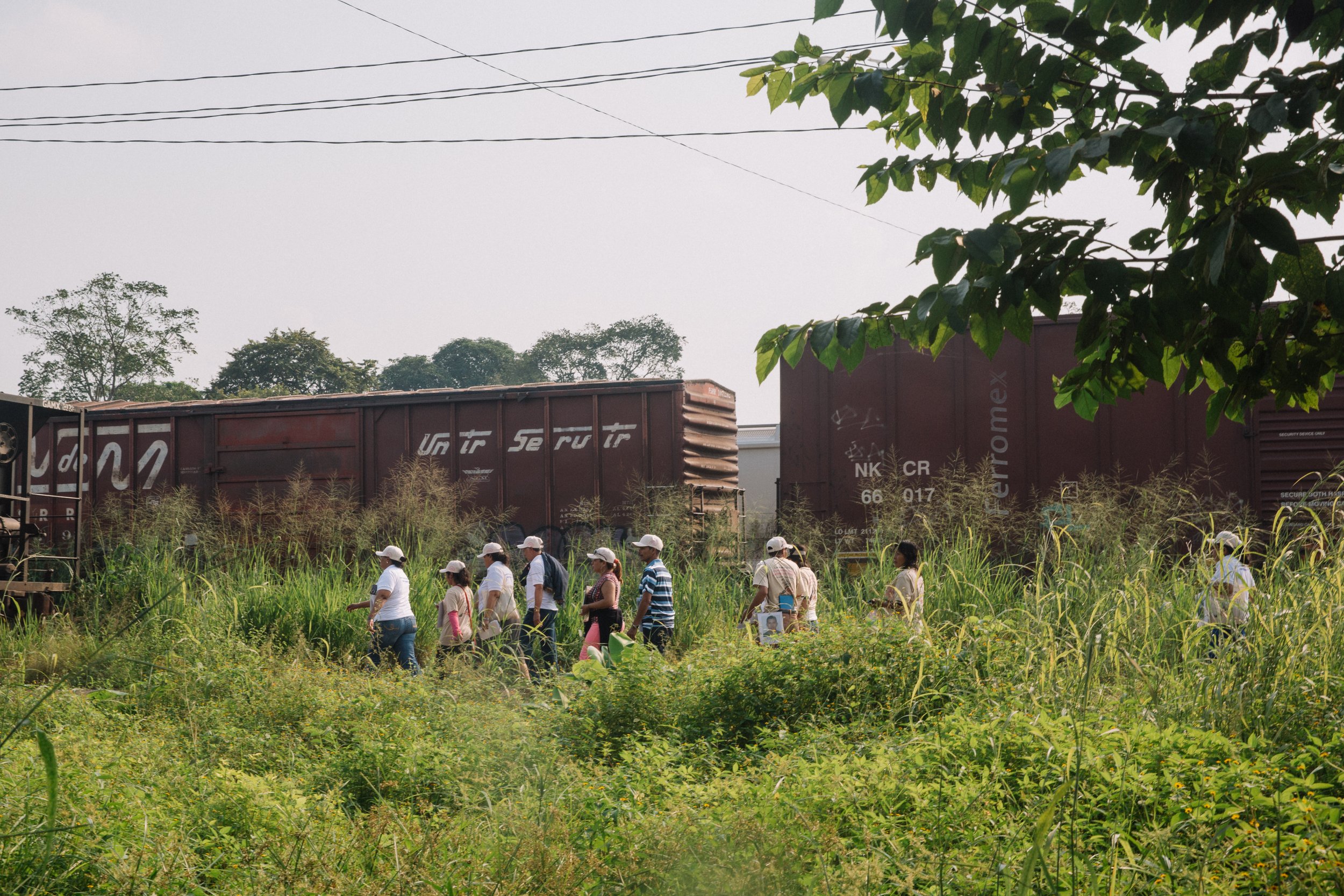
As the mothers journey through Mexico in search of their missing loved ones, the caravan of mothers splits into smaller groups to speak with people in neighborhoods along the train tracks that frequently carry migrants through the country in Villa Estación Chontalpa in Tabasco, Mexico.
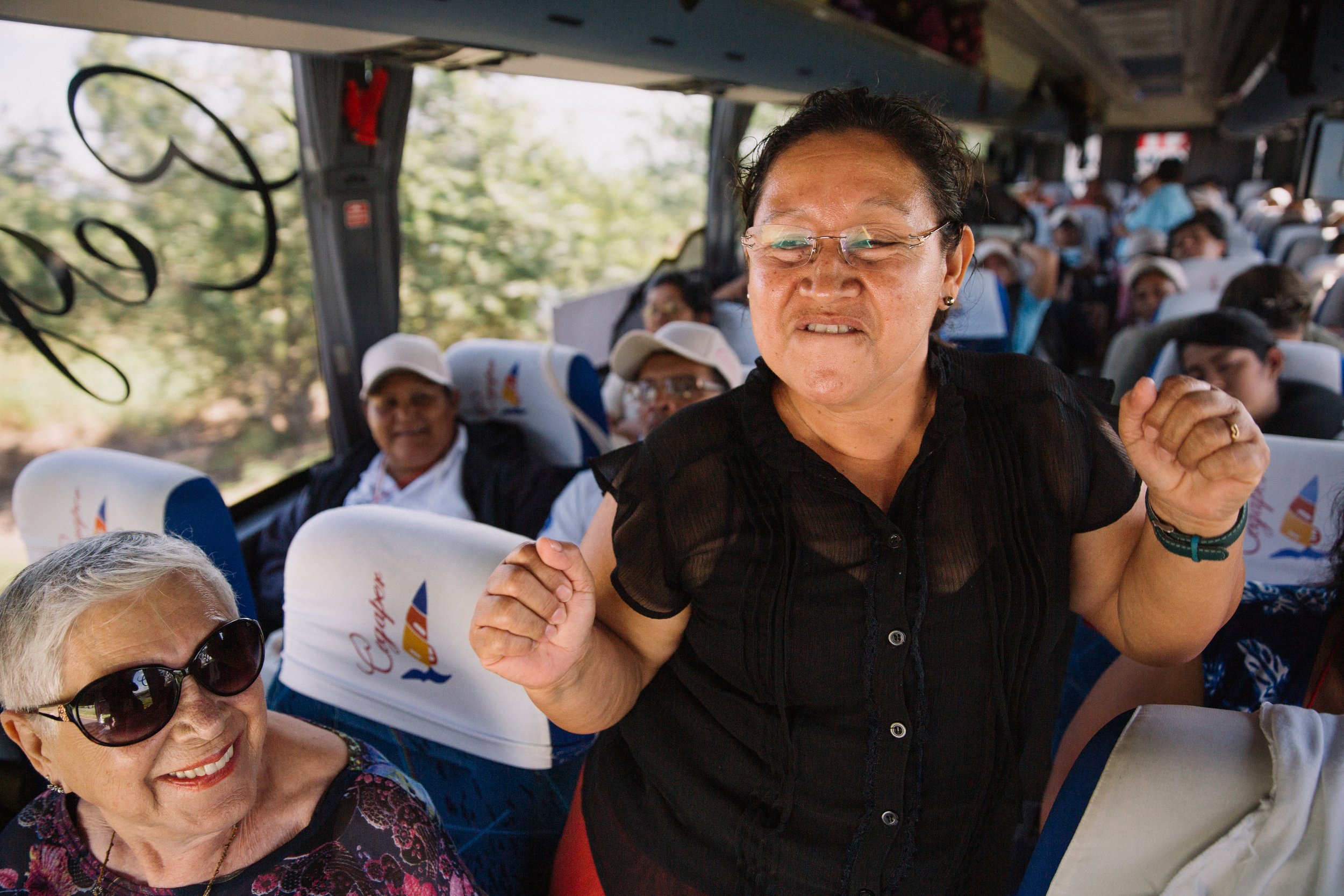
Anita Celaya from El Salvador finds a moment of joy amidst the heart-wrenching search for her missing loved one, as she dances aboard a caravan with other mothers, fathers, and relatives in Coatzacoalcos, Veracruz, Mexico. Despite the uncertainty of their search, Anita's spirit remains unbroken.
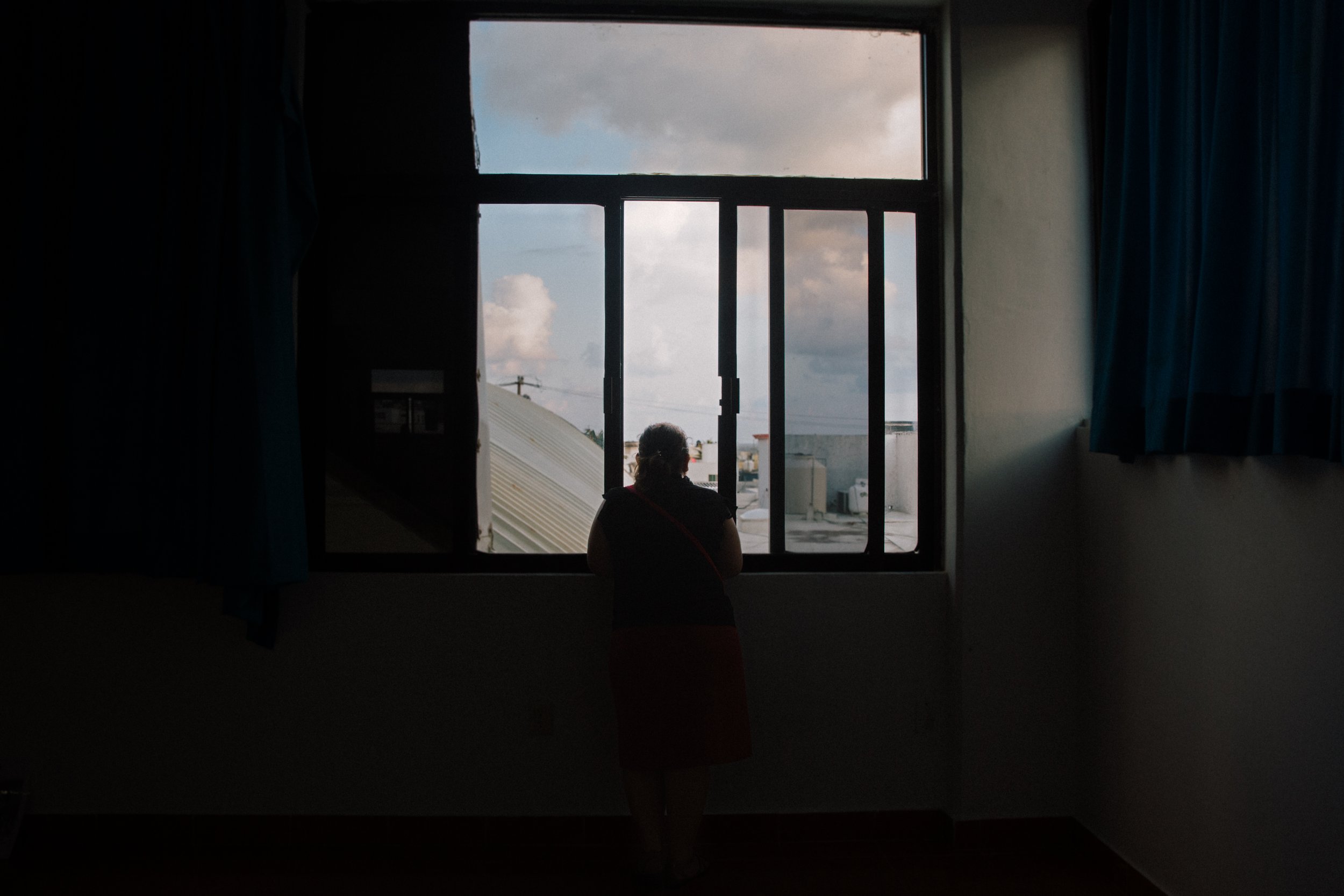
Anita Celaya, a member of the Caravana de Madres de Migrantes Desaparecidos from El Salvador, takes a moment to herself to watch the sunrise over the shore in Coatzacoalcos, Veracruz, Mexico.
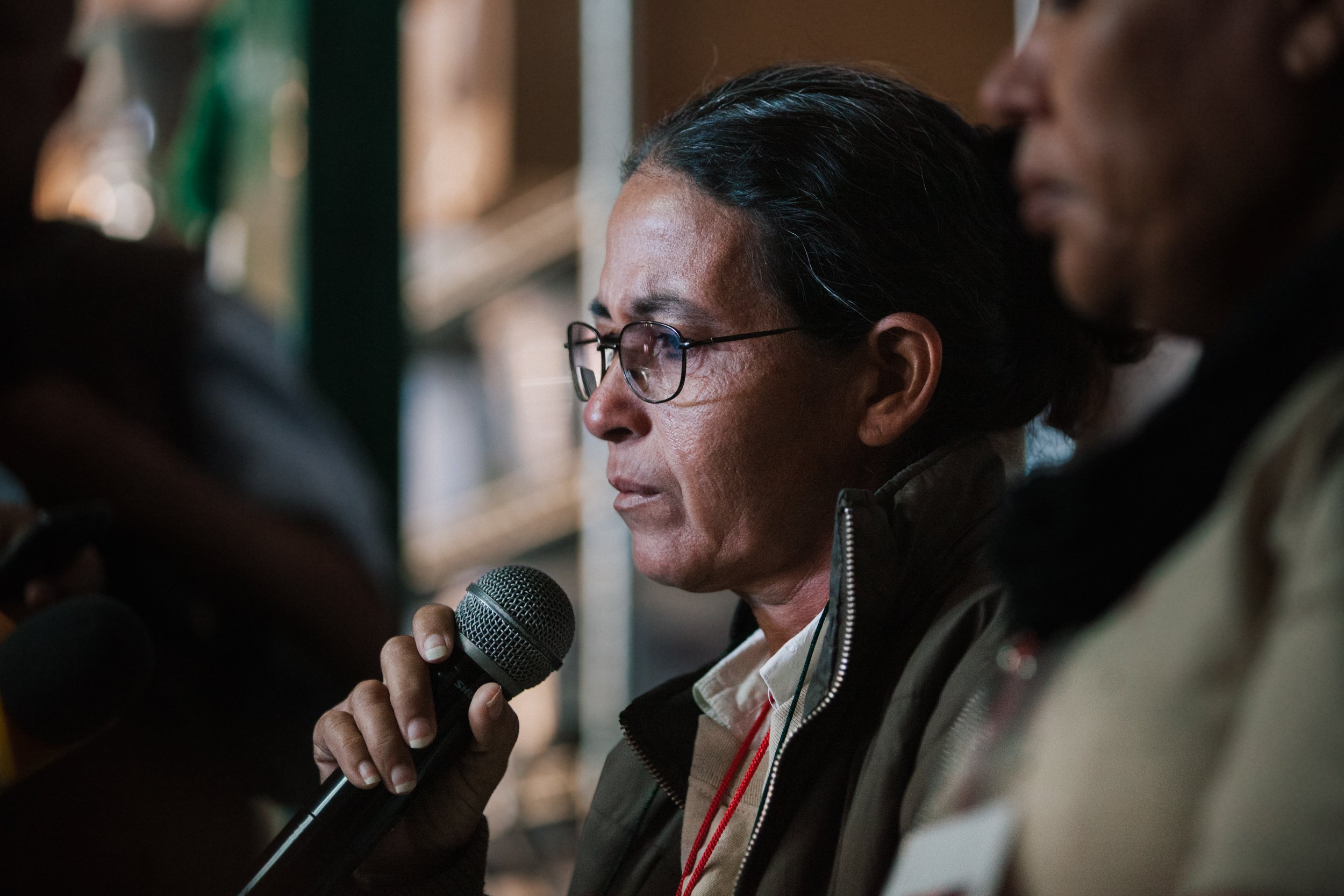
Liliam Morales, a mother searching for her missing daughter, speaks passionately during a press conference in Nogales, Sonora, Mexico. She and the other mothers demand justice from the Mexican government and plead for any information regarding their disappeared family members.
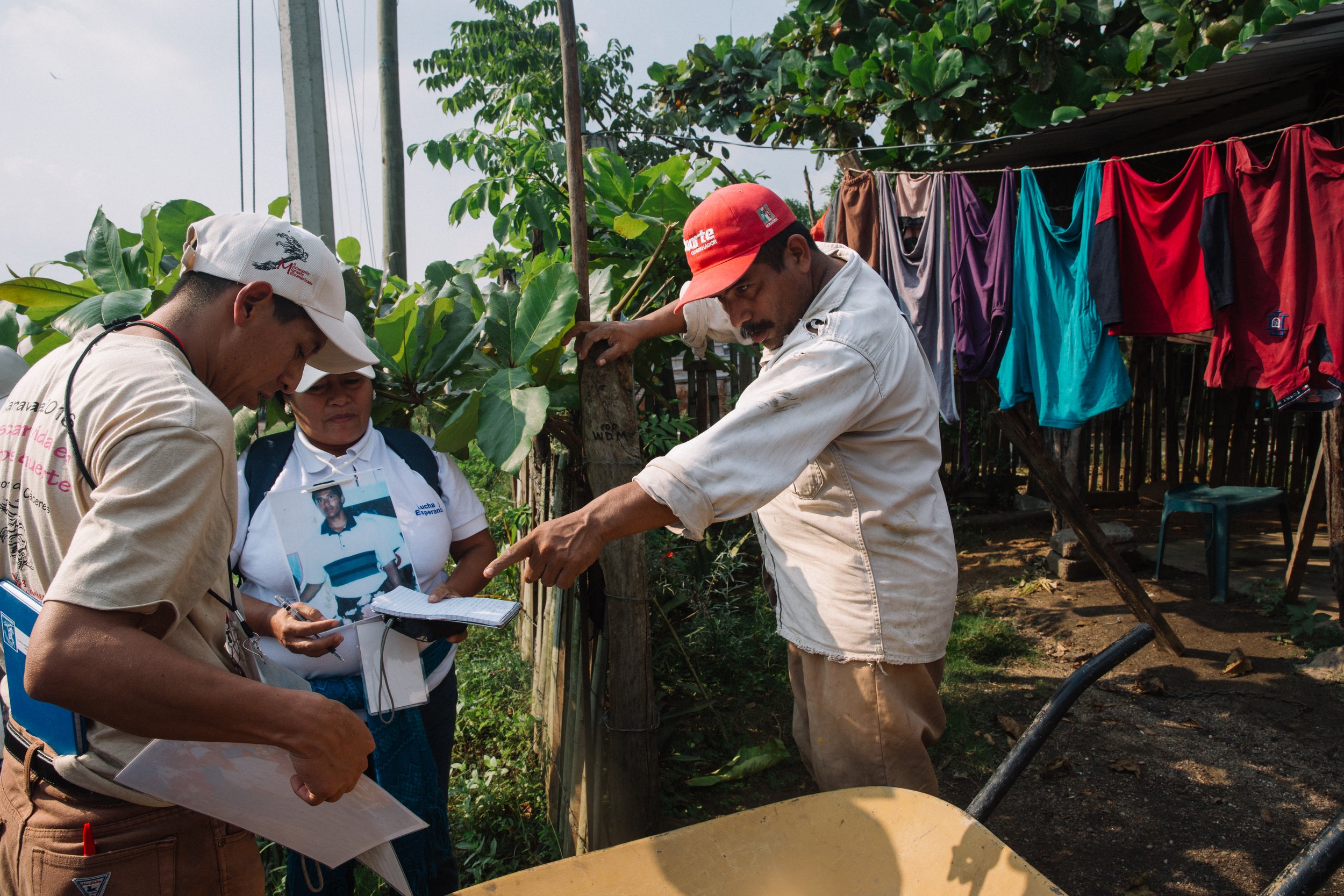
A man in Villa Estación Chontalpa, Huimanguillo, Tabasco, Mexico, recognizes the person on a photo shared by the Caravana de Madres de Migrantes Desaparecidos after they knocked door-to-door in the neighborhood next to train tracks frequently used by migrants passing through the country.
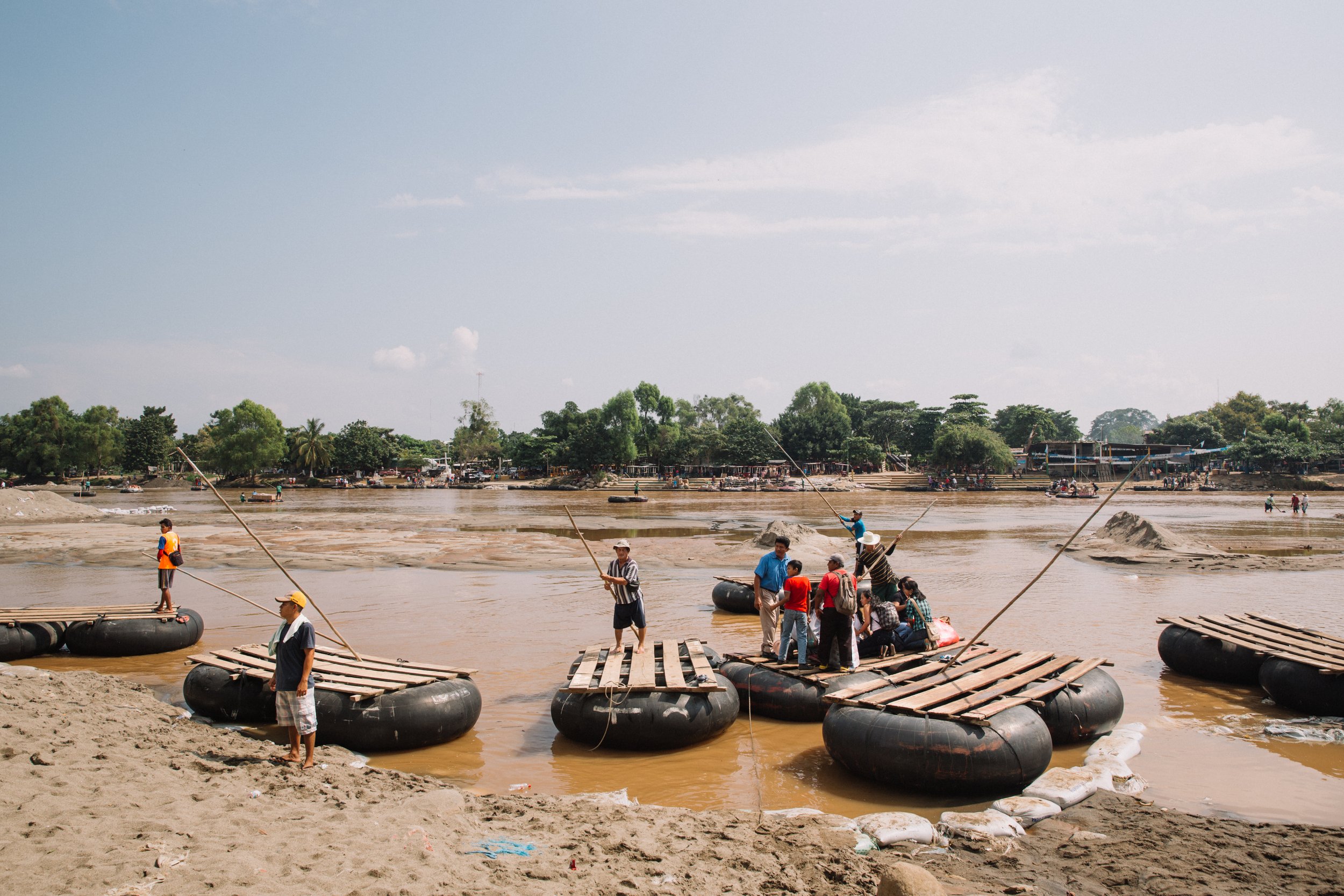
Amid the bustling border town of Ciudad Hidalgo, Chiapas, Mexico, merchants work tirelessly to transport goods between Mexico and Guatemala. Their daily commute is a vital lifeline for both countries, as the exchange of commerce helps to sustain local economies and build bridges between communities.
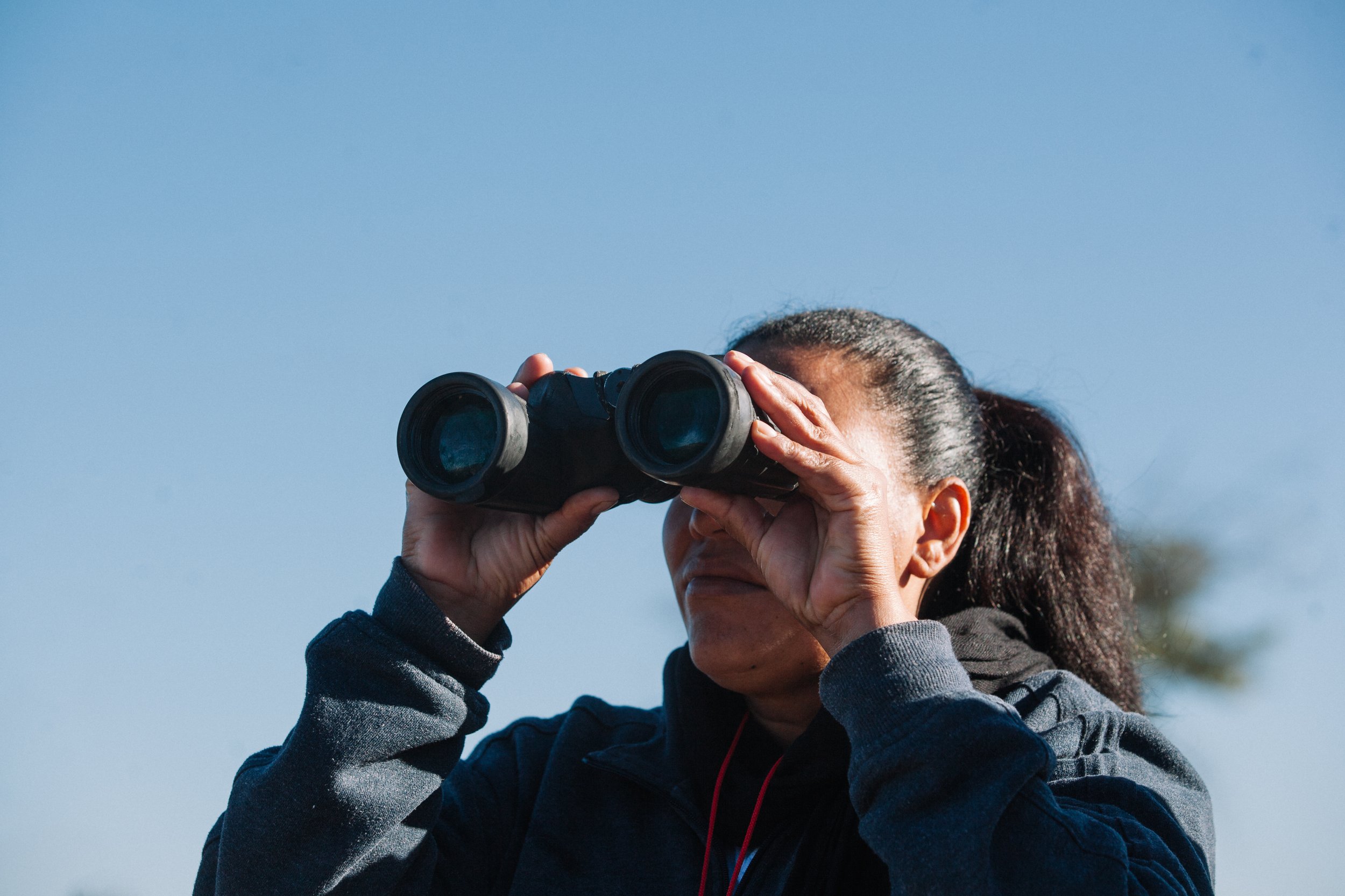
Nohemy Yamileth Alvarez gazes through binoculars, witnessing a group of migrants crossing into Arizona with a mix of emotions - hope and sadness. She wonders if her own missing son had taken a similar path, adding to her empathy for those striving to make a better life for themselves.
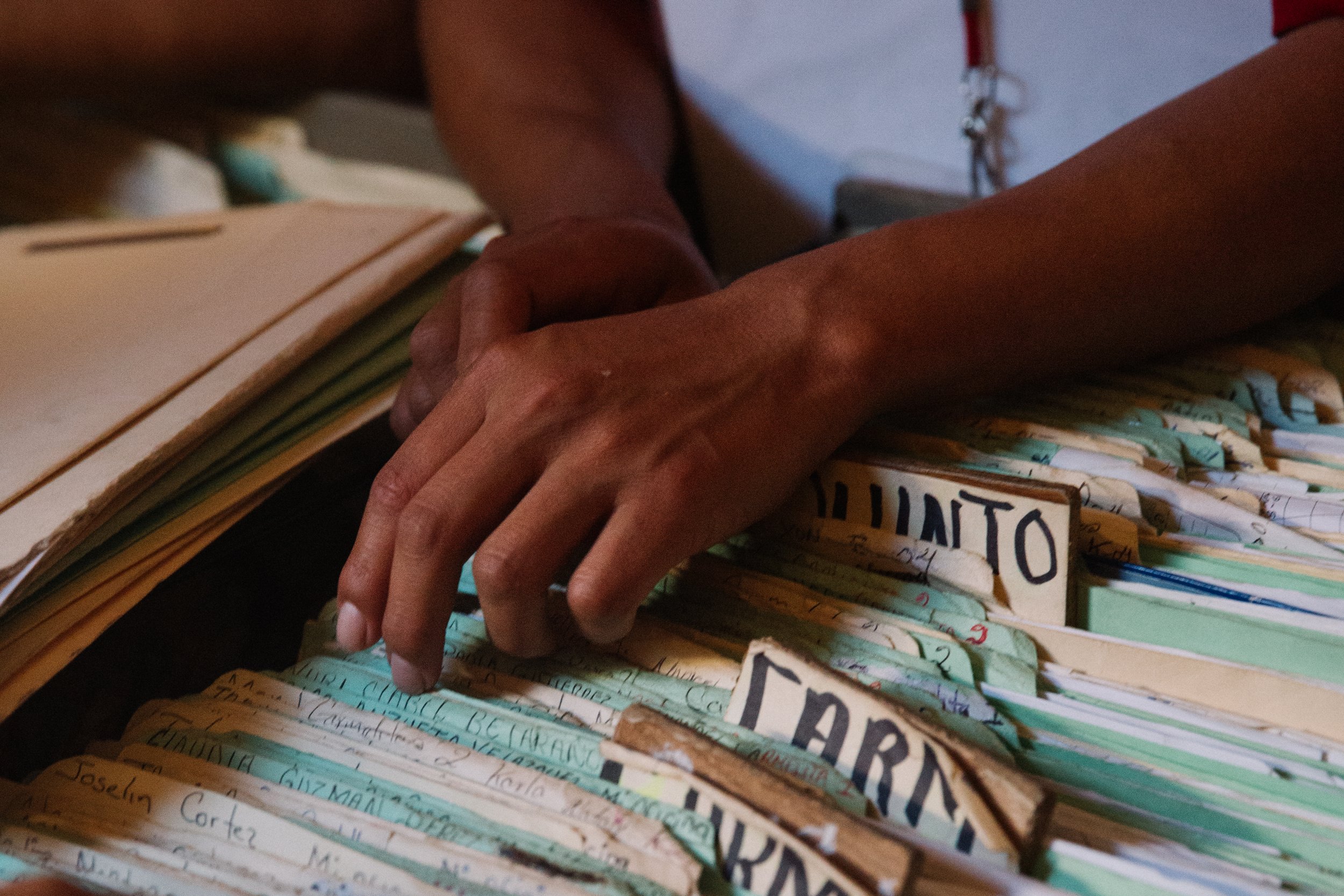
The mothers at Huixtlai's Health Department carefully organize health records of migrant women working in local nightclubs.
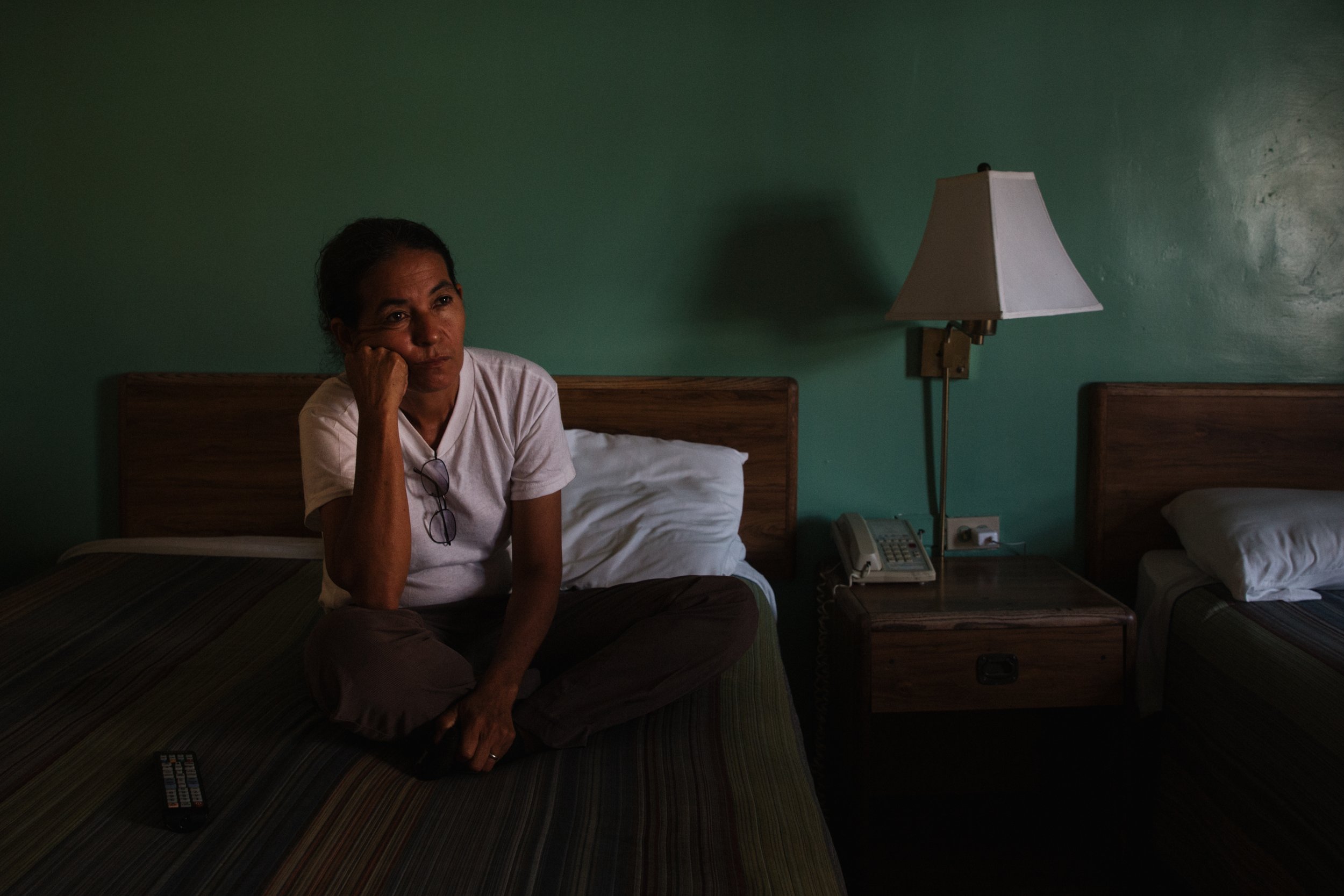
Waiting for Answers: Liliam Morales patiently awaits to provide samples for her DNA test in her hotel room in Nogales, Sonora, Mexico on November 21, 2016, hoping to uncover vital information about her identity and reconnect with missing daughter.
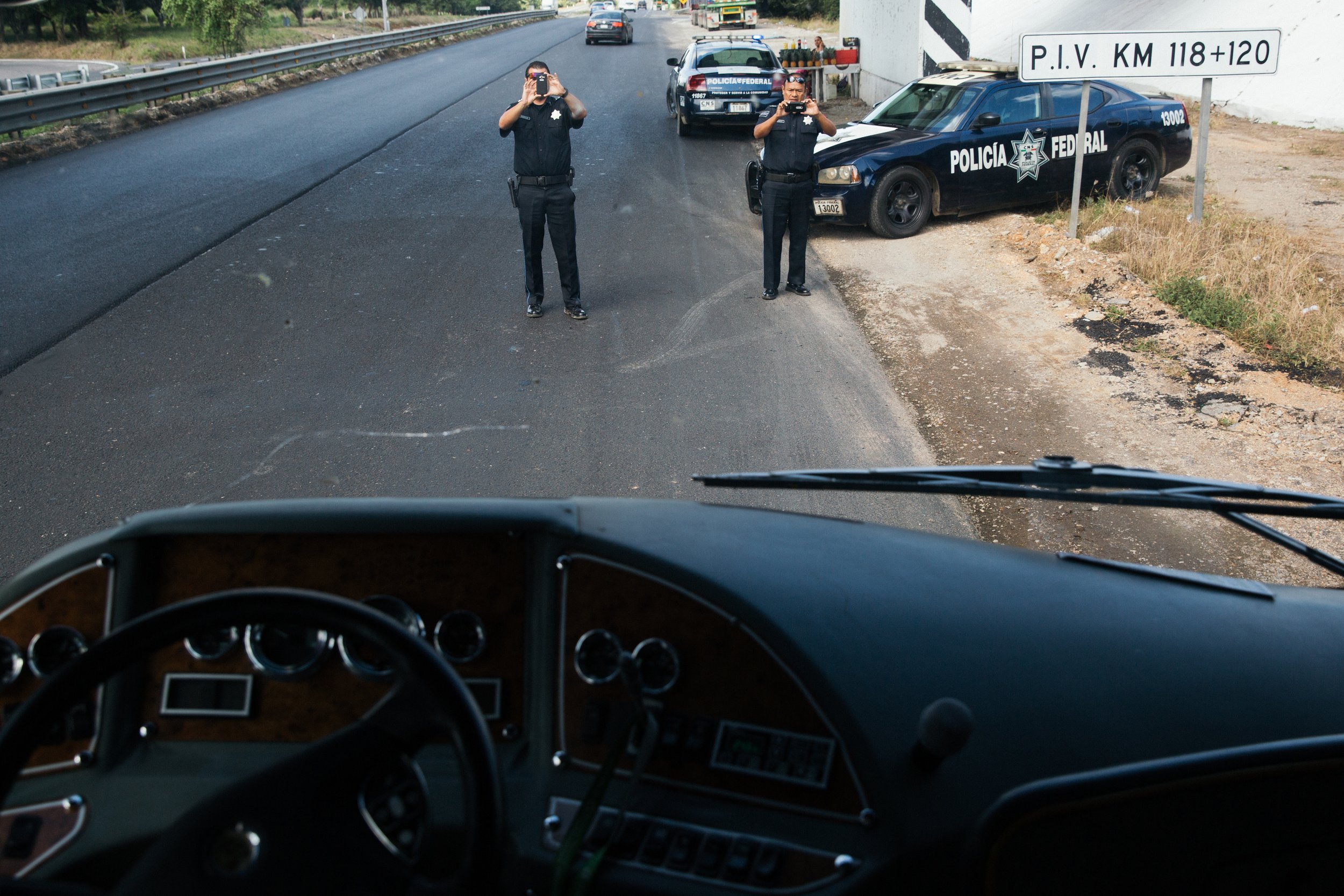
Police officers stop to photograph the caravan. The presence of the caravan of mothers is a powerful reminder of the ongoing search for justice and answers for the missing. As they travel through different cities, their visibility brings awareness to their cause and highlights the urgent need for action.
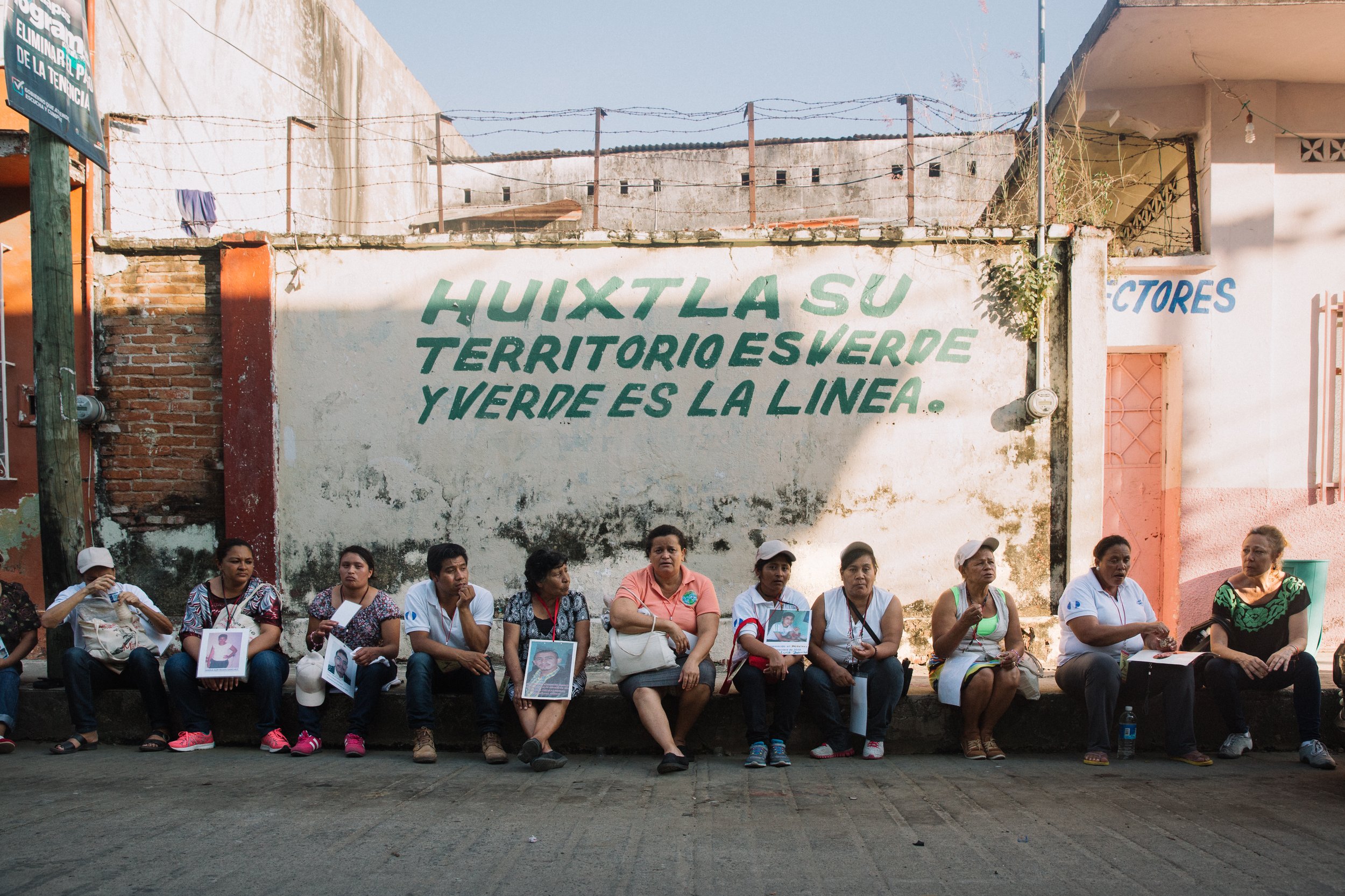
Exhausted from their long journey and the difficult climate, the mothers take a much-needed break as they await their meeting with the Dirección Municipal de Salud de Huixtla in Chiapas, Mexico. Despite their tireless efforts, they are often left waiting for hours before someone can meet with them, a frustrating reminder of the challenges and obstacles they face in their search for justice and answers for their missing loved ones.
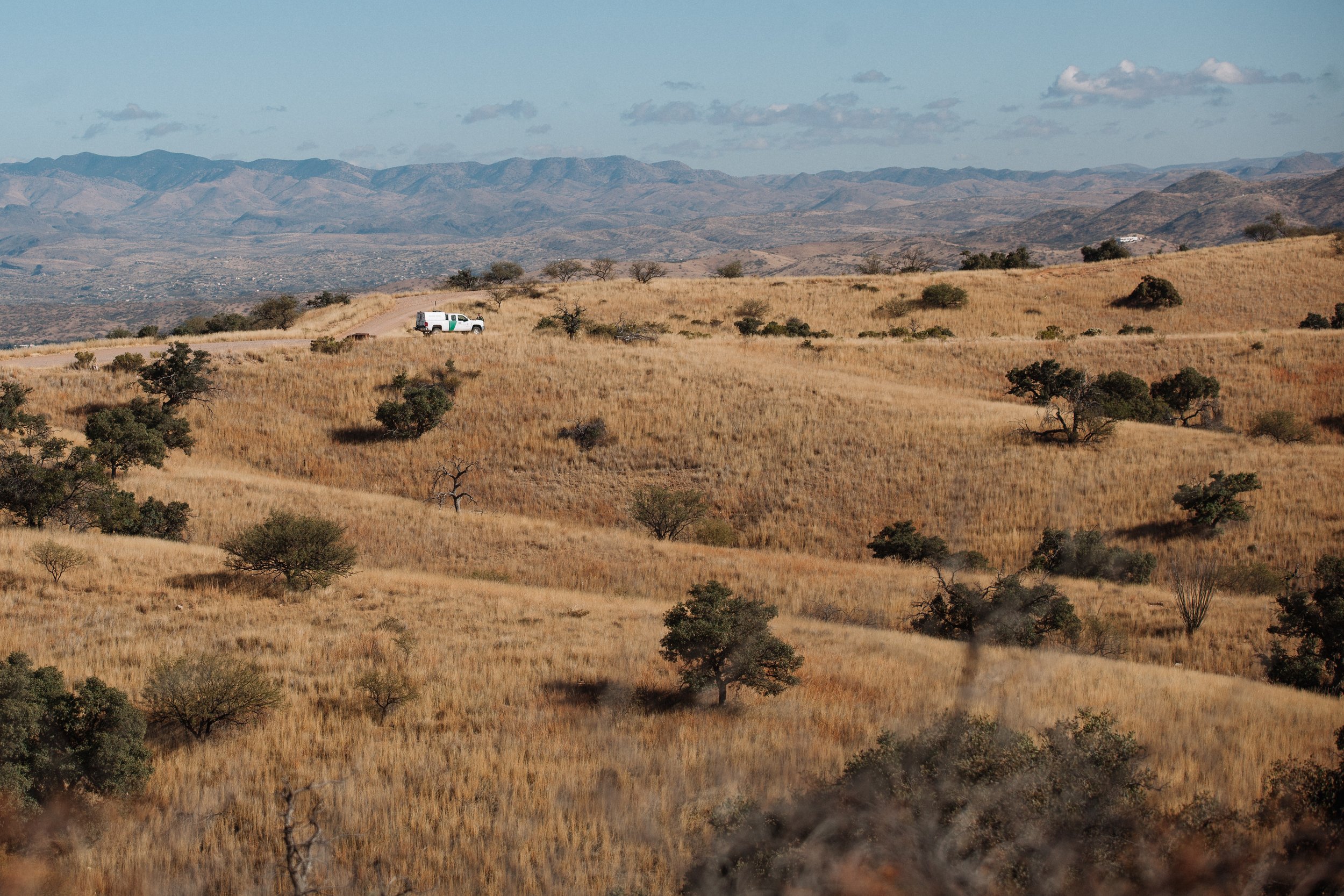
"Beyond the Horizon: The Arizona Border Looms in the Distance, Serving as a Symbol of Hope and Desperation for Migrants Seeking to Enter the United States. For those on the journey, the distant border represents the potential for a new life, but also the immense challenges and risks they must face to reach it.
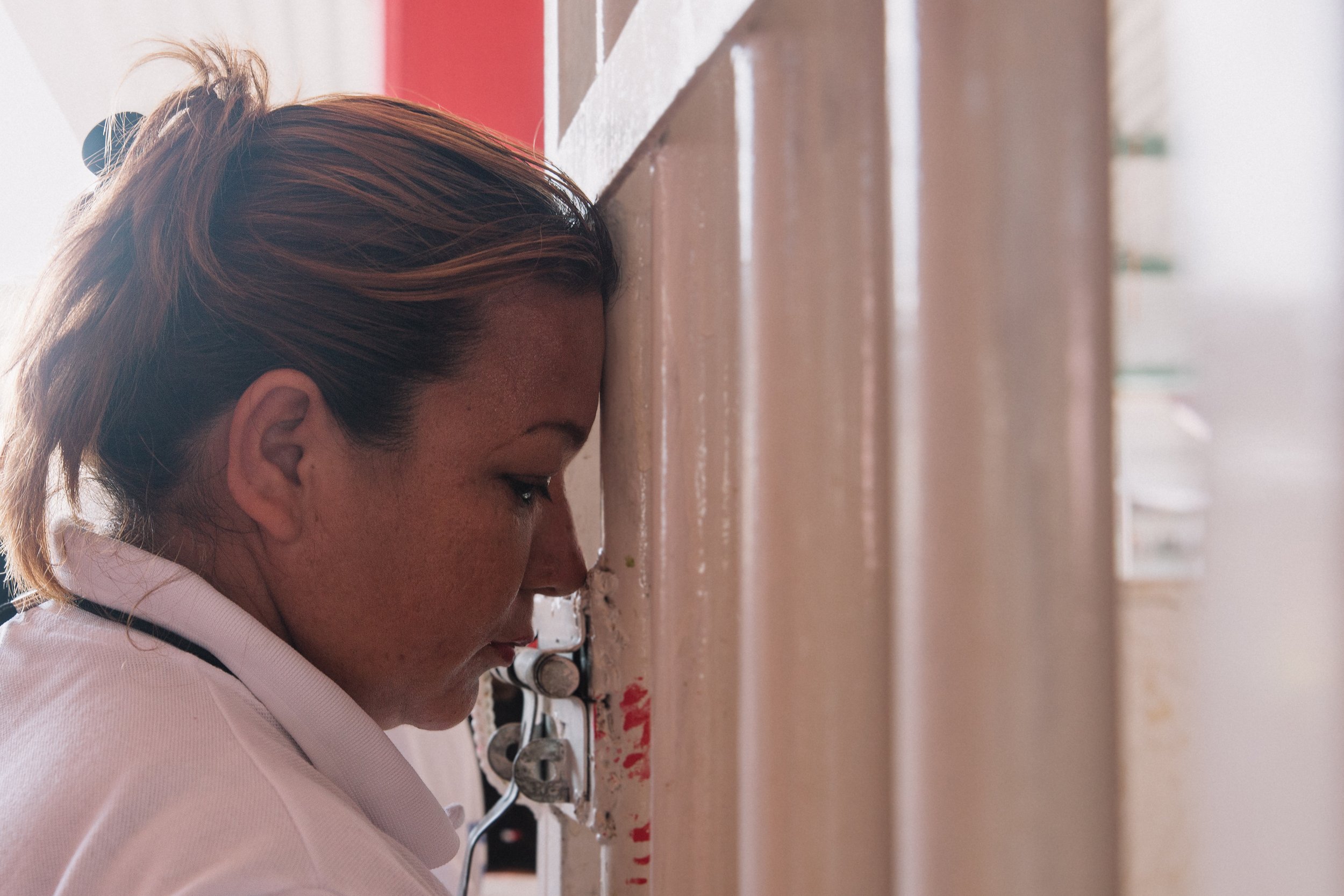
Oneyda Isabel Rodríguez's search for her missing mother Reyna has taken her to a jail in Tapachula, Chiapas, Mexico. As she speaks with female inmates, she can't help but wonder if her mother may have met the same fate as some of these women. Despite her own pain and uncertainty, Oneyda is determined to offer a listening ear and a glimmer of hope to those who are incarcerated.
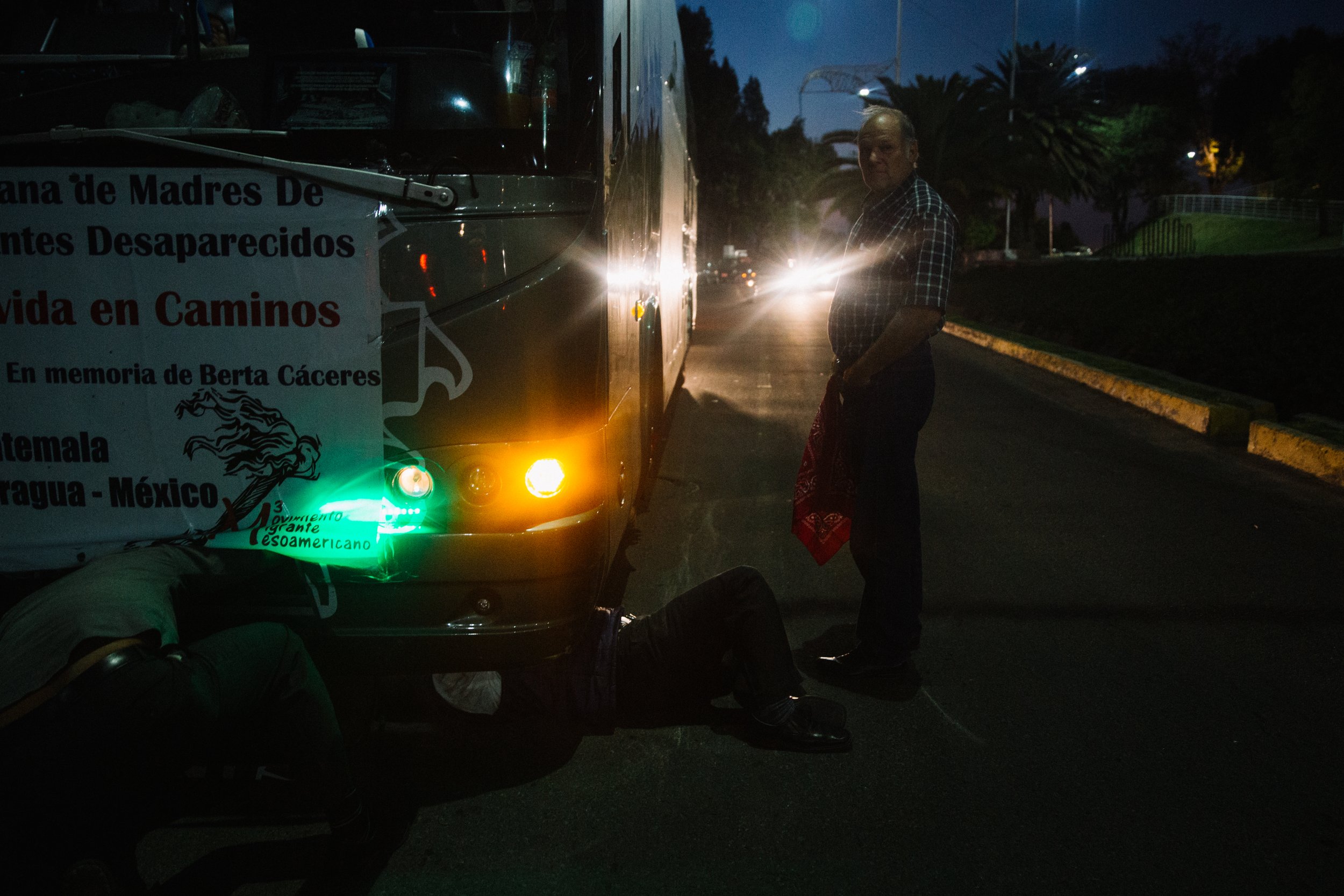
Due to the length of the journey and the wear and tear on the vehicles, mechanical issues are a common occurrence along the route of the caravan. The organizers and participants work together to fix the vehicles as quickly as possible in order to keep the journey moving forward.
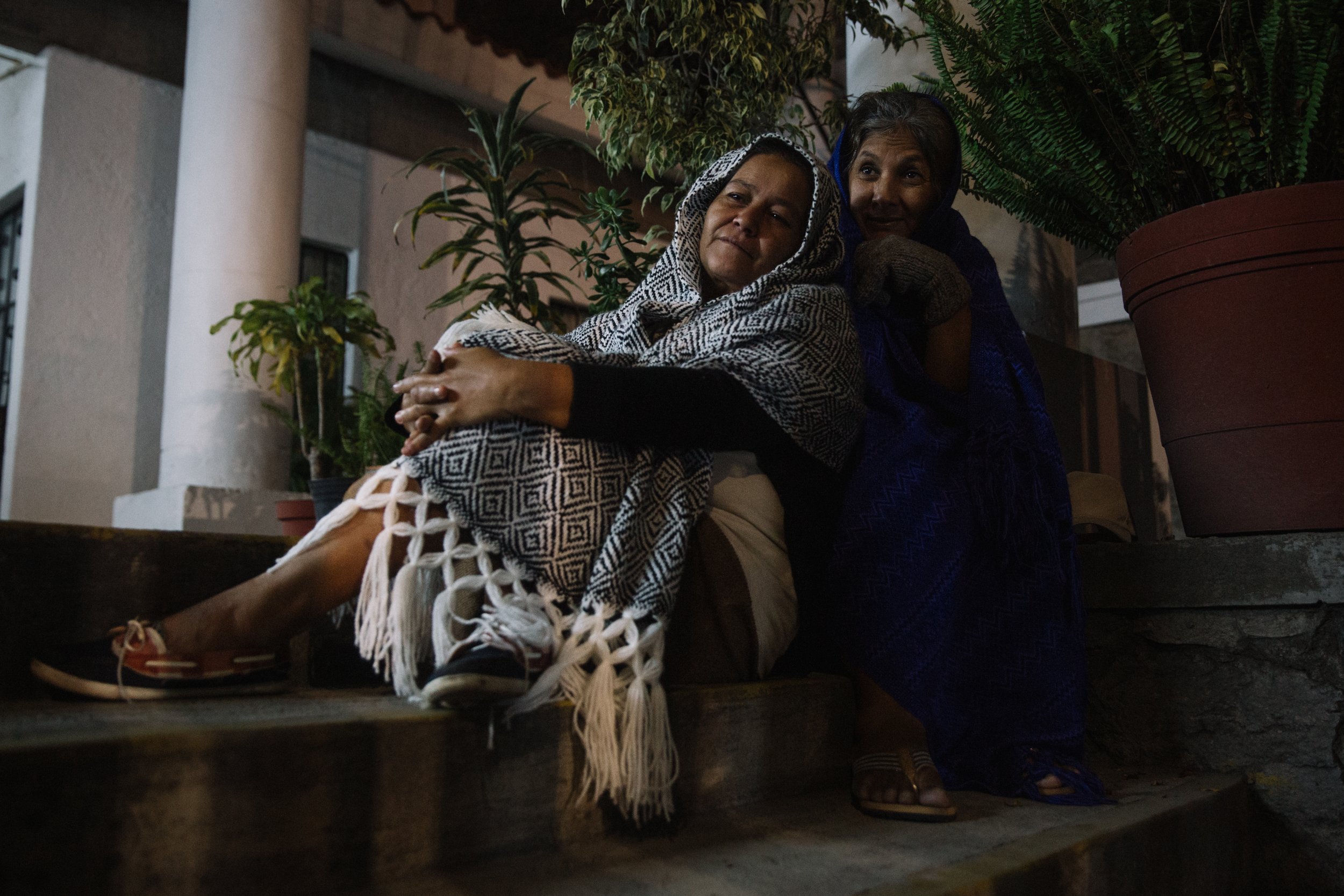
Skipping mass, Guadalupe Mendoza bundles up with another mother at Parroquia Nuestra Señora de la Asuncion in Puebla, Mexico. While the mothers attend special masses in honor of their missing loved ones, they often find solace and friendship in each other's company. The bonds they forge on their journey help to sustain them through the difficult moments and remind them that they are not alone in their struggle for justice and closure.
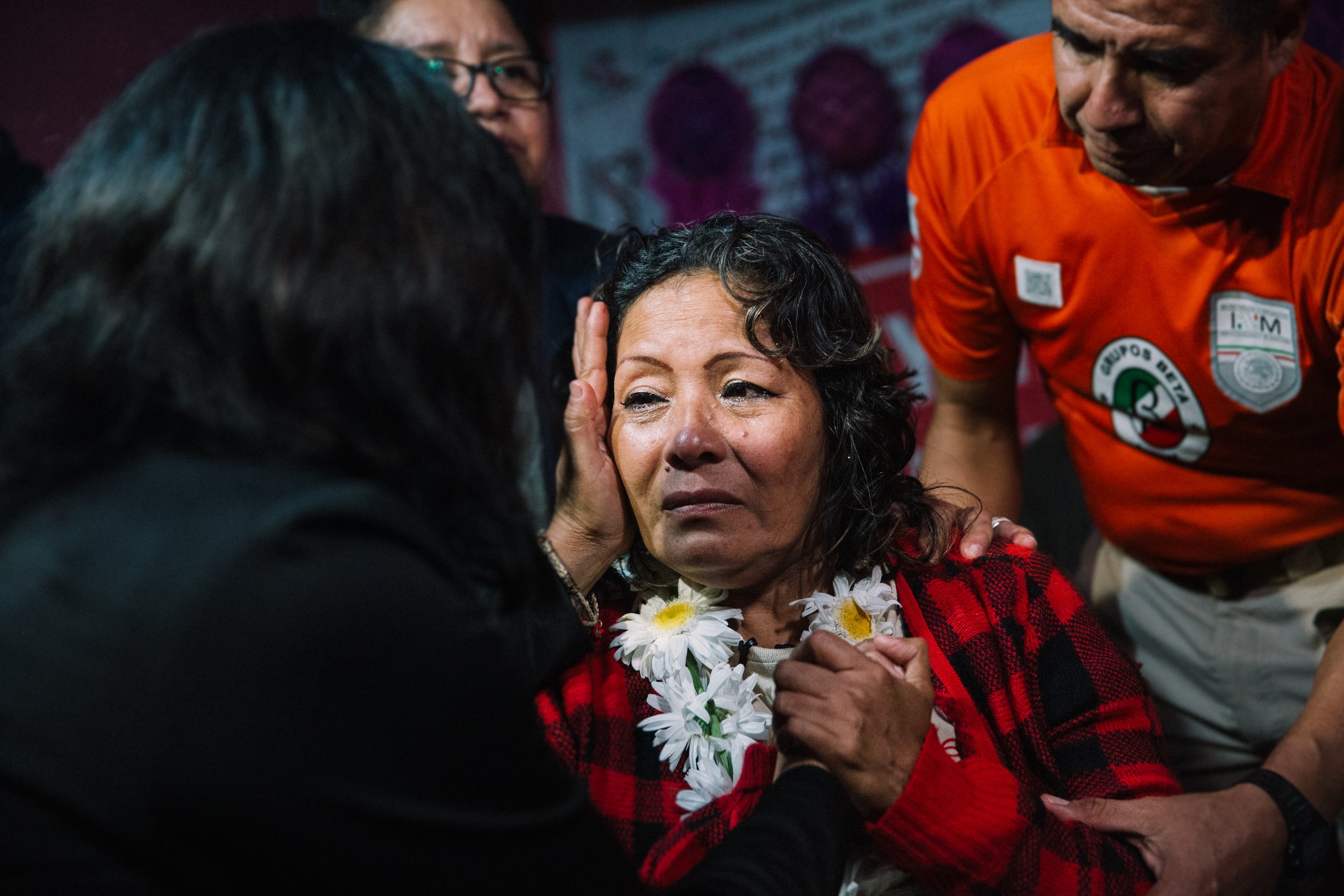
Aida Amalia Rodriguez Ordoñez comforts her sister Norma Janet Rodriguez Ordoñez during an emotional reunion after 37 years of no contact at the immigrant shelter Las Patronas in Veracruz, Mexico. While grateful for their reunion during the caravan trip, their joy is tempered by the fact that their third sister, Reyna, and mother of Oneyda, remains missing.

Nohemy Yamileth Alvarez participates in the difficult and emotional process of providing a DNA sample in her hotel room in Nogales, Sonora, Mexico, as part of the Colibri Center for Human Rights' work to reunite missing migrants with their families. Kat Rodriguez, an intake specialist, guides her through the process with care and compassion.
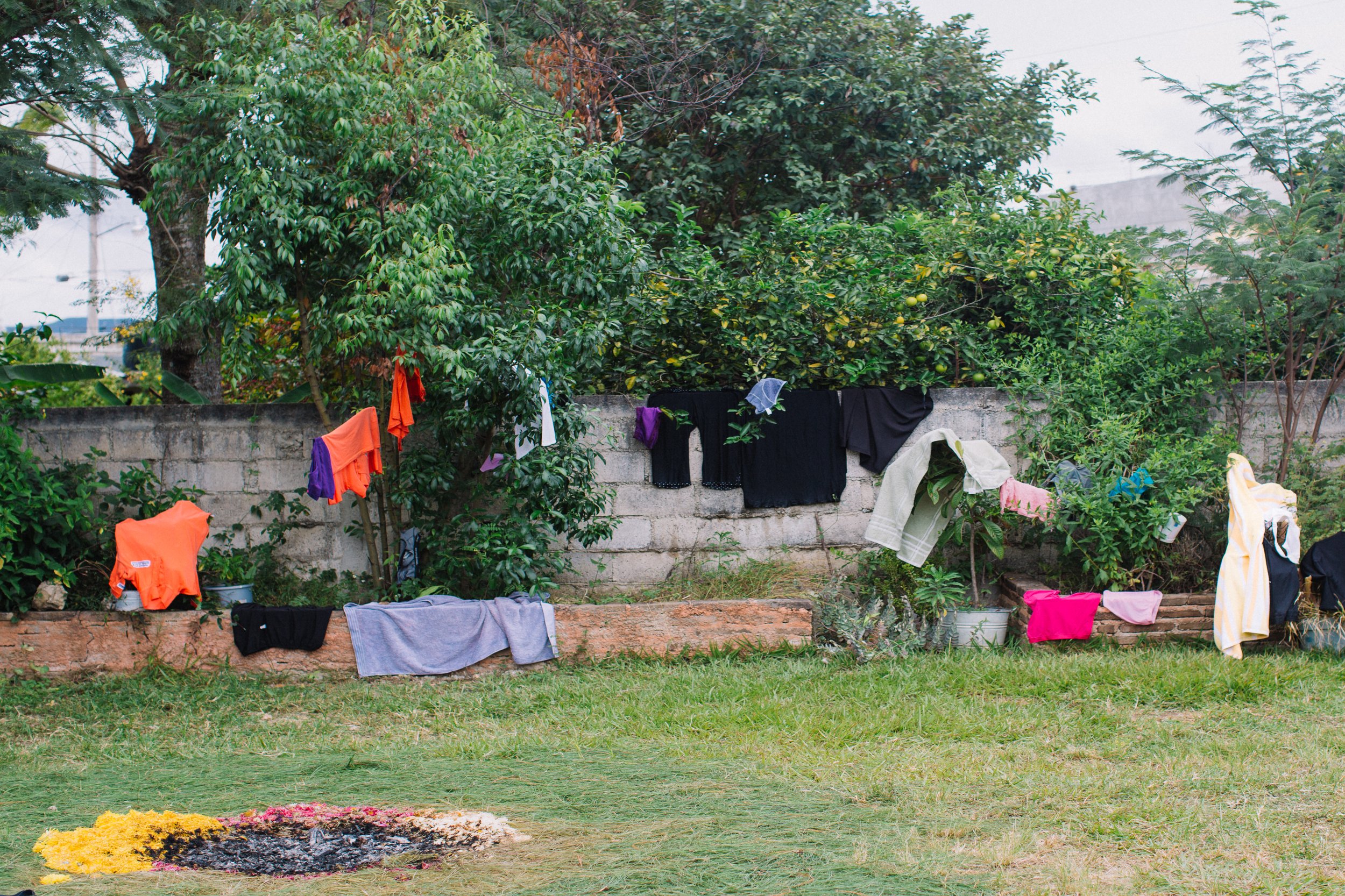
The mothers of the caravan wash and hang their clothes to dry during a rest stop on their journey. With limited space and resources, they must travel light.
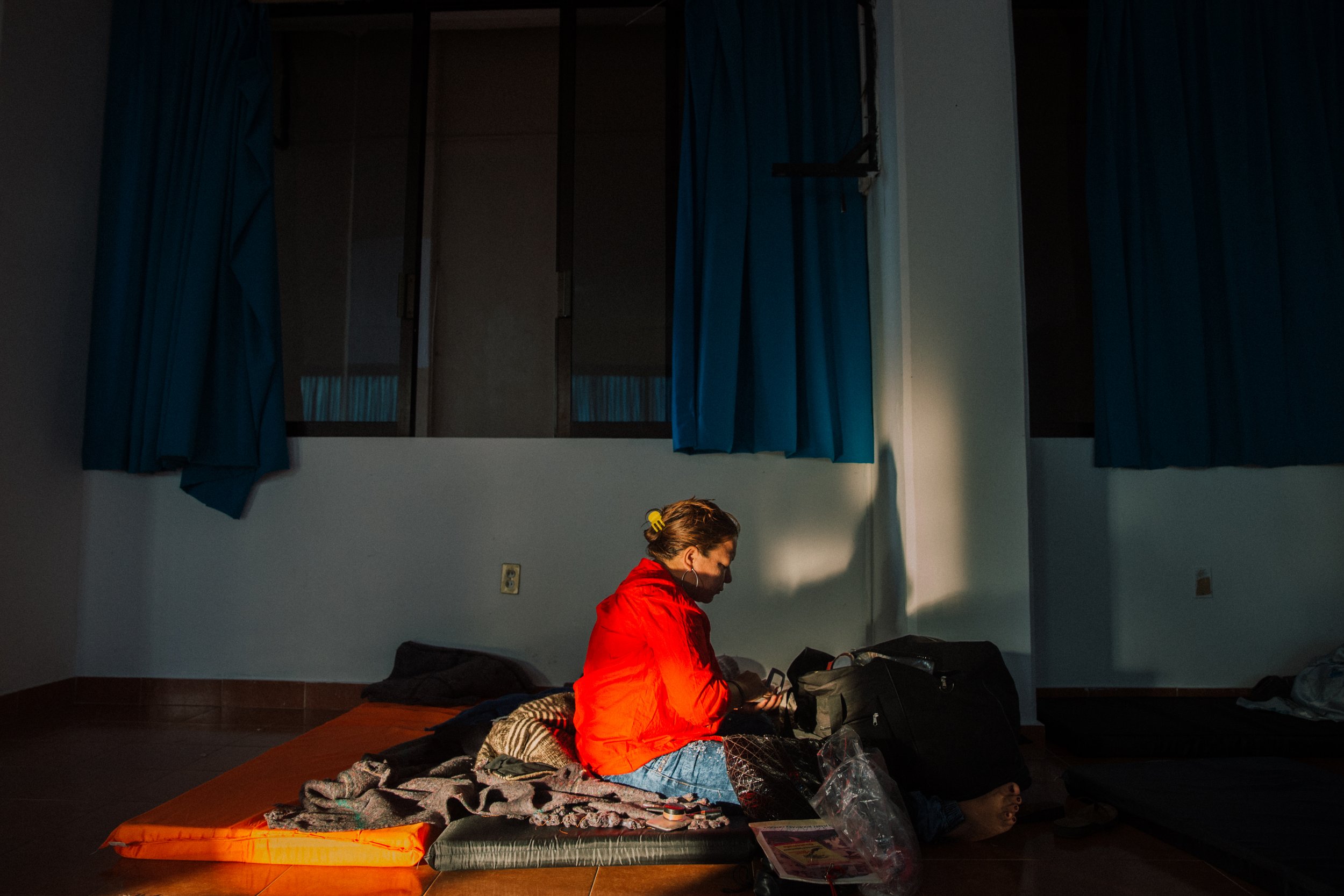
Oneyda Isabel Rodríguez gets ready for the day while sitting on a floor mat in one of the shelters that host the caravan of mothers in Coatzacoalcos, Veracruz, Mexico. Due to limited resources, many of these shelters can only offer basic amenities such as a floor mat to sleep on.
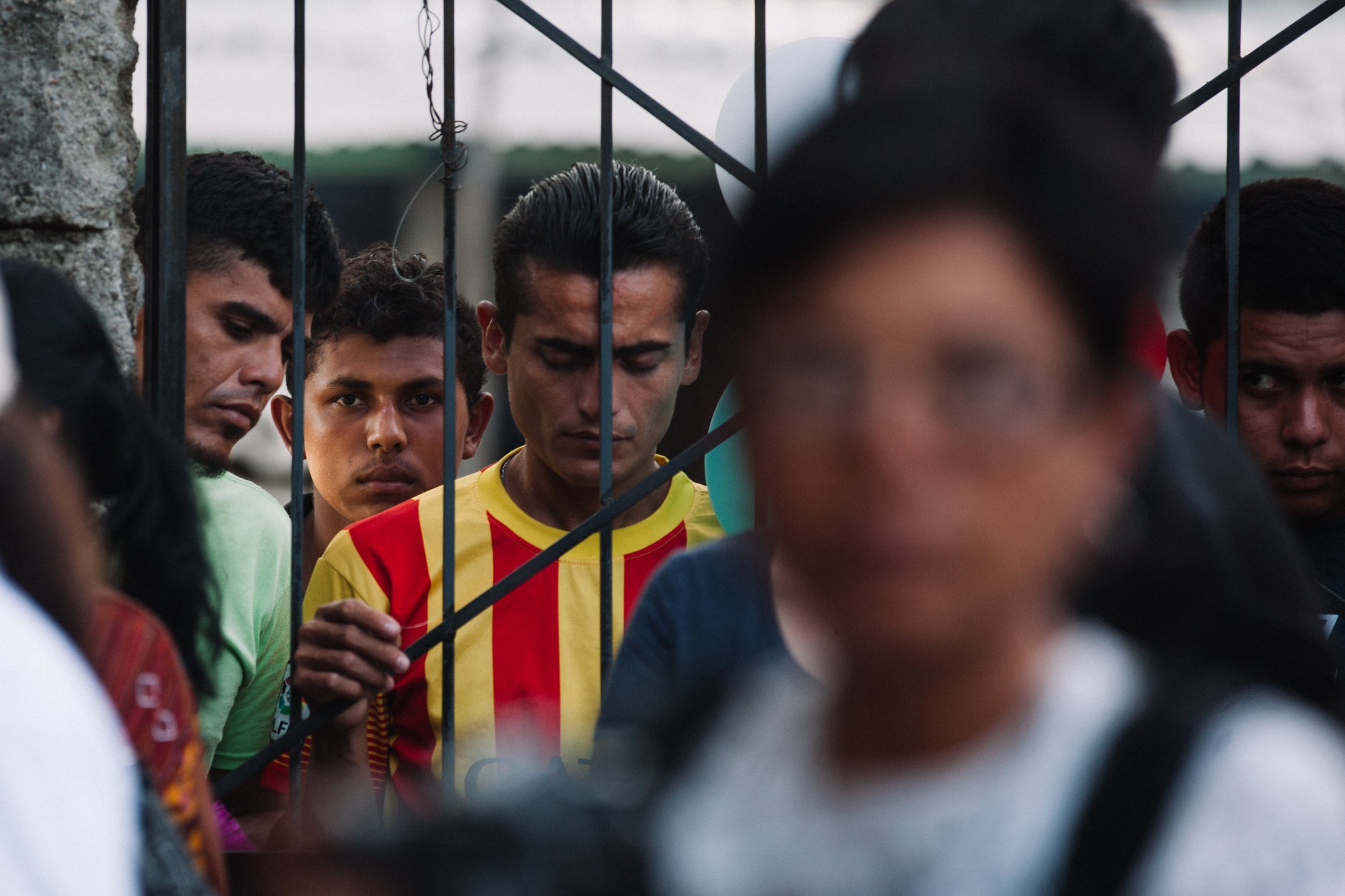
Migrants from Central America gather outside of a shelter in Mexico to listen to the mothers talk about their search for their missing loved ones.
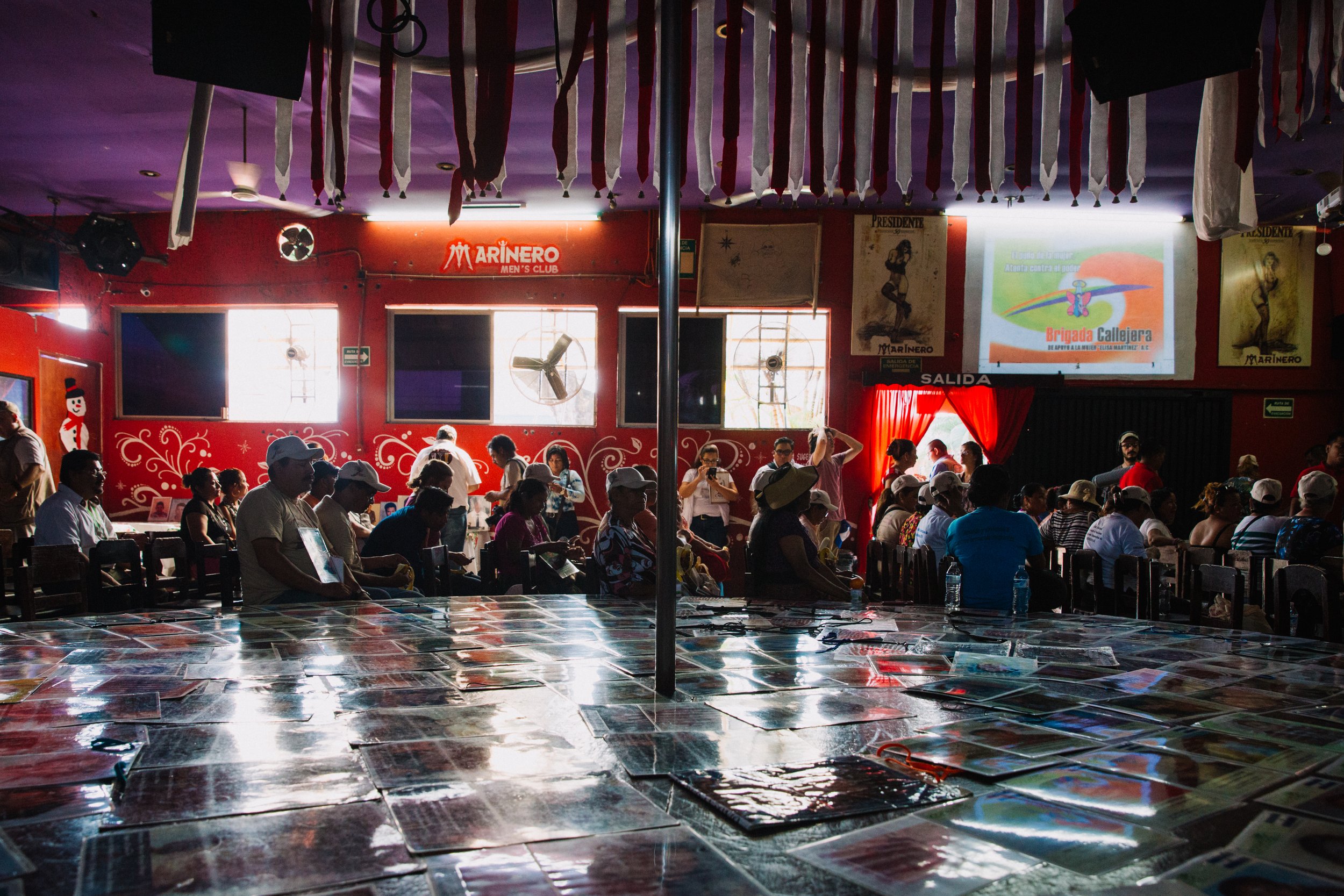
At a popular strip club called El Marinero in Tapachula, Chiapas, Mexico, workers look through photos of their missing loved ones in Tapachula, Chiapas, Mexico. The mothers understand the realities of the migrant journey and the risks that many women face, including the possibility of being trafficked. By spreading awareness and sharing information, they hope someone will recognize the person in their photo.
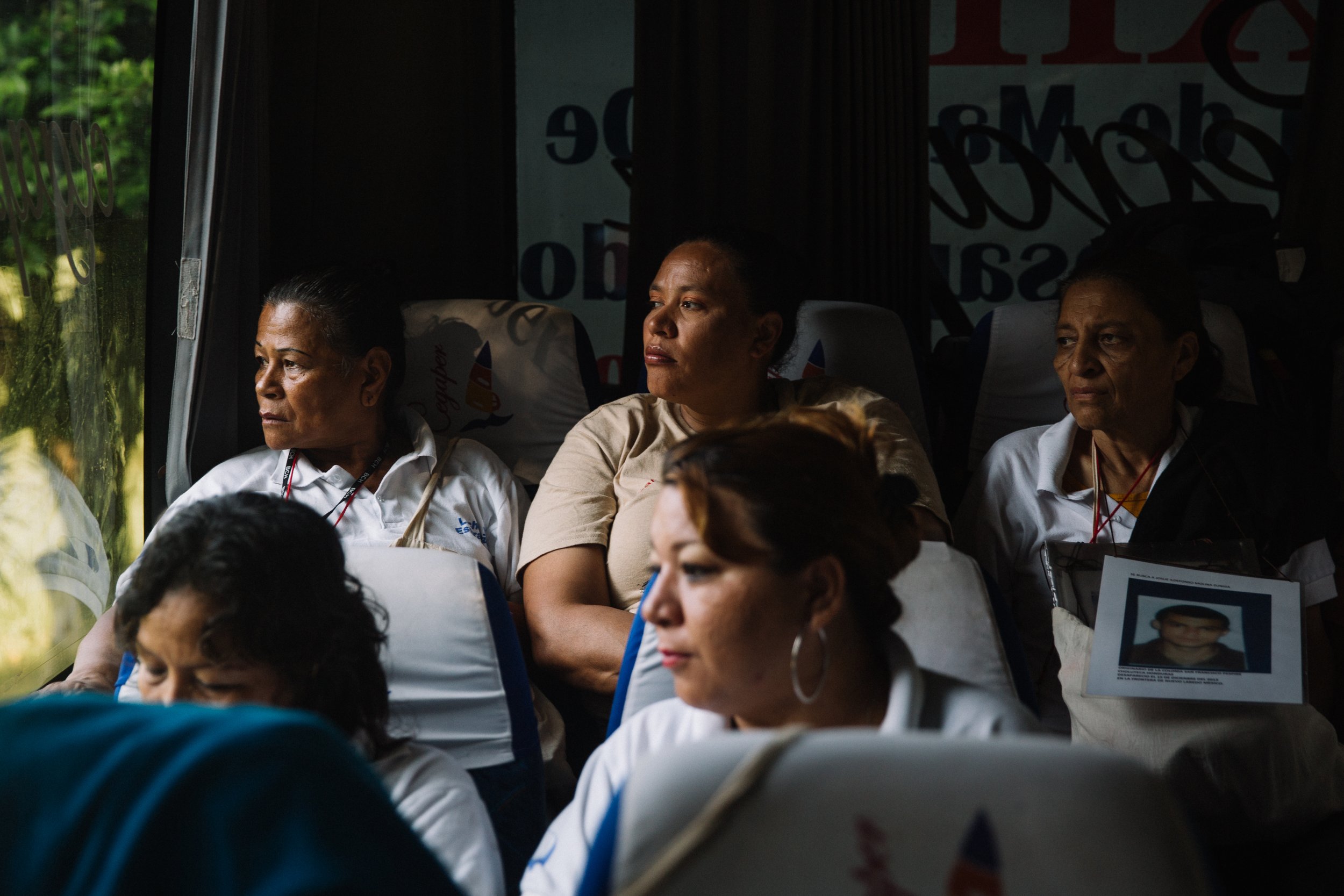
As the days wind down, morale on the caravan takes a hit as many of the mothers and fathers return home from Tapachula, Chiapas, Mexico with no new leads on their missing loved ones. Despite their tireless efforts, the reality of the situation weighs heavy on the group as they face the heartbreaking possibility of returning empty-handed.
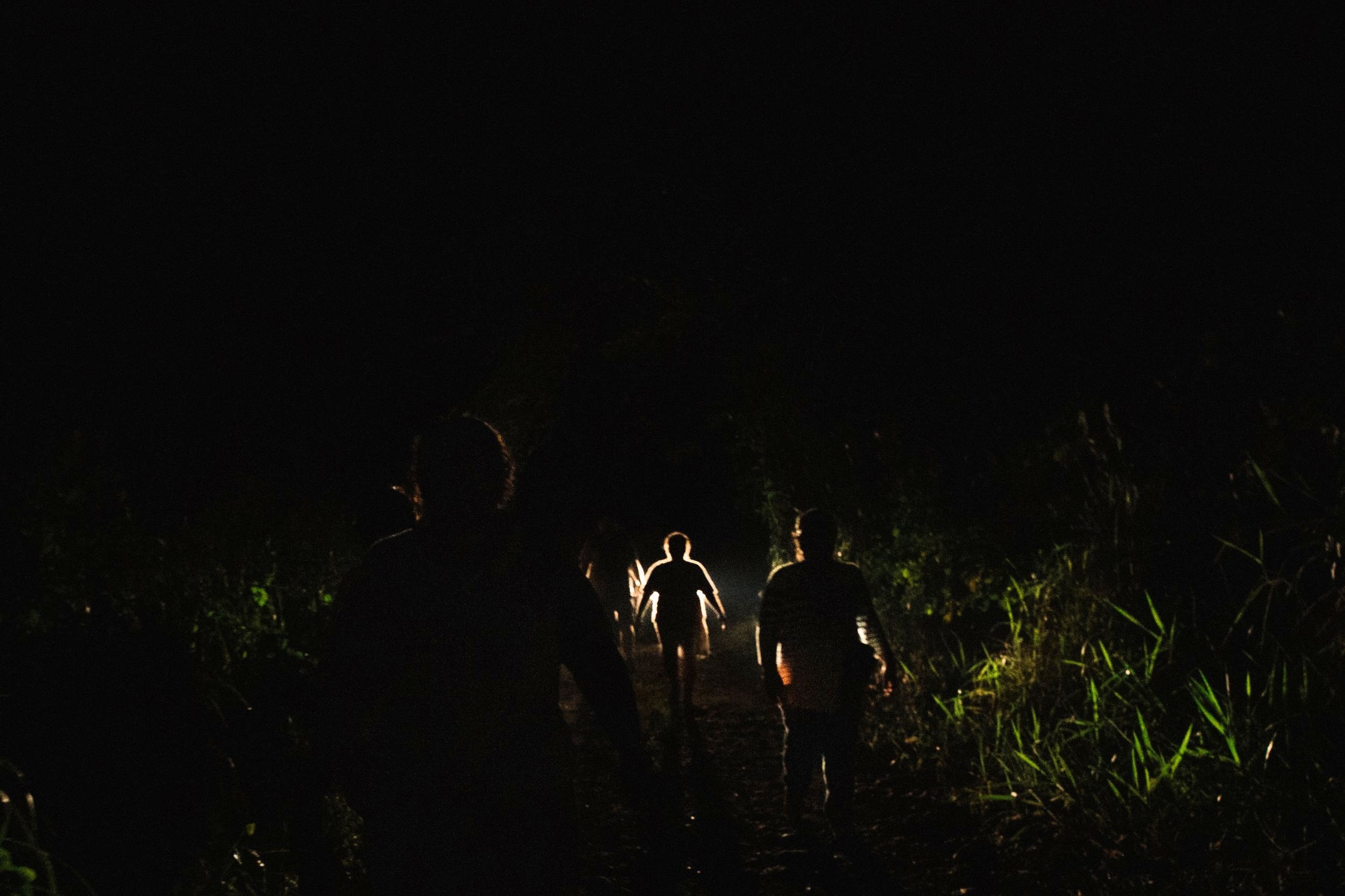
Deep into the night, the exhausted and determined mothers walk back from their final remote stop, having spent a long day searching for their missing loved ones, to rejoin the caravan in Tapachula, Chiapas, Mexico.
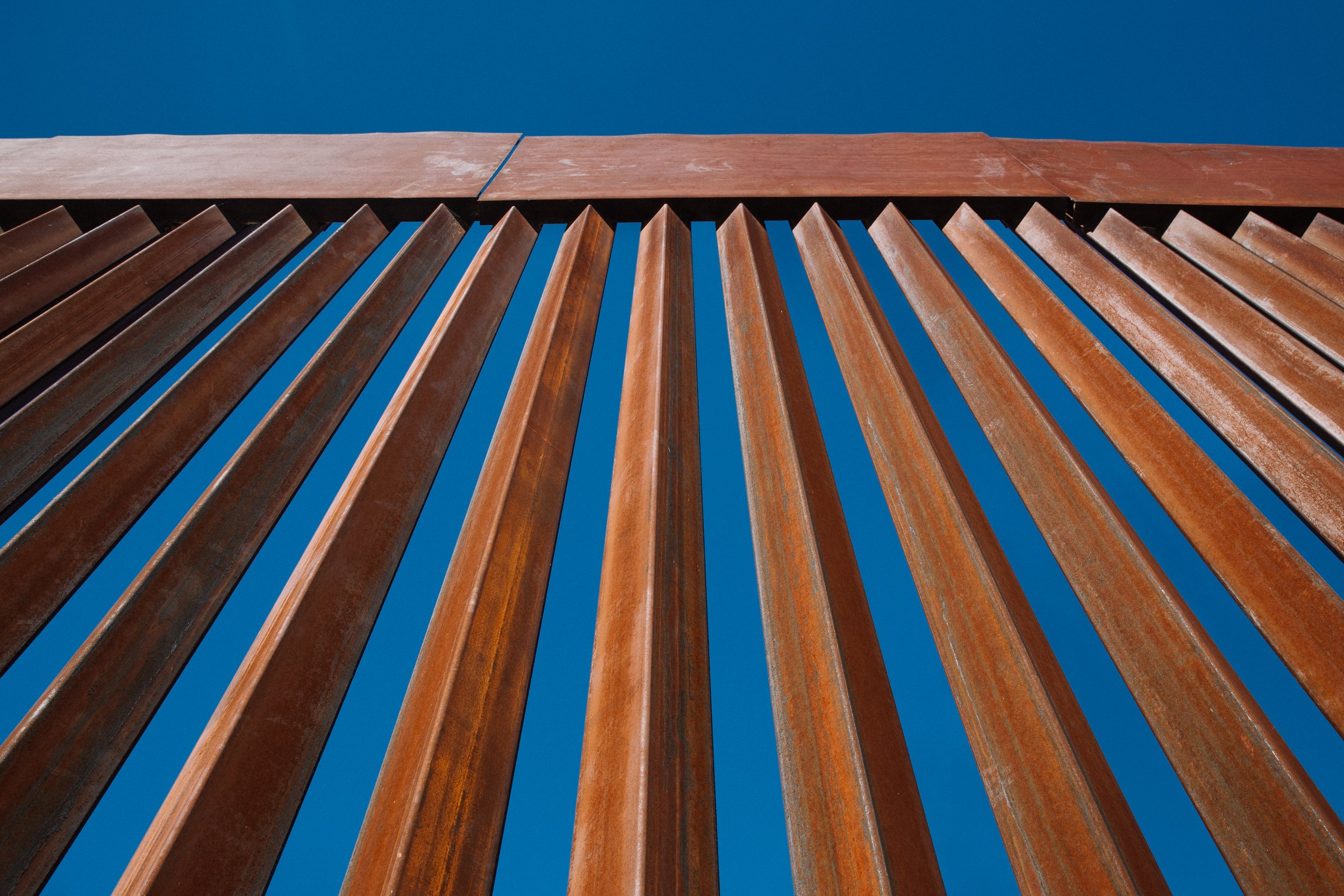
The border between Mexico and Arizona stands tall and imposing, a physical manifestation of the challenges and complexities of migration. As migrants continue to seek safety and opportunity in new lands, this border remains a symbol of both hope and despair, dividing families and communities while also uniting them in their shared struggle for a better future.
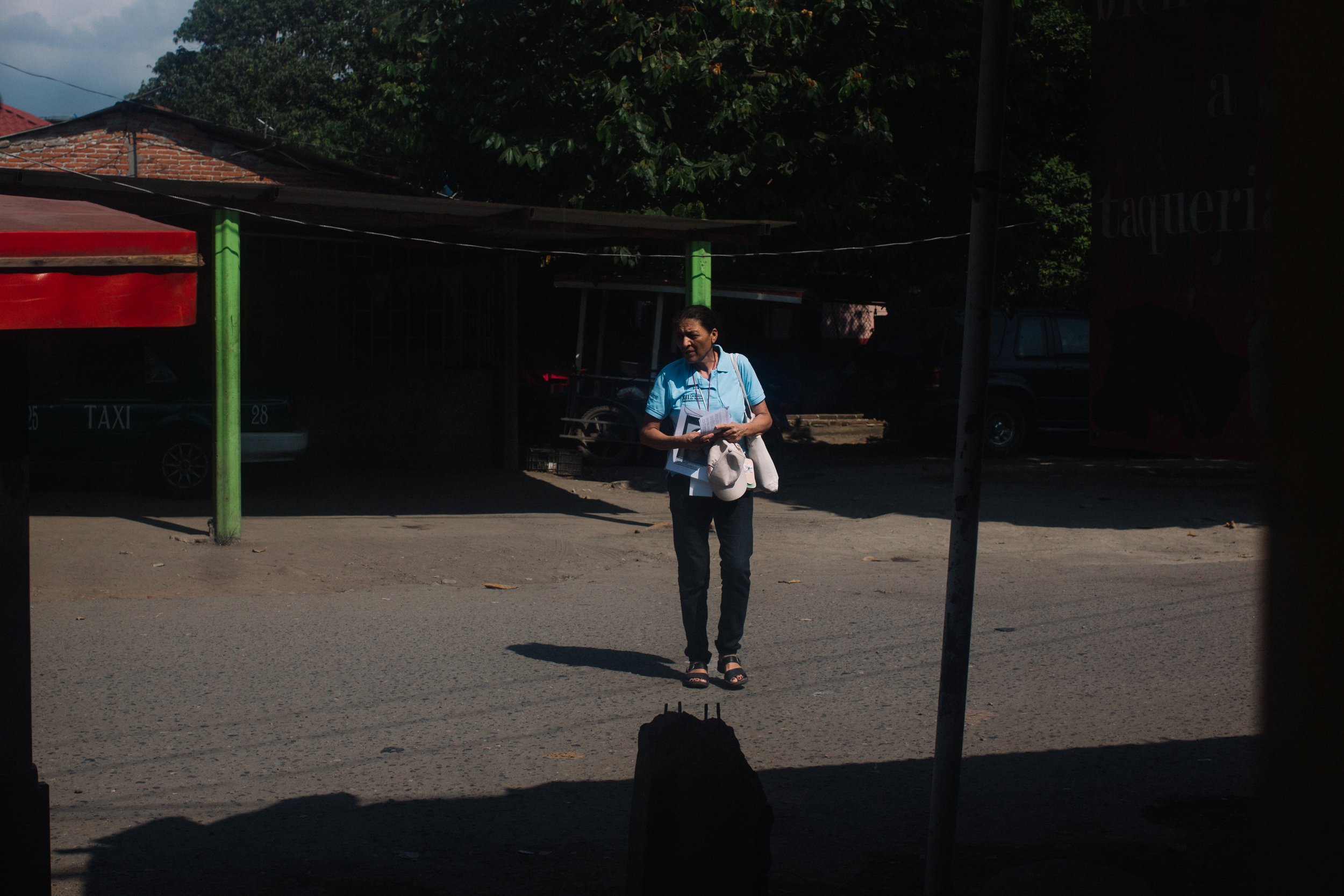
A mother stands alone while the caravan splits up to search for clues in neighborhoods located near train tracks that are common routes for migrants. Her determination to find her missing loved one is palpable amidst the uncertain and sometimes dangerous conditions of the search.
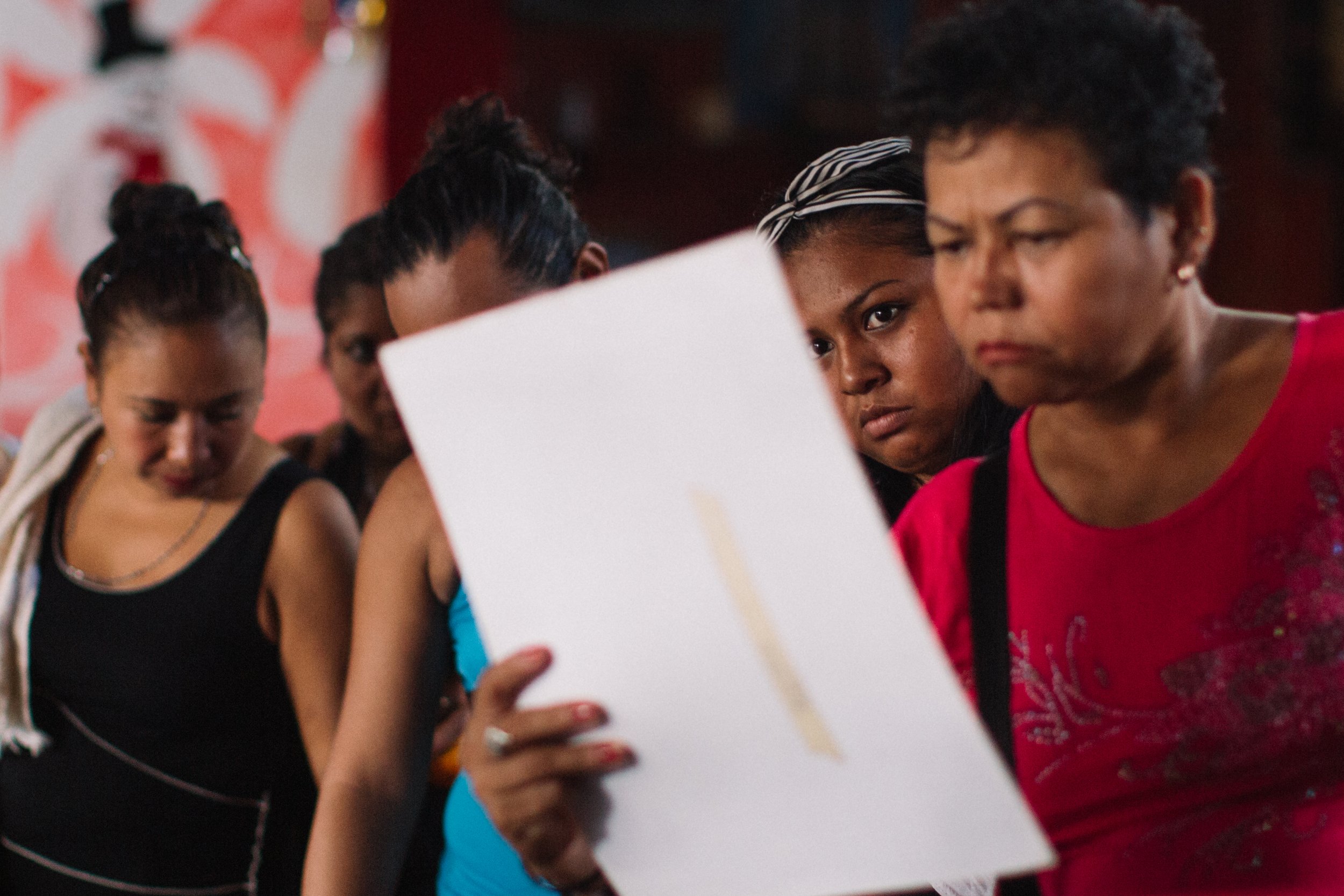
At a popular strip club called El Marinero in Tapachula, Chiapas, Mexico, workers look through photos of their missing loved ones in Tapachula, Chiapas, Mexico. The mothers understand the realities of the migrant journey and the risks that many women face, including the possibility of being trafficked. By spreading awareness and sharing information, they hope someone will recognize the person in their photo.
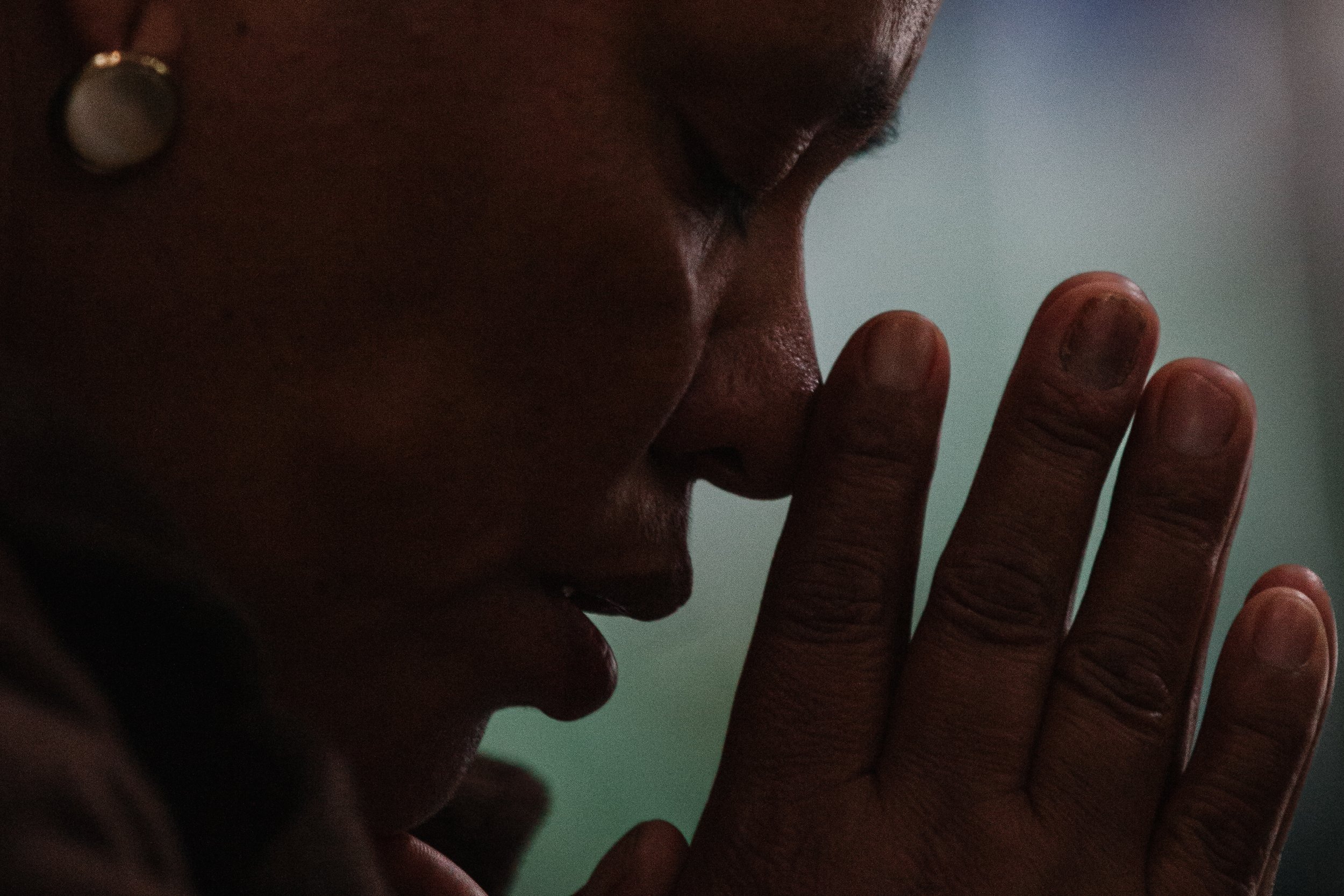
Nohemy Yamileth Alvarez closes her eyes and enters into deep prayer as a local catholic church holds a special mass for the mothers, offering them a moment of reflection and solace amidst their tireless search for their missing loved ones.
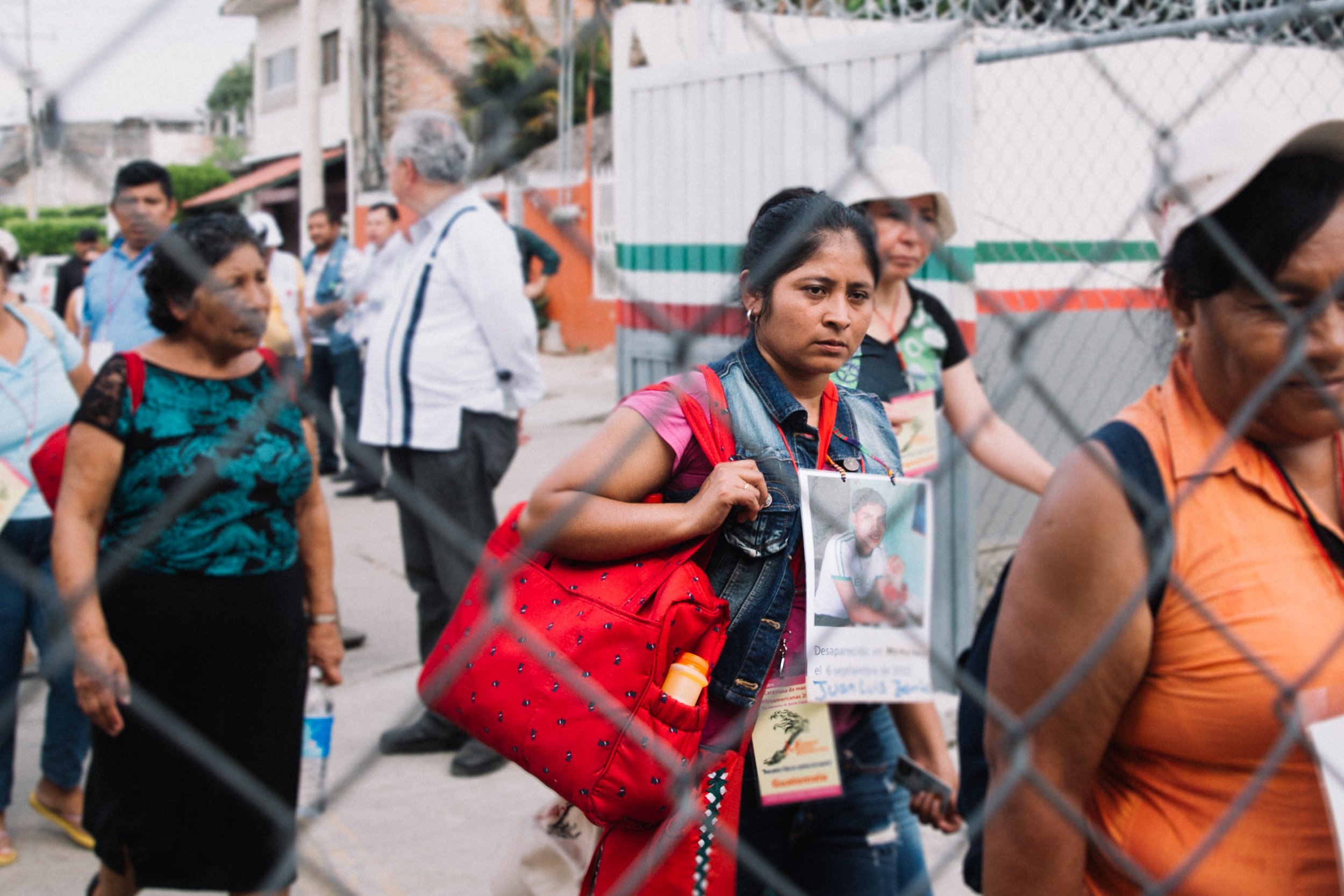
After traveling thousands of kilometers from the southernmost point of Mexico to the northernmost point, the Caravana de Madres de Migrantes Desaparecidos finally crosses the border back into Guatemala, marking the end of their annual journey in search of their missing loved ones. The journey may have been physically and emotionally exhausting, but for the mothers, it was worth every step to bring attention to the plight of missing migrants and demand justice for their families.
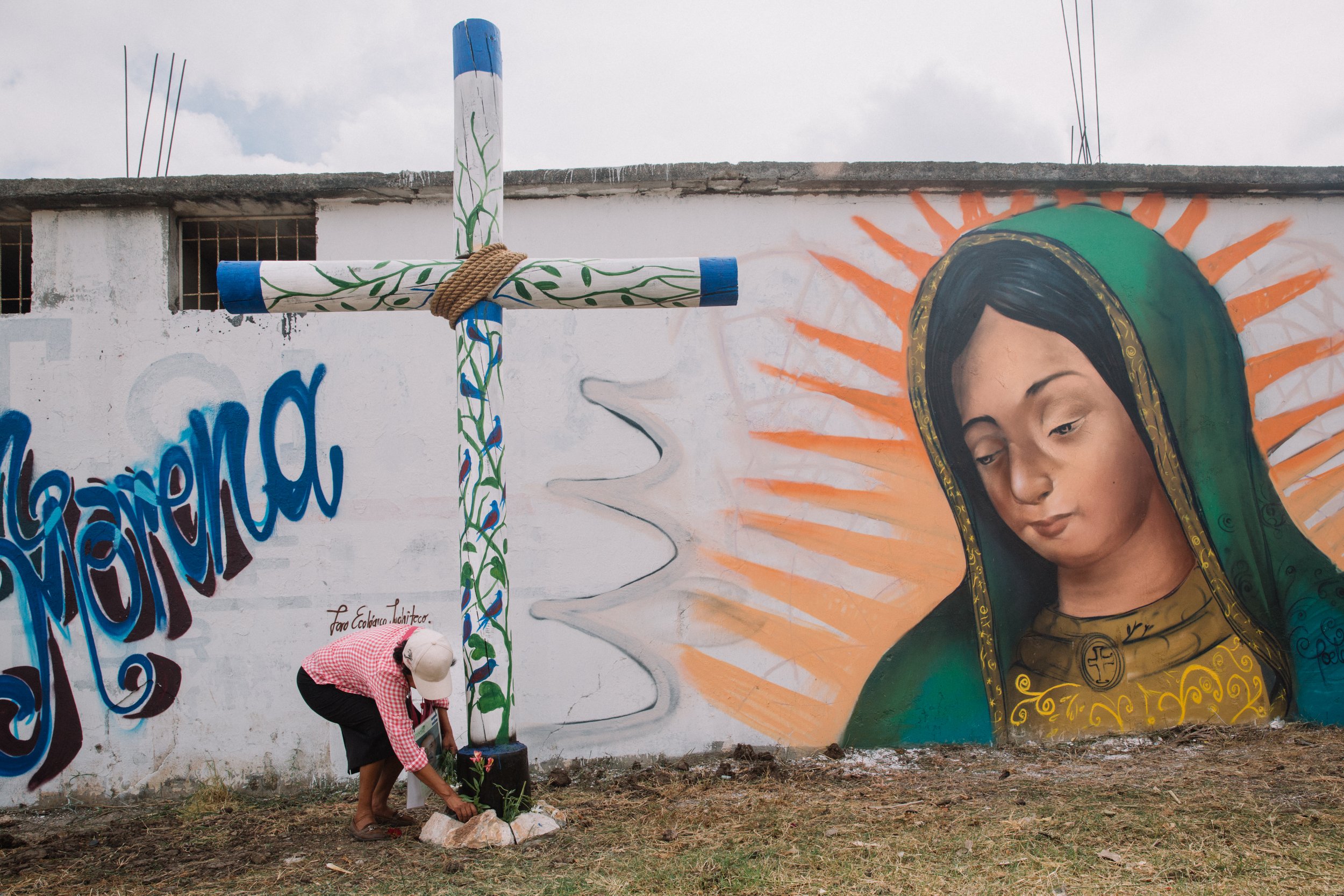
Maria Gloria Cabrera places flowers at the foot of a cross marking the site of a mass grave where unidentified migrant bodies are buried Nov. 29, 2016, at Panten Municipal Domingo de Ramos en Juchitn, Oaxaca. The location is in the process of becoming recognized publicly as a sacred site. The mural of La Virgen de Guadalupe was painted in an effort for the community to respect the gravesite.
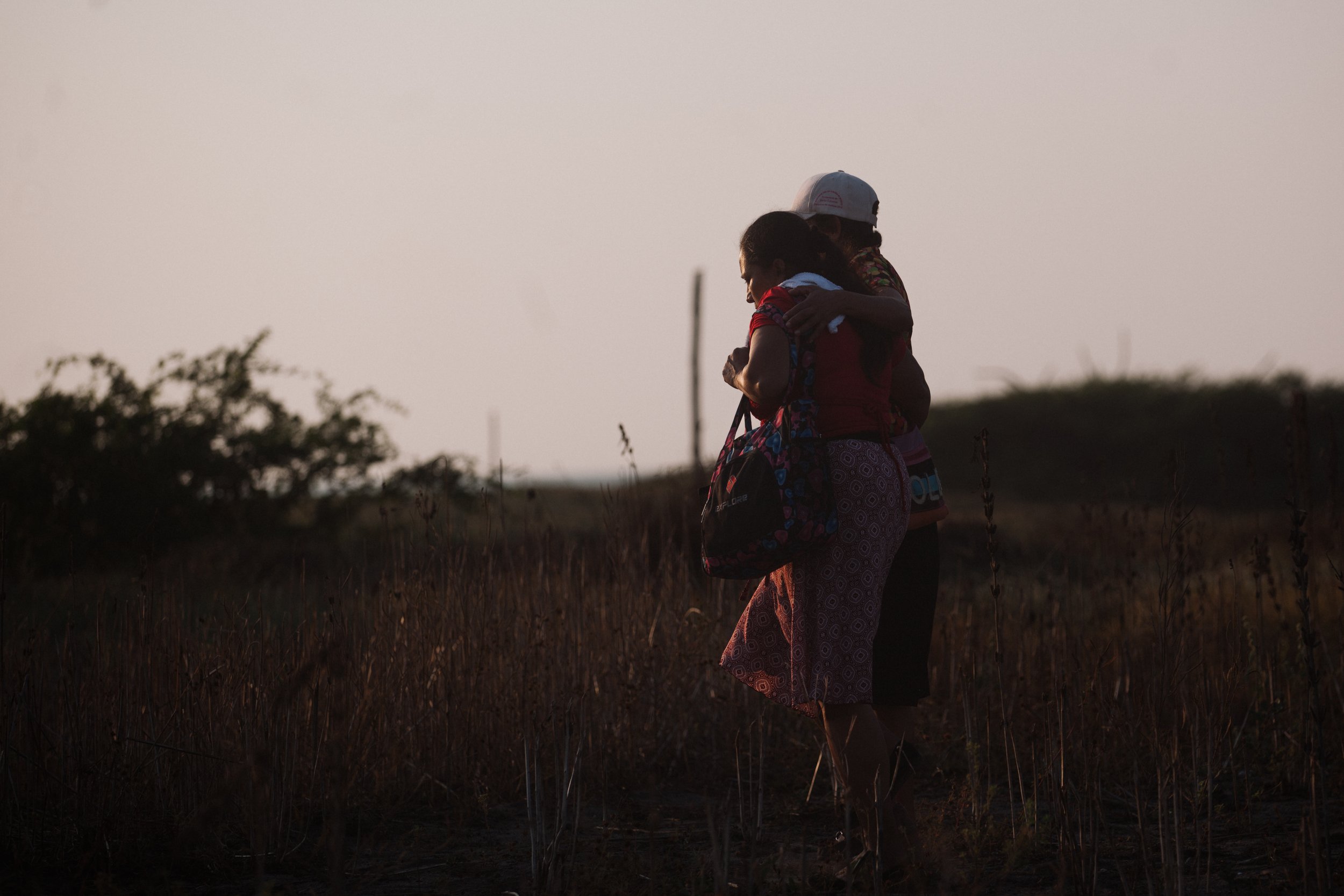
Two mothers find comfort in each other's embrace as they walk back to the caravan after a long and exhausting day of traveling.
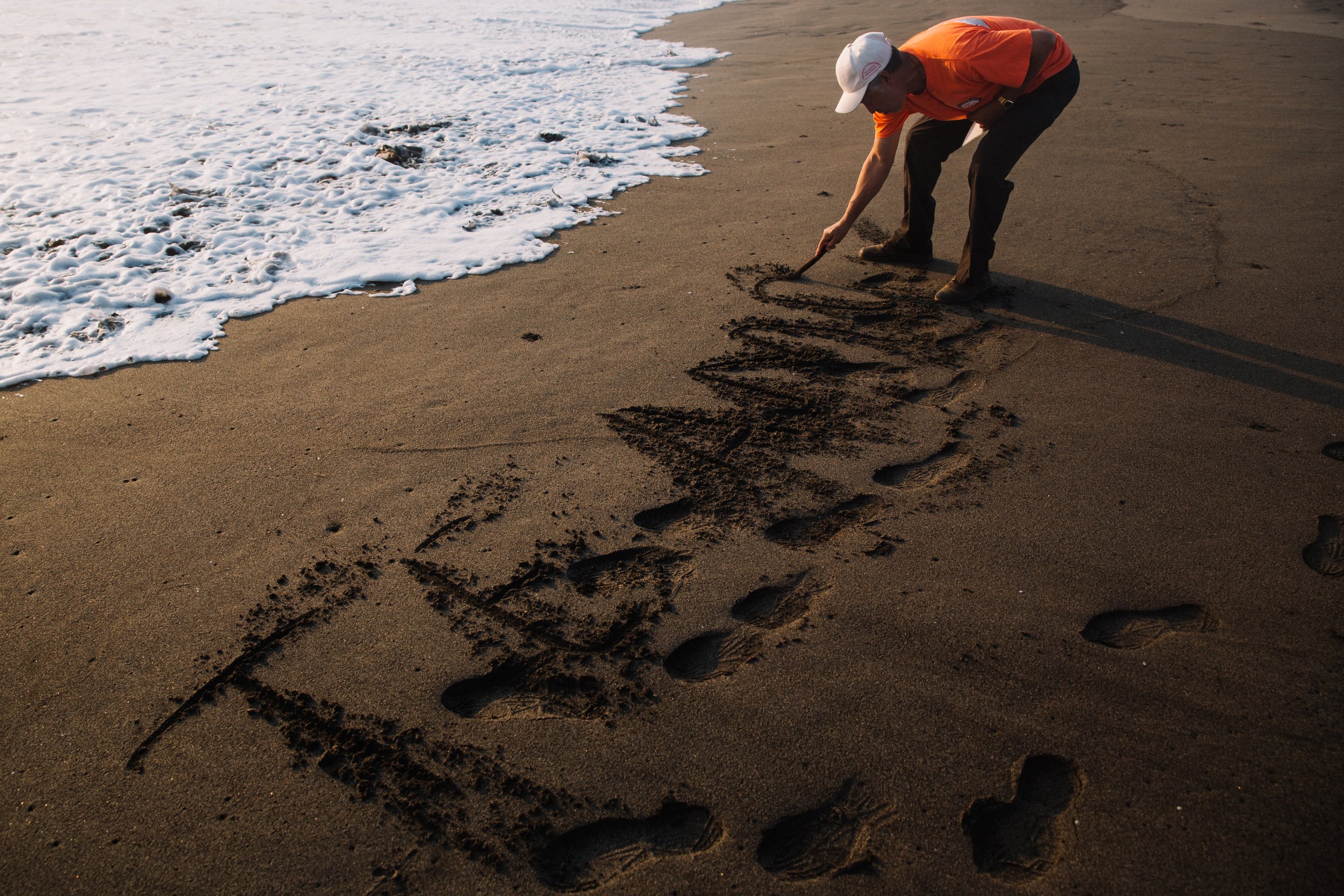
Hector Felipe Rodriguez, a father from Honduras, writes a heartfelt message in the sand at Barra de San Jose, Villa Mazatan, Chiapas, Mexico, a new route taken by many migrants due to the dangers of traditional routes under the Frontera Sur border plan. In his search for his missing son, Hector Felipe Rodriguez, who disappeared in Nuevo Laredo four years ago, he leaves behind a message of love: 'I love you son'.











































































This documentary photo story, funded by the Pulitzer Center for Crisis Reporting in collaboration with the San Antonio Express-News, follows a caravan of Central American mothers in search of their missing children, raveling alongside these mothers, documenting their journey from the Guatemala-Mexico border to the Mexico-U.S. border.
This story captures the heart-wrenching reality of a crisis that is often overlooked. The mothers' determination and resilience in the face of immense grief and loss is a testament to the strength of a mother’s love, and their stories serve as a powerful reminder of the urgent need for action and change.
If you would like to read the original project published by the Pulitzer Center for Crisis Reporting please view here. (All photos are taken by Julysa Sosa/For the San Antonio Express-News).
Thank you to the courageous mothers and fathers who allowed me to witness their painful search for their missing children. Your vulnerability, love, and unbreakable strength in the face of unimaginable pain have left a mark on my heart. I still weep remembering our long, difficult journey as I documented your hope and grief. I think of you and pray for your reunion. Thank you for trusting me; I hope these photos serve as a testament to the eternal love of a parent.
Gracias a las madres y padres valientes que me permitieron ser testigo de su dolorosa búsqueda de sus hijos desaparecidos. Su vulnerabilidad, amor y fuerza inquebrantable ante un dolor inimaginable han dejado una huella en mi corazón. Aún lloro al recordar nuestro largo y difícil camino mientras documentaba su esperanza y dolor. Los recuerdo y rezo por su reencuentro. Gracias por confiar en mí; espero que estas fotos testimonien el amor eterno de un padre.
